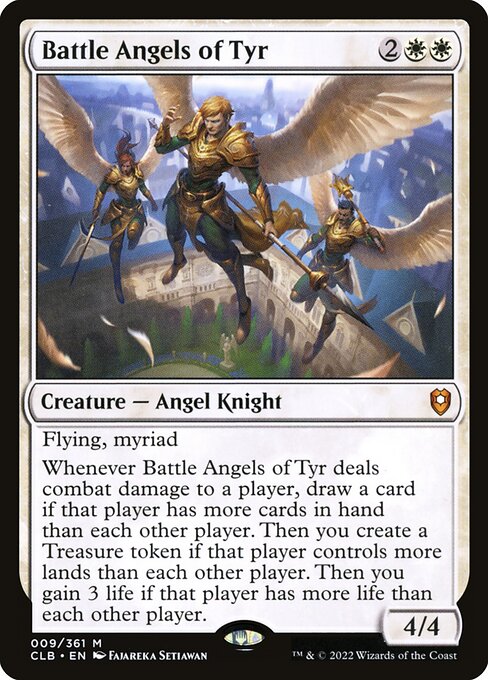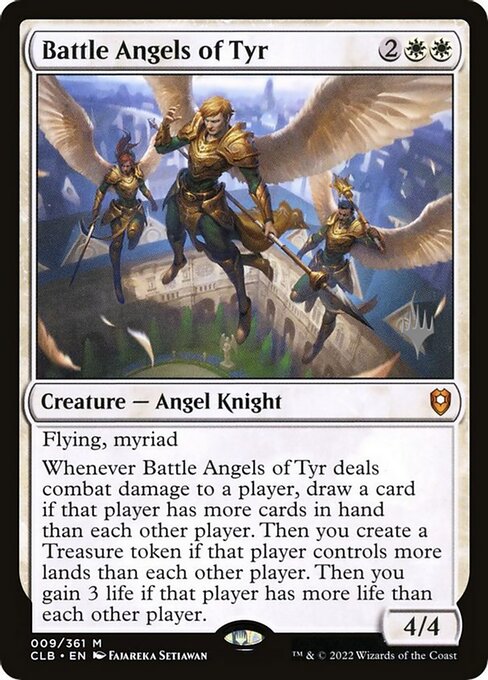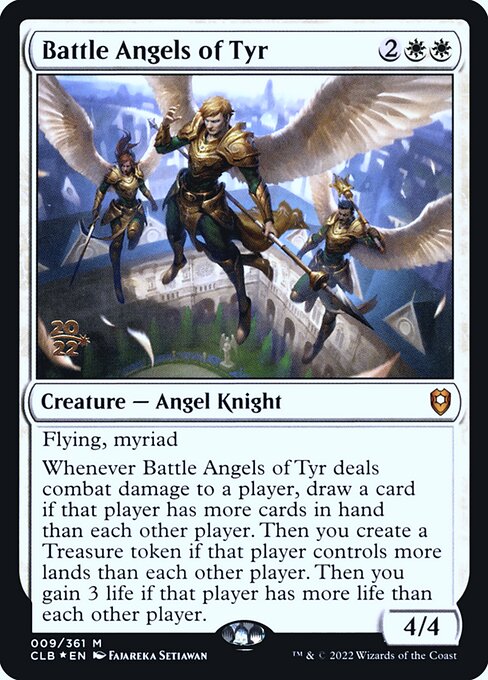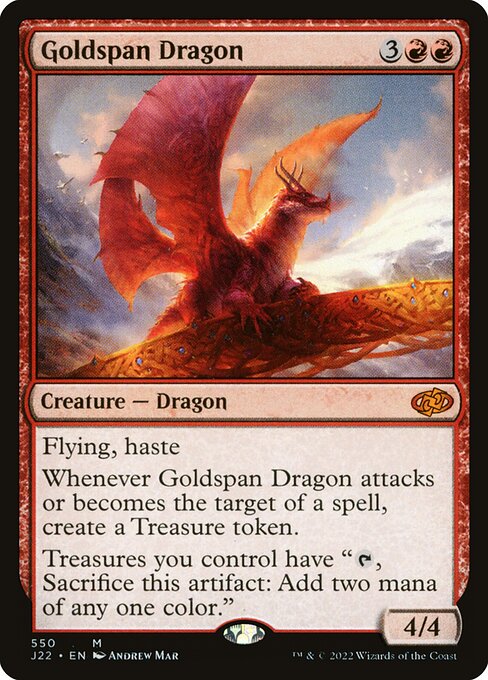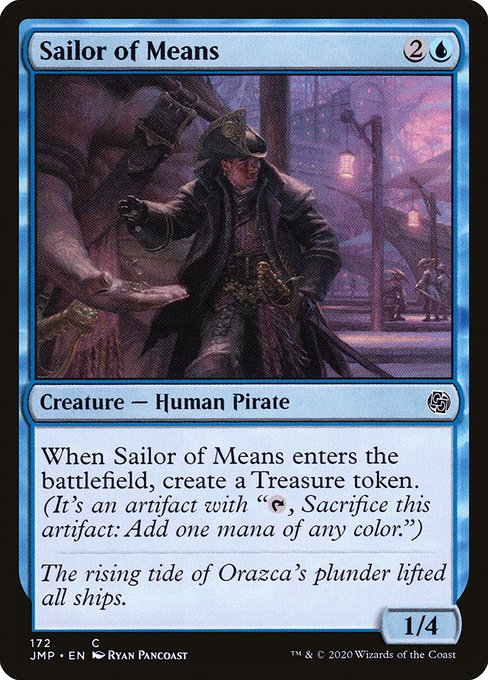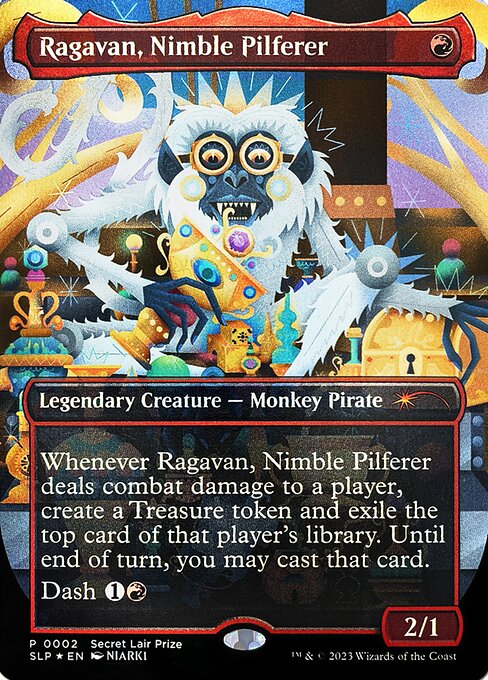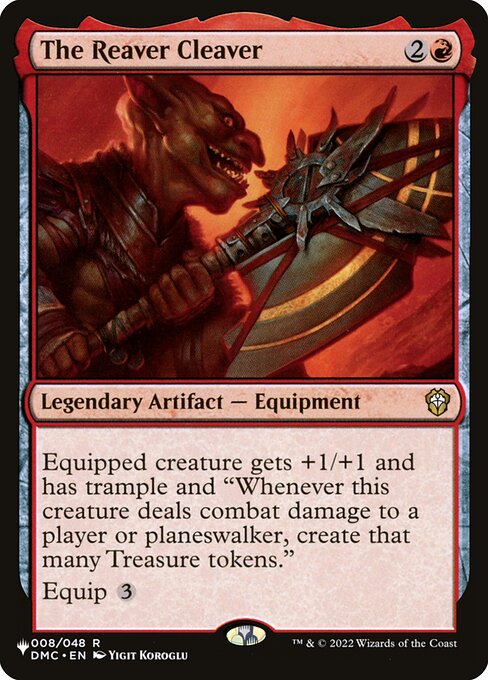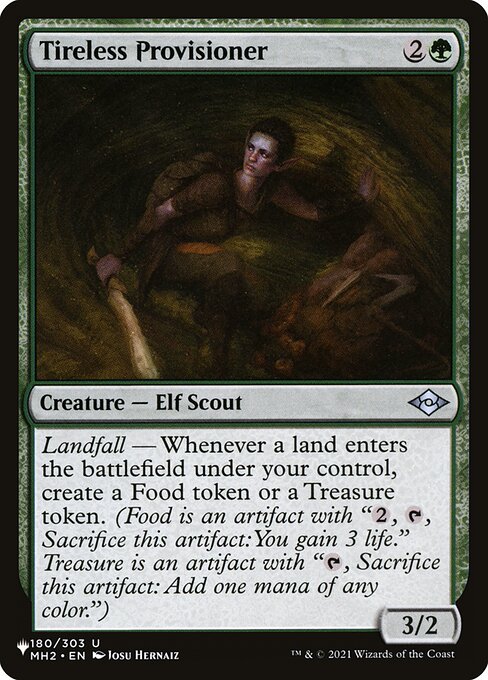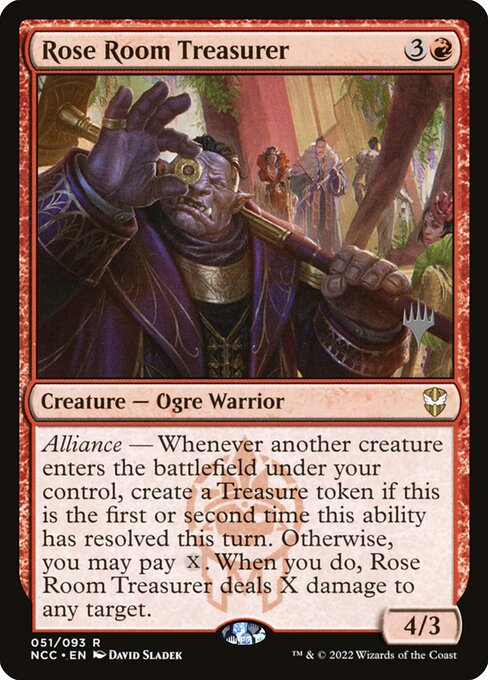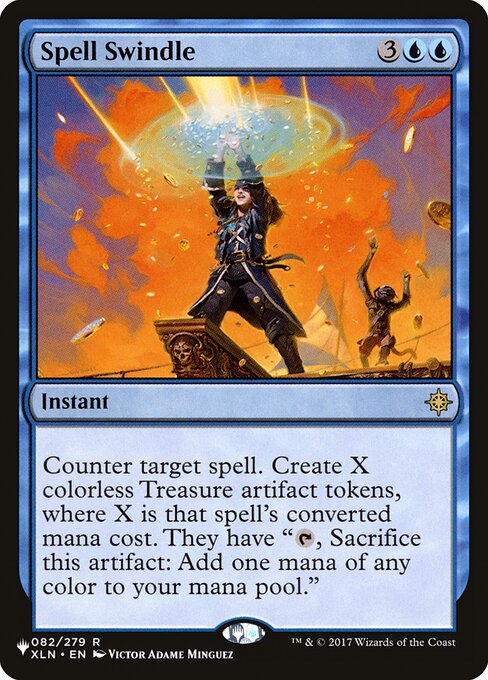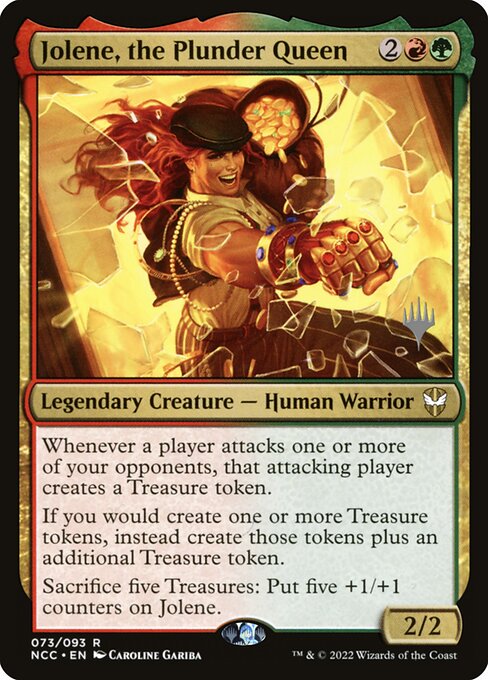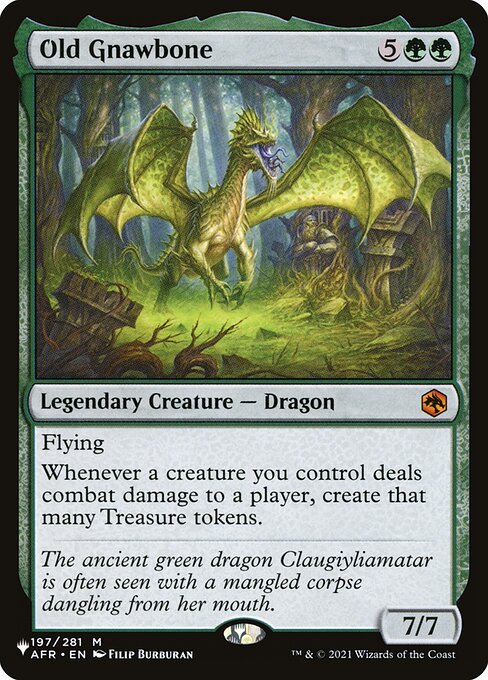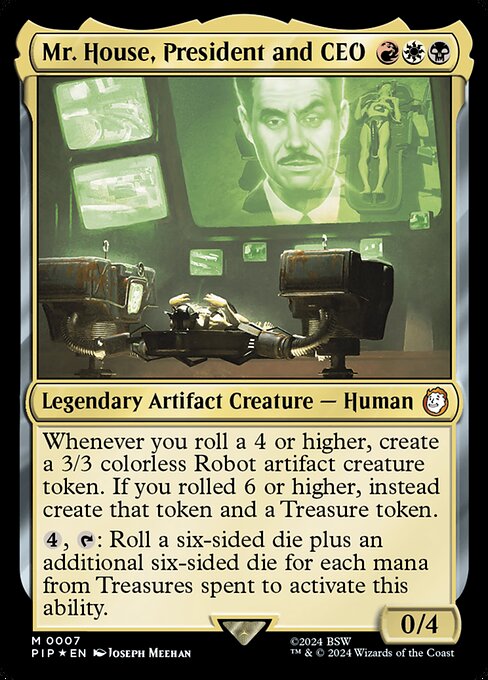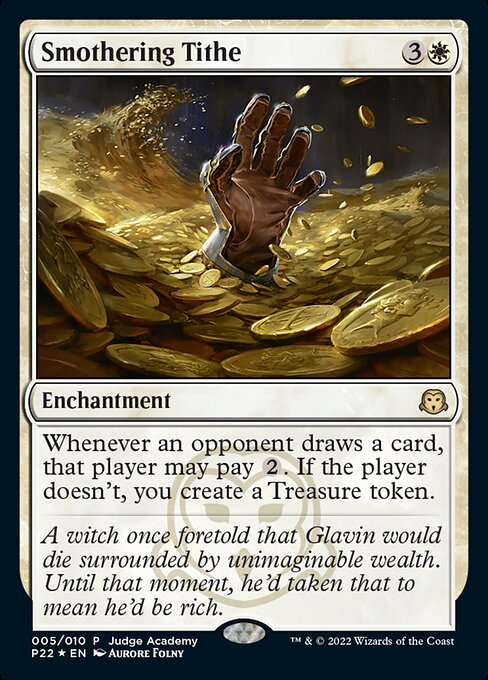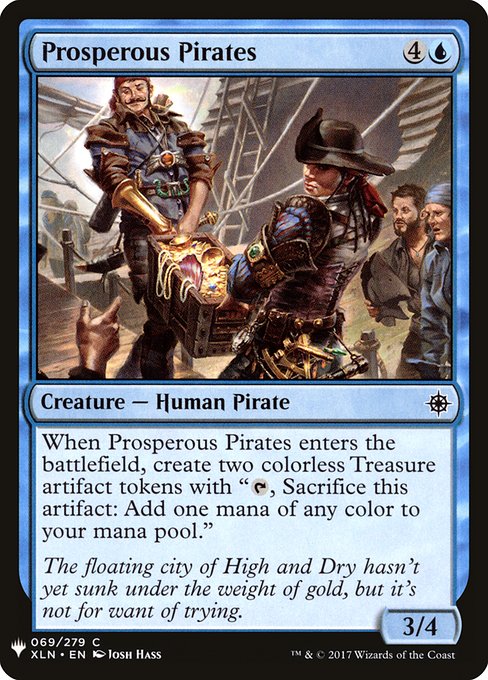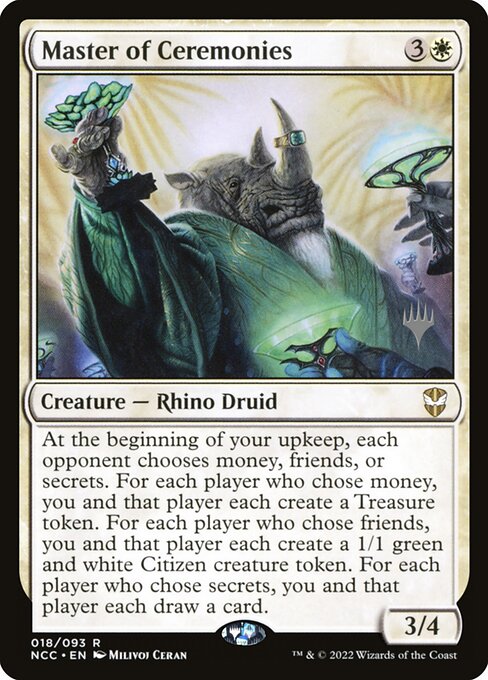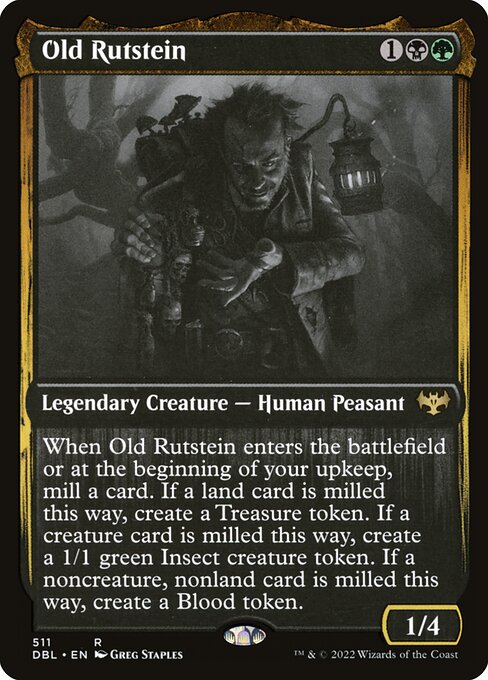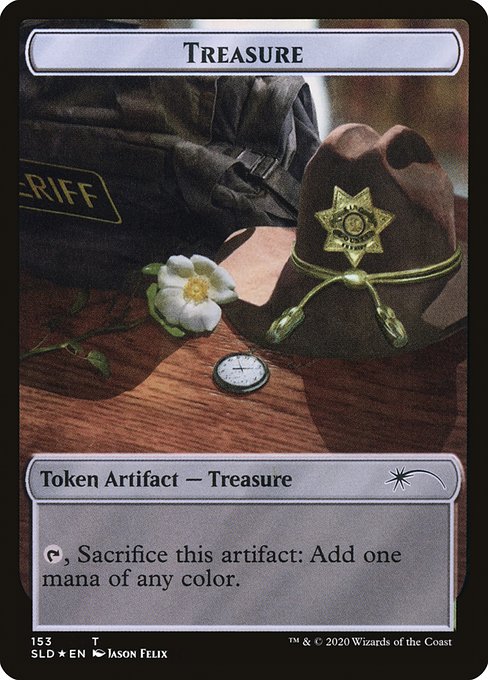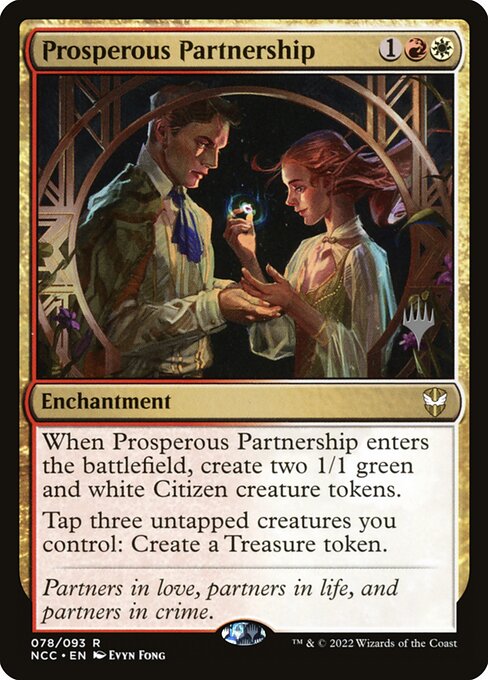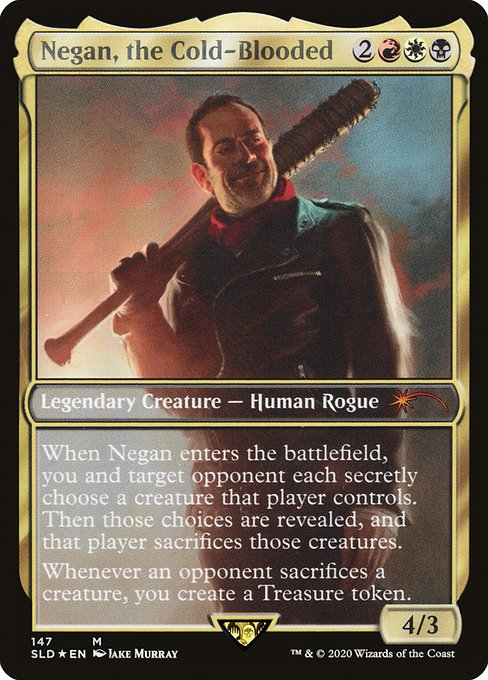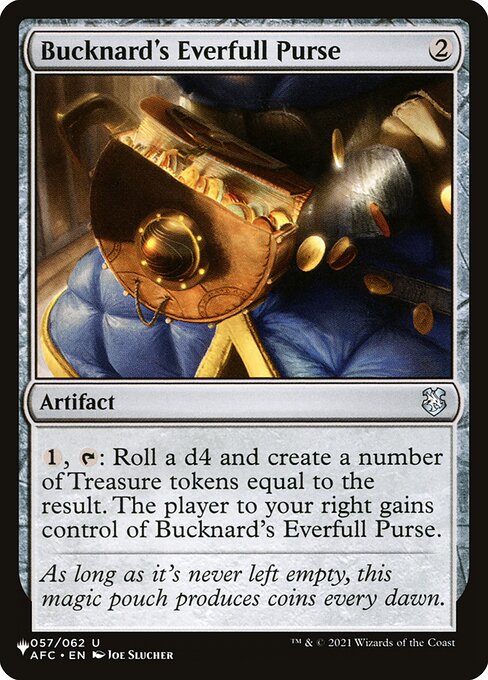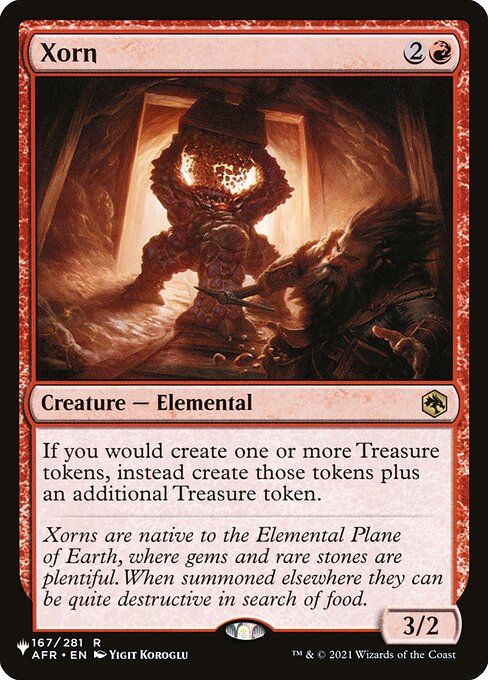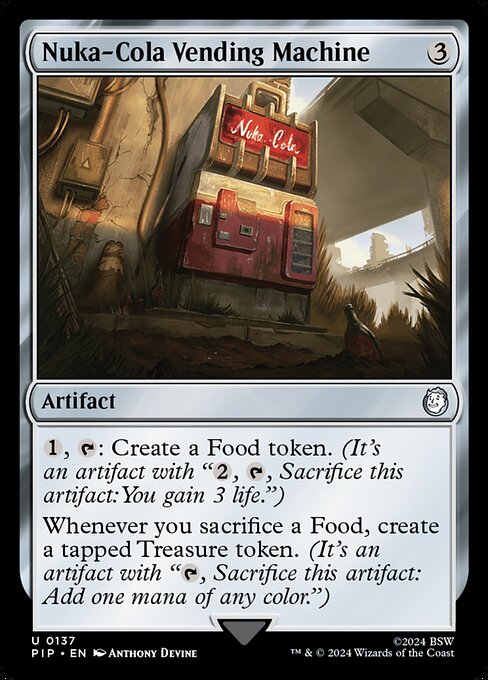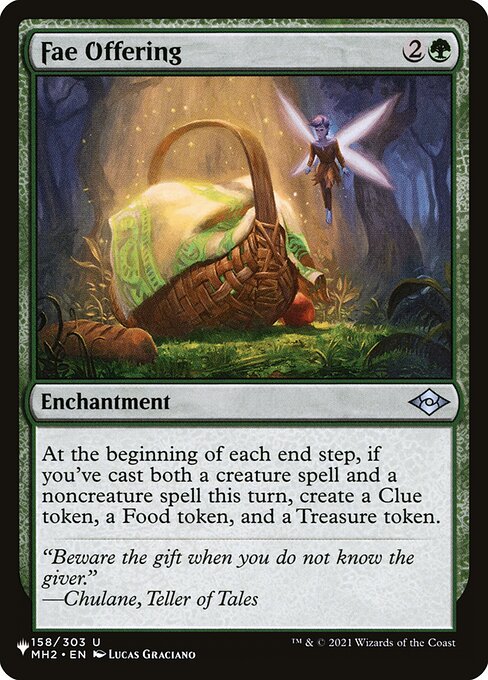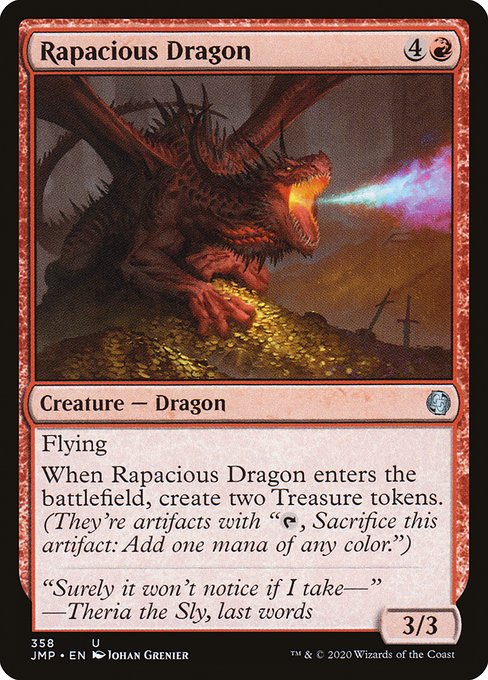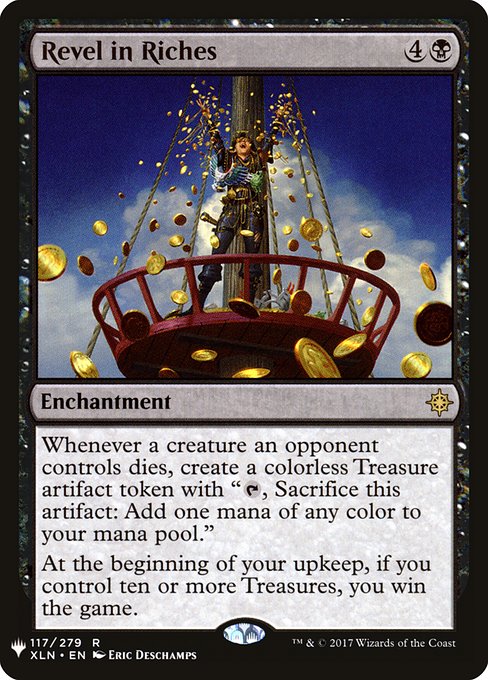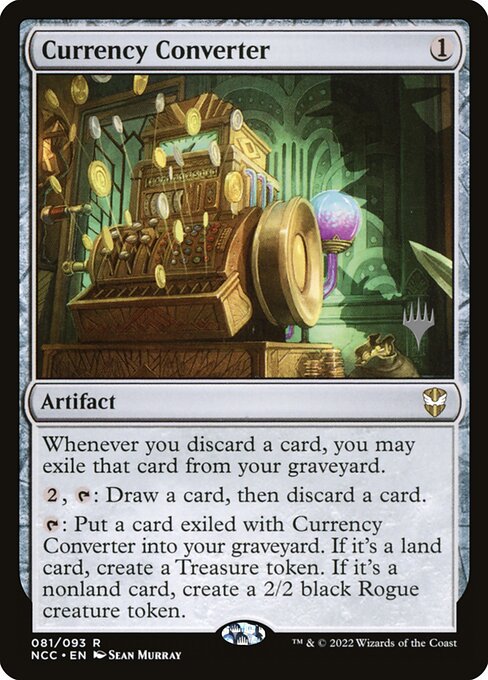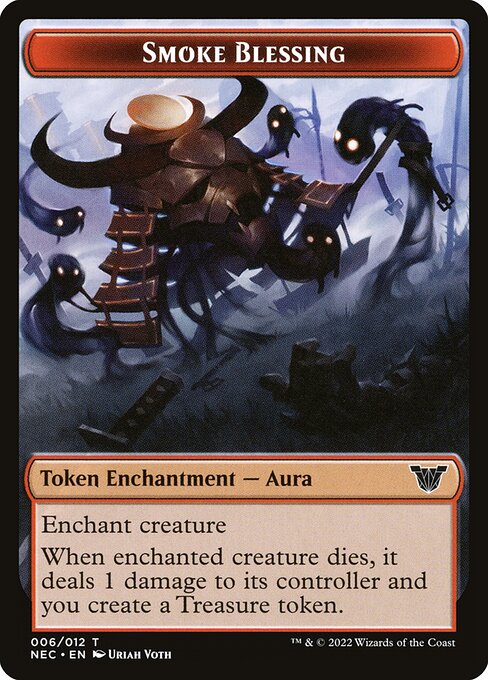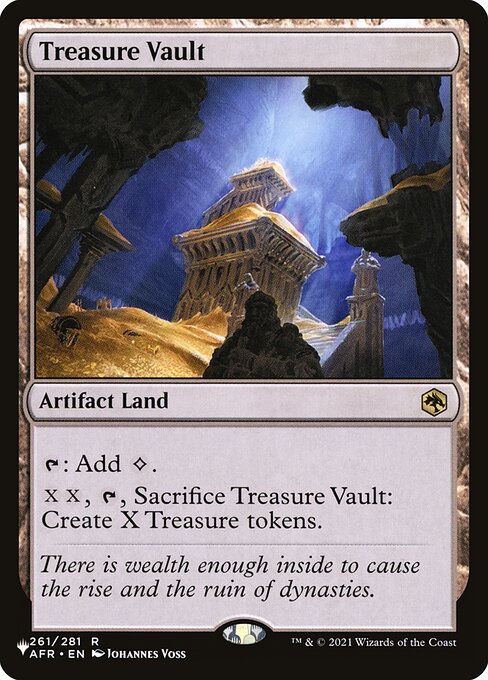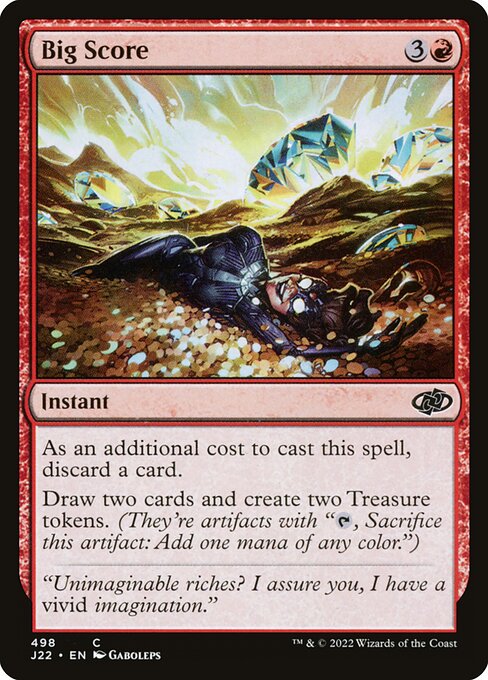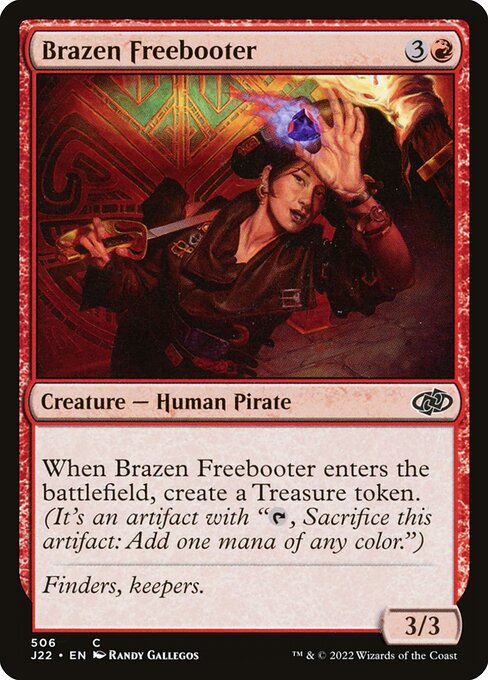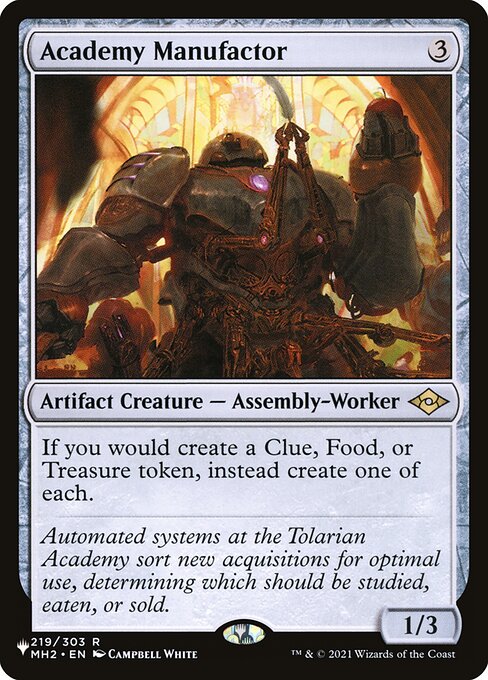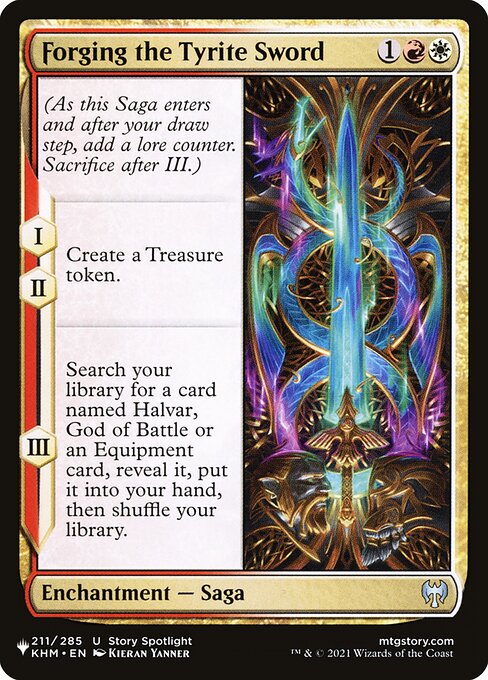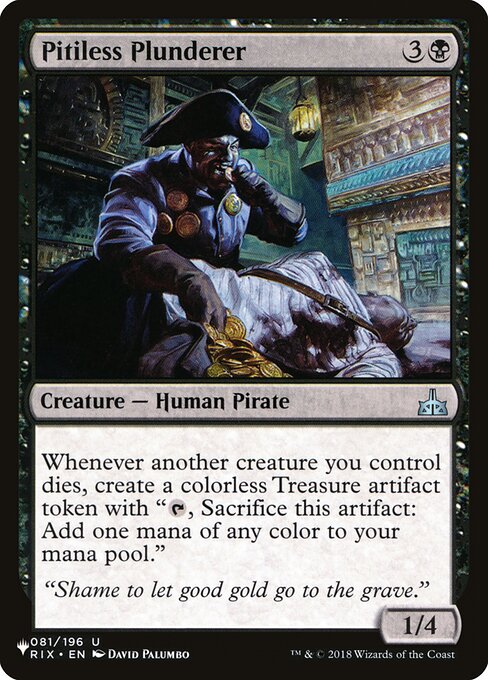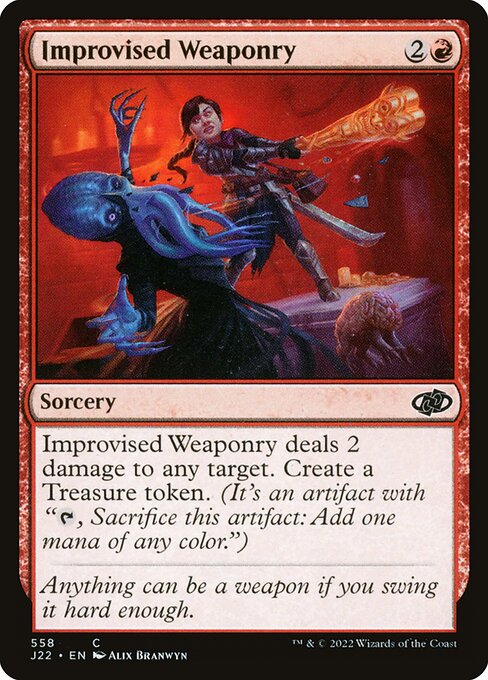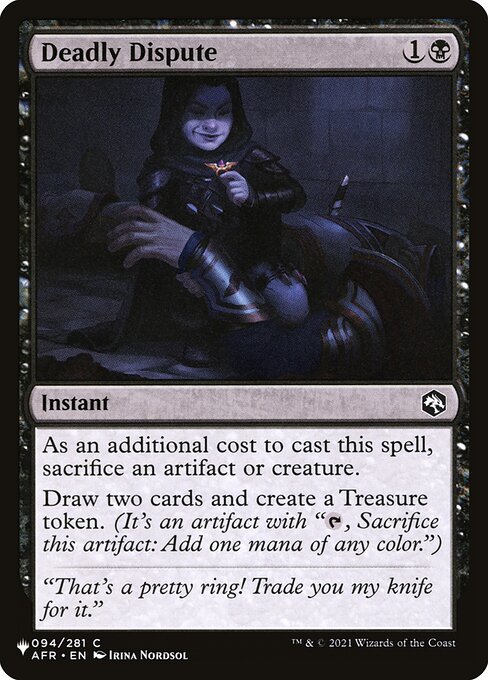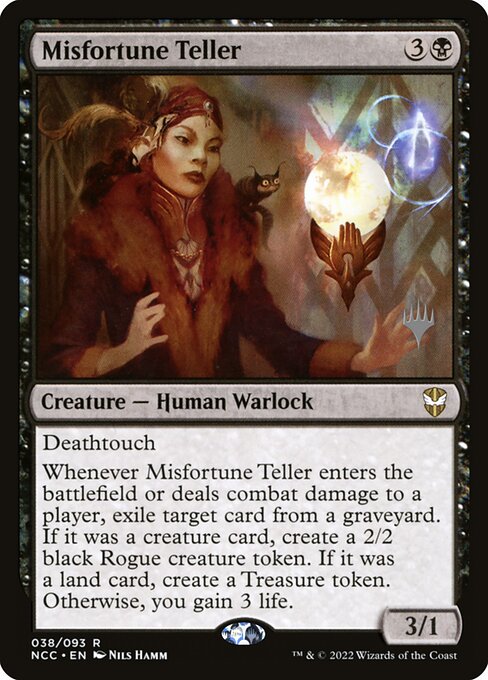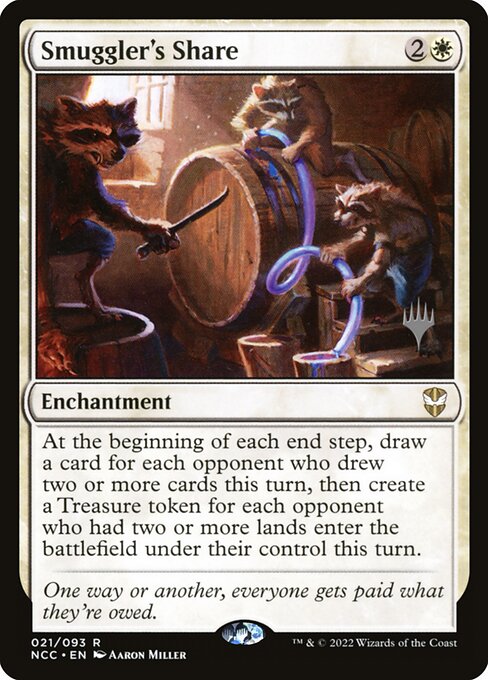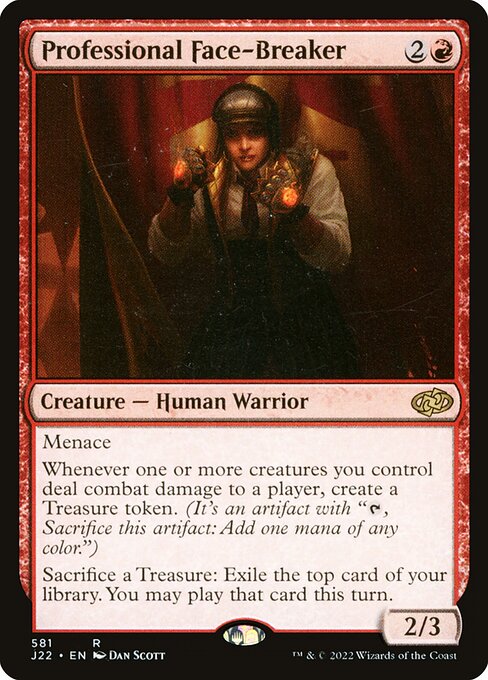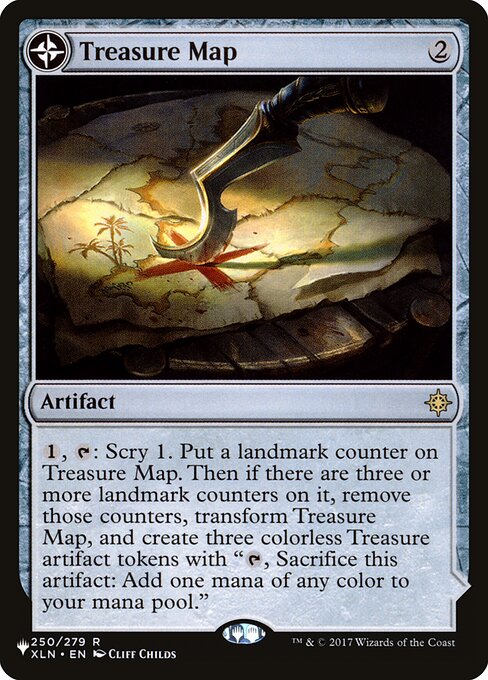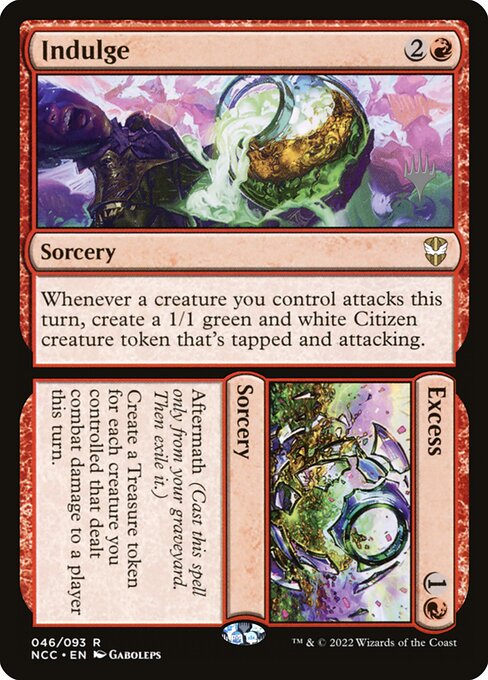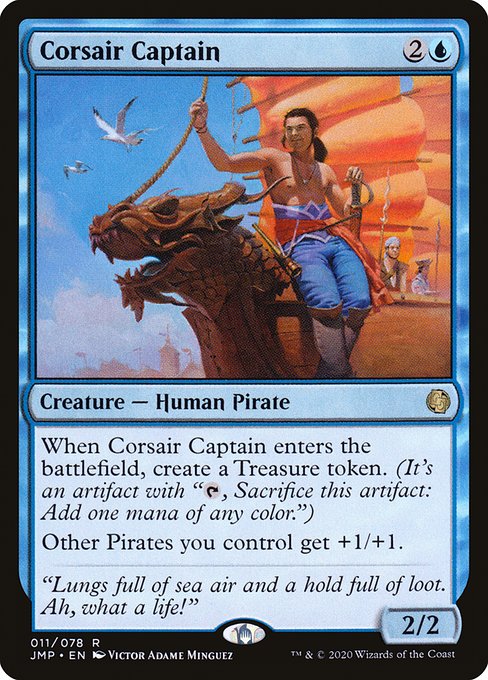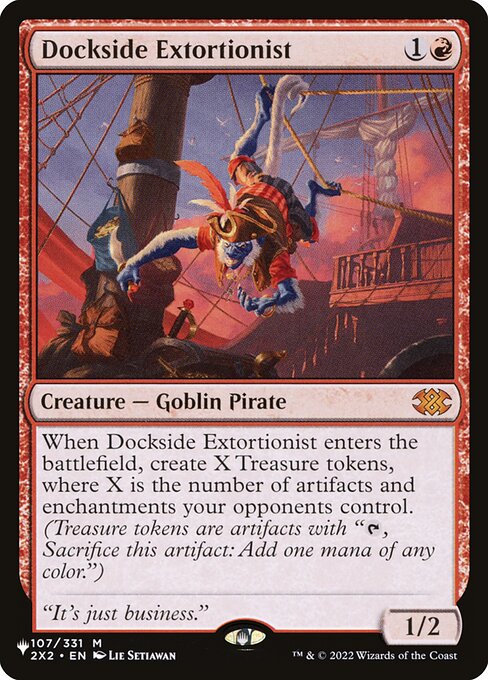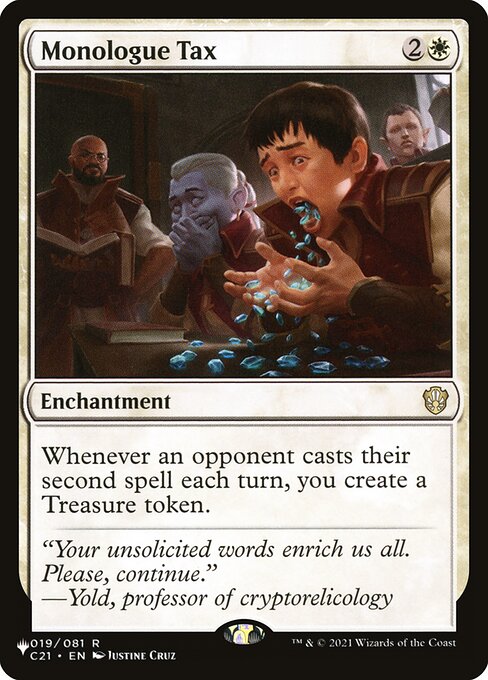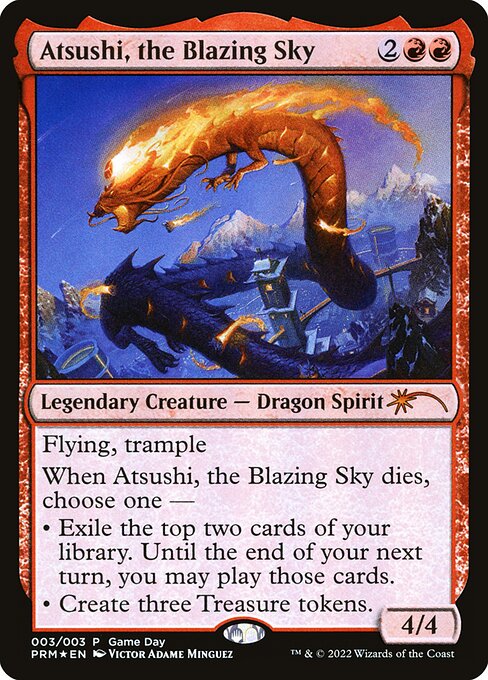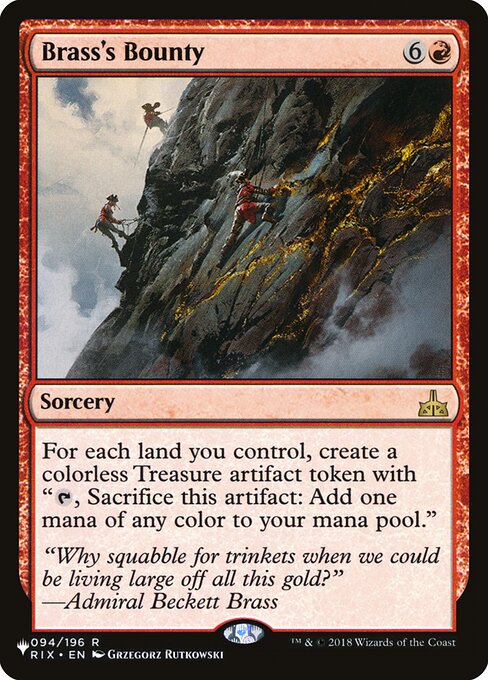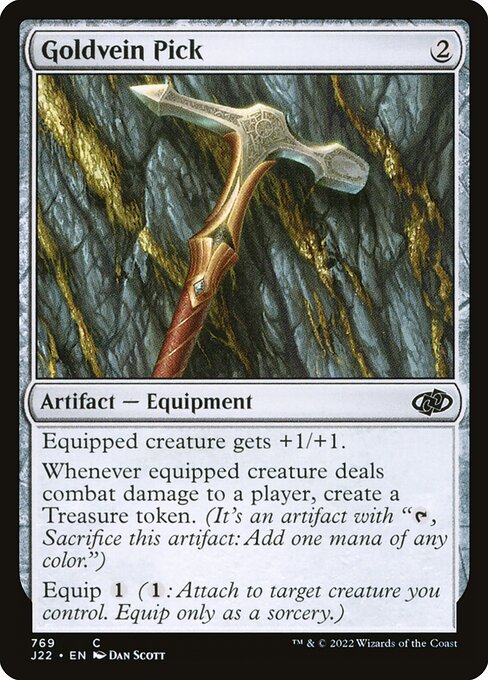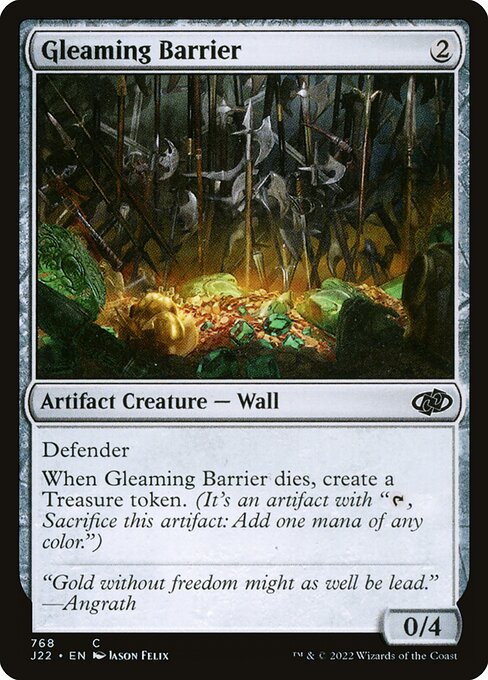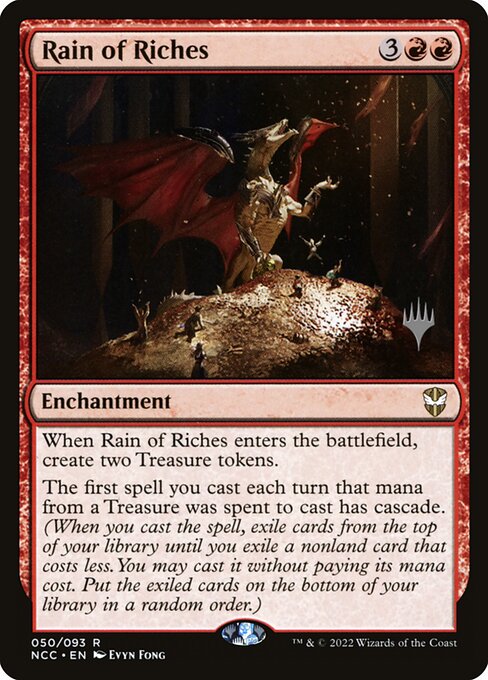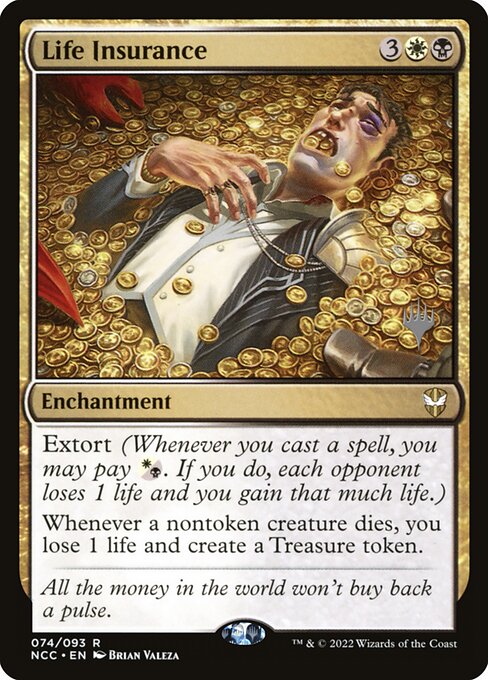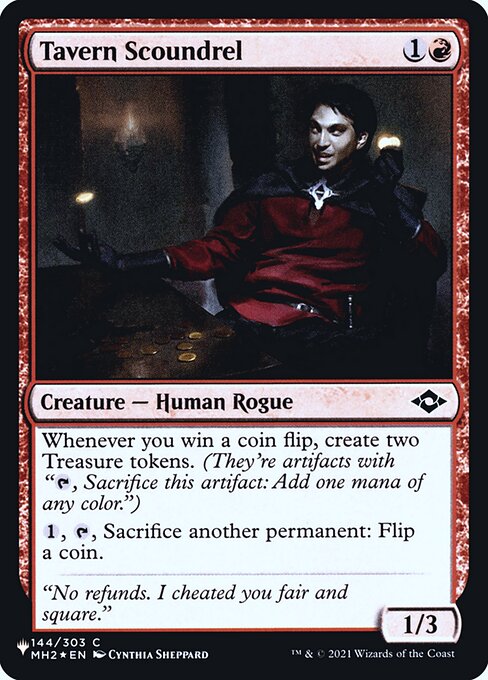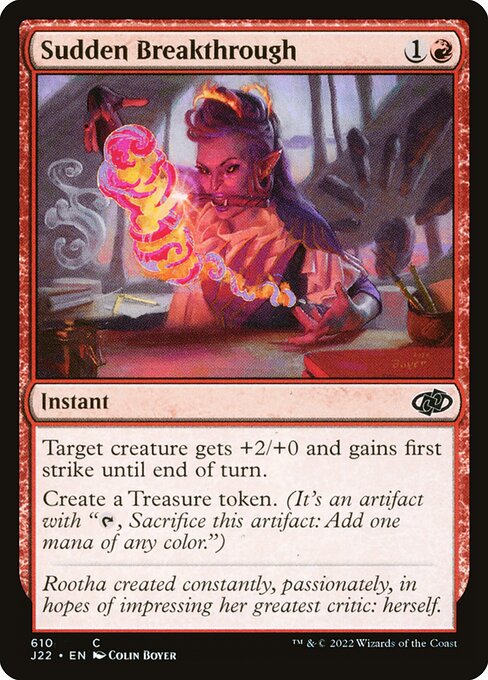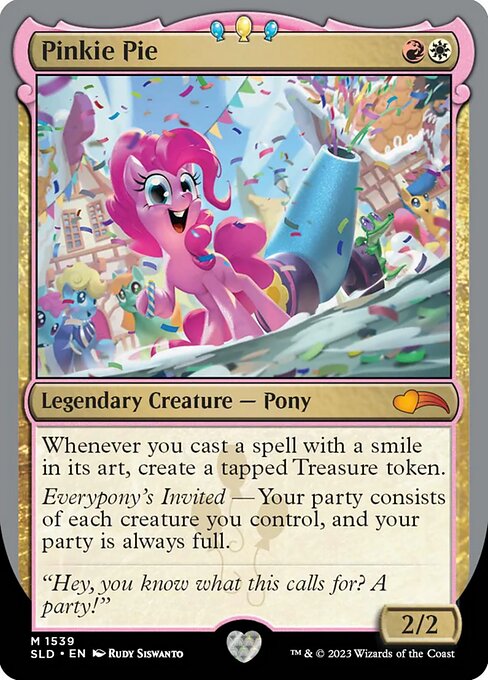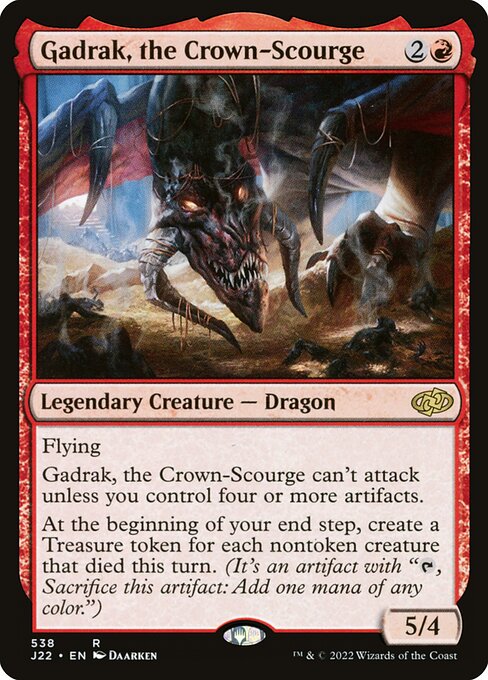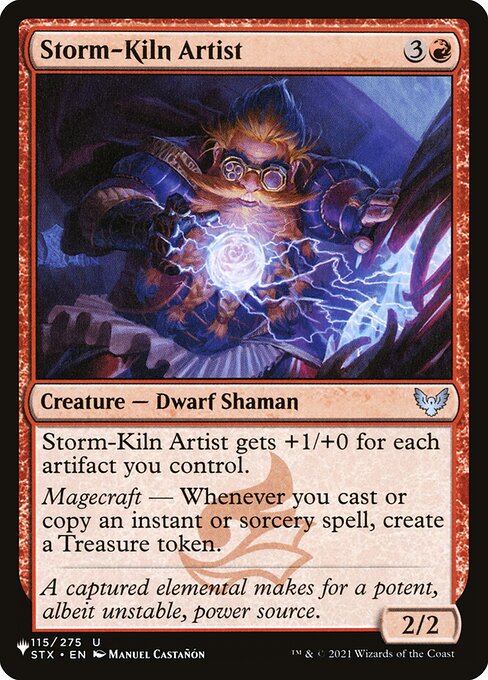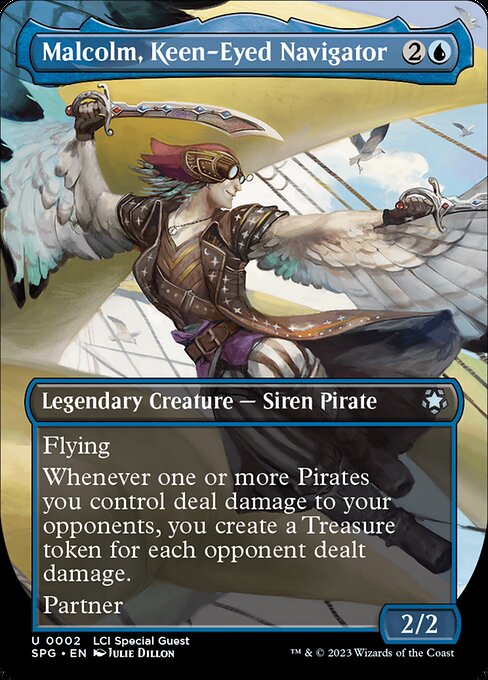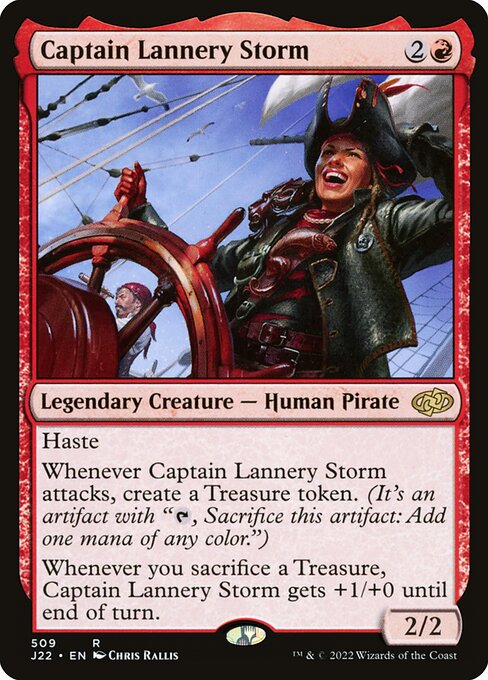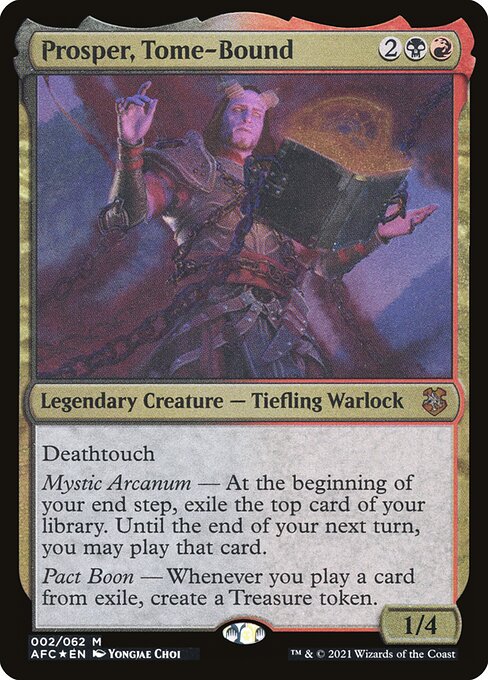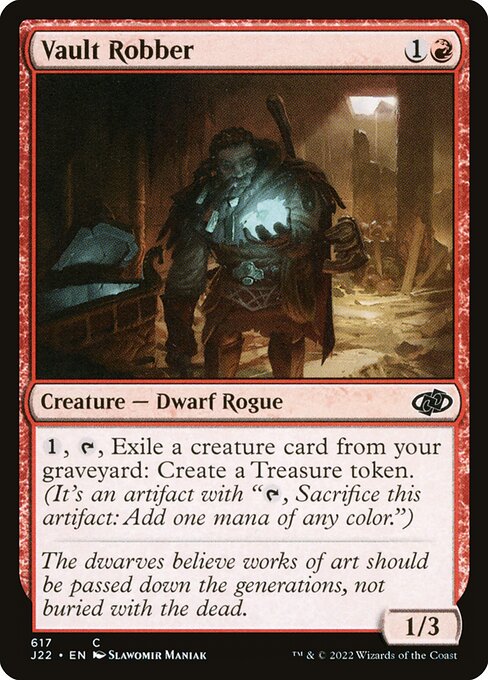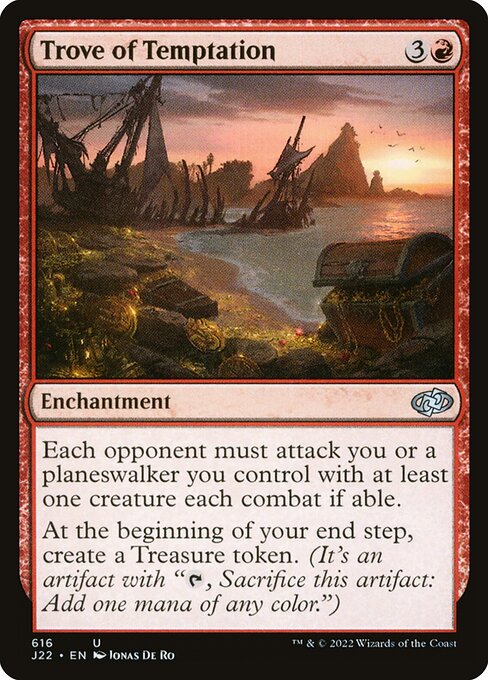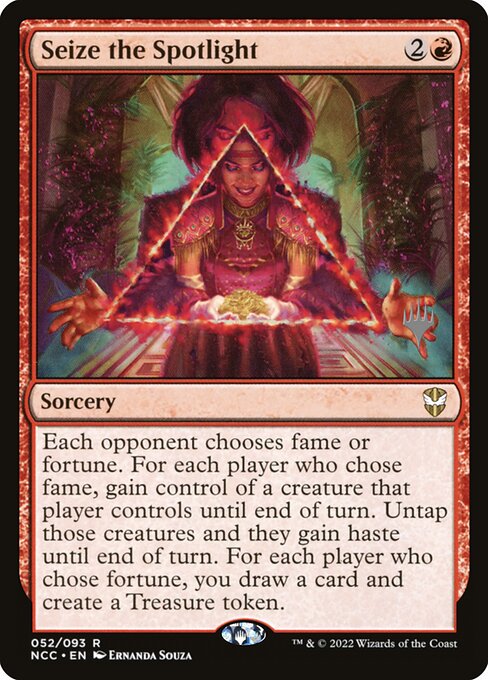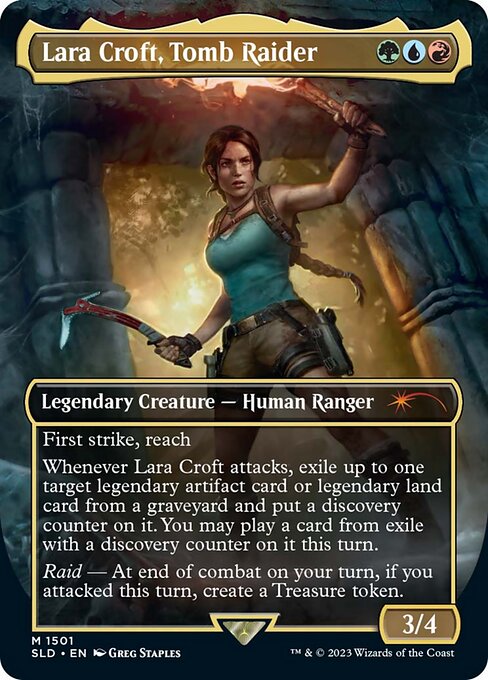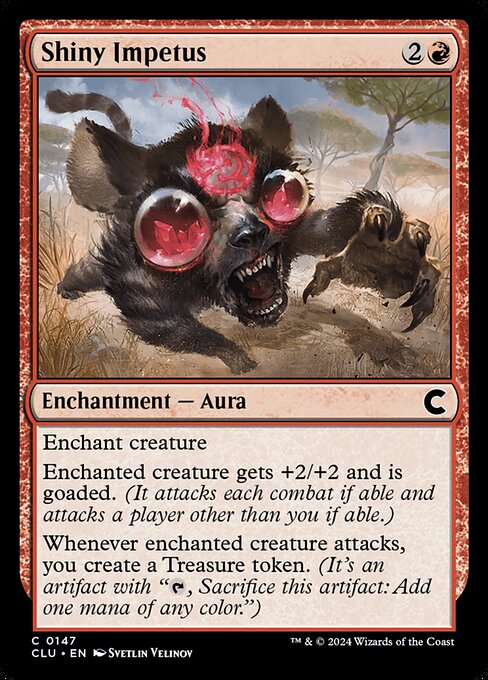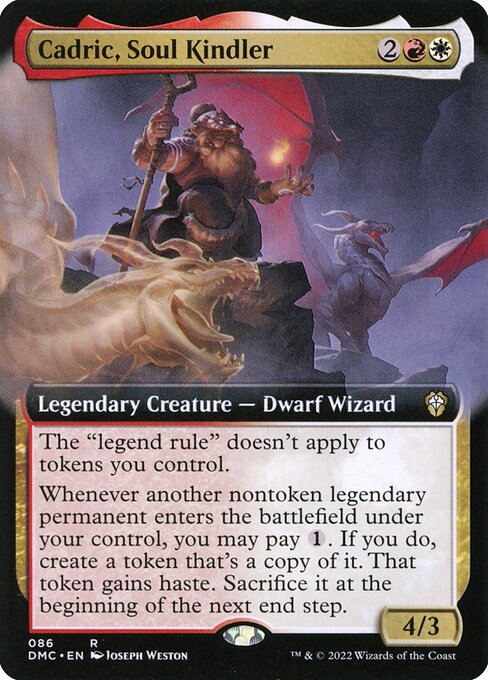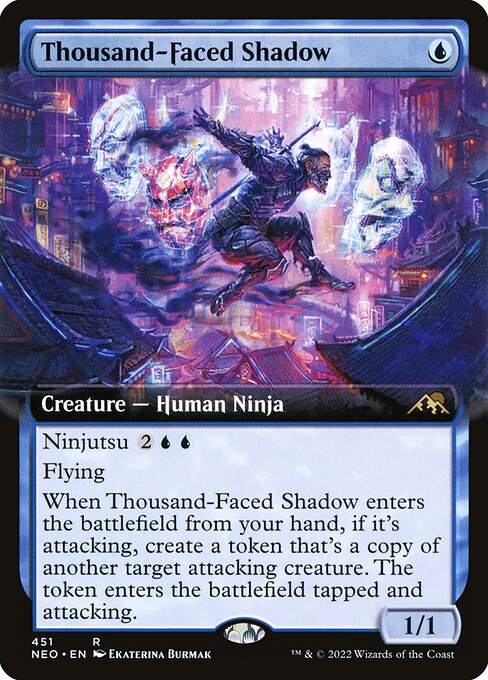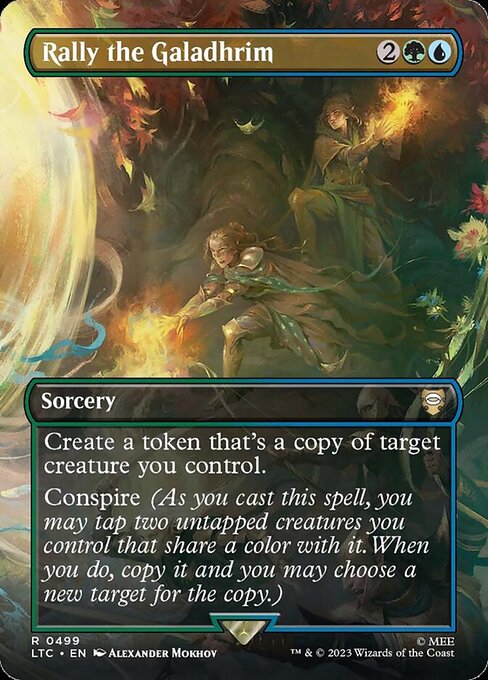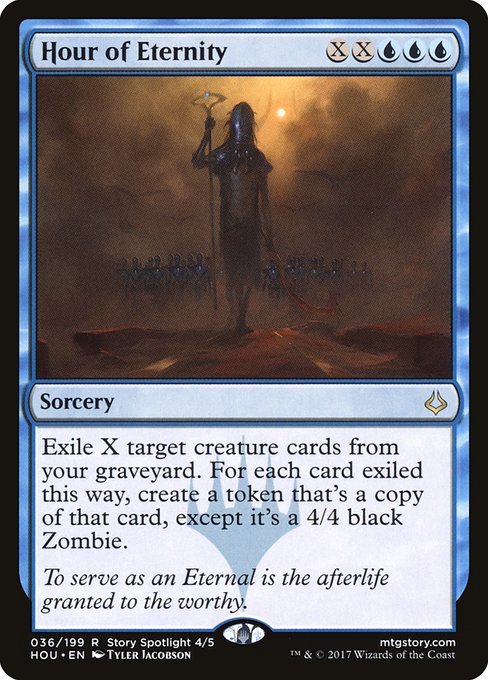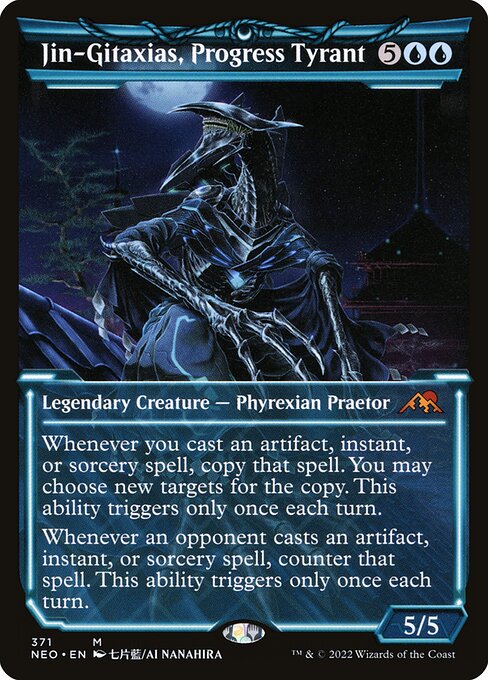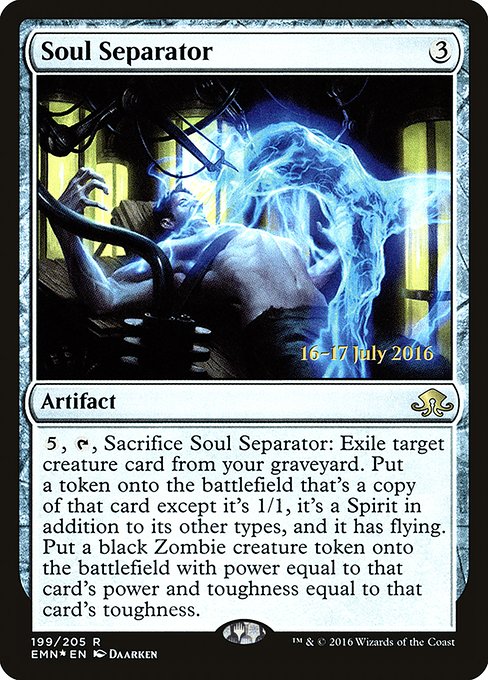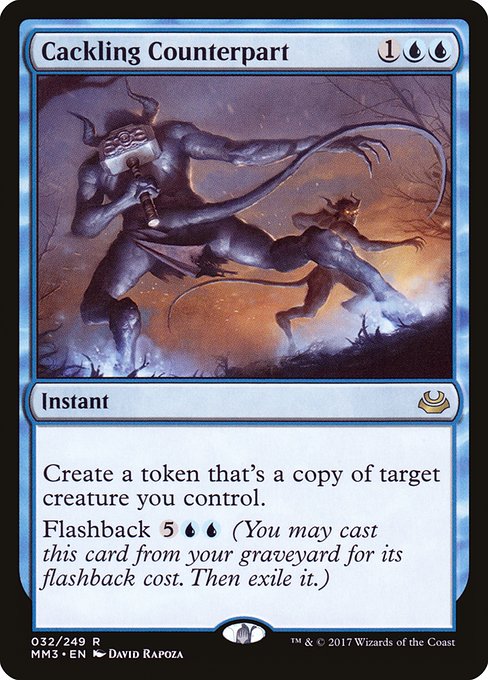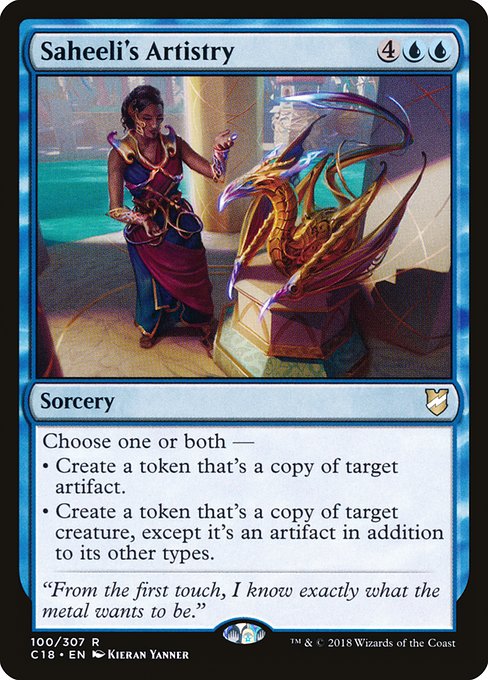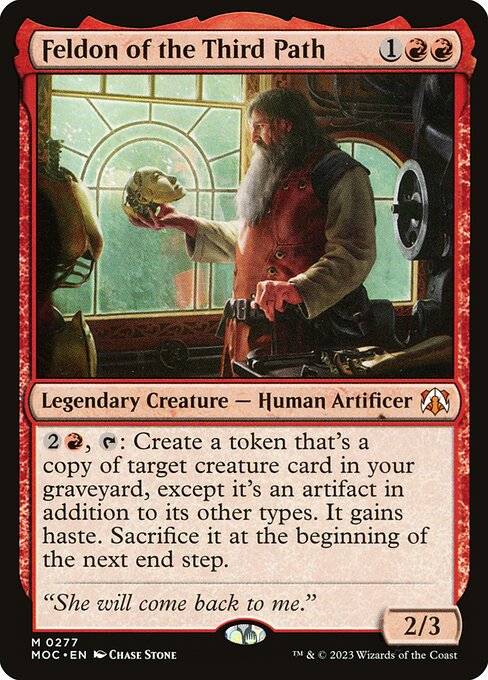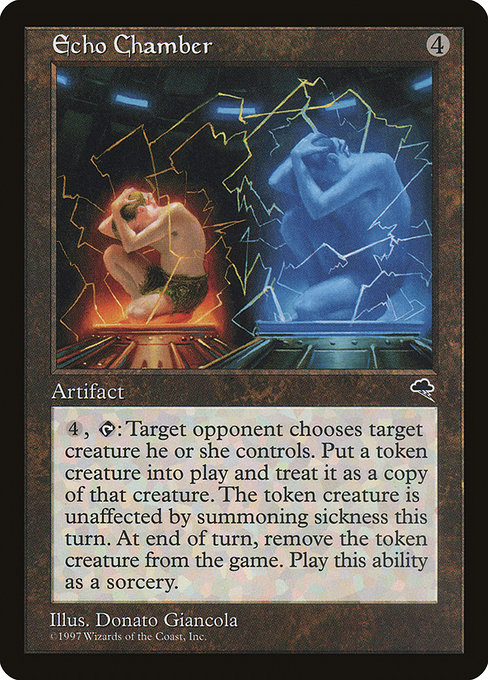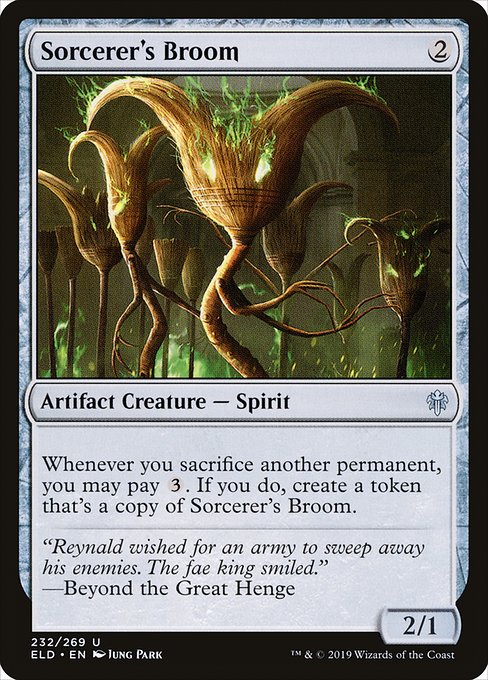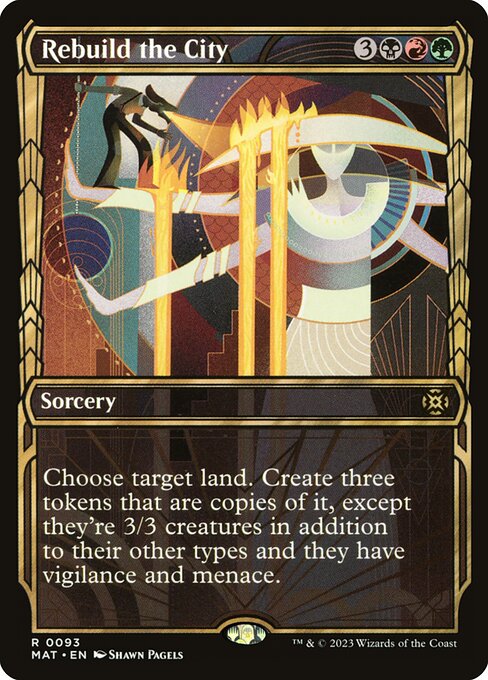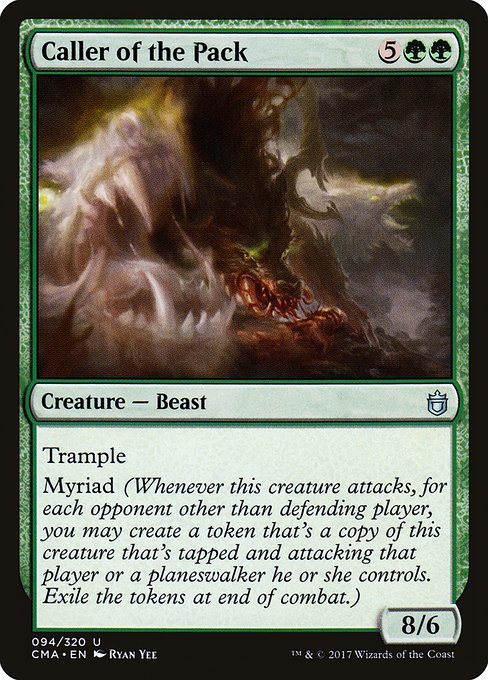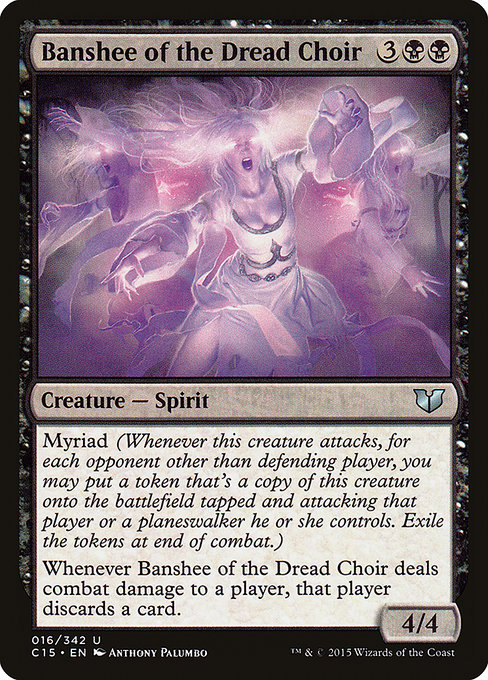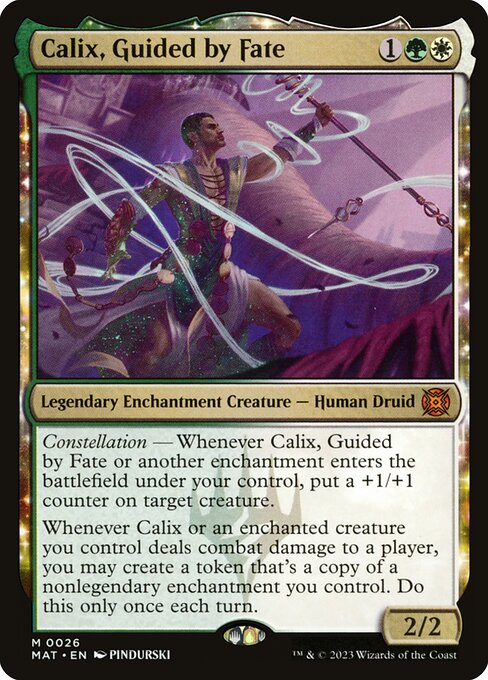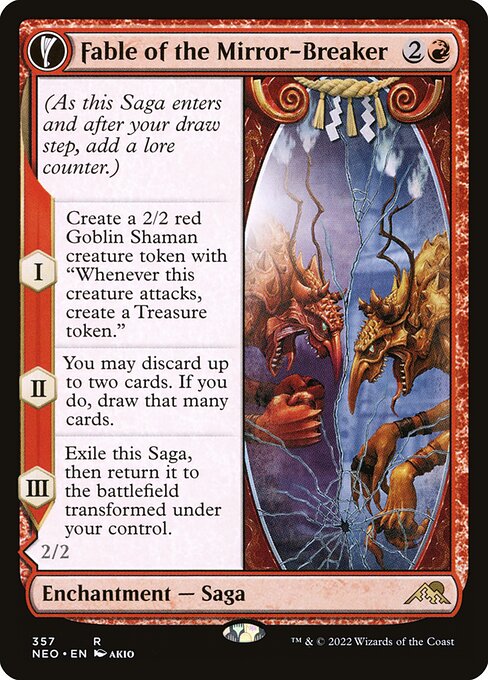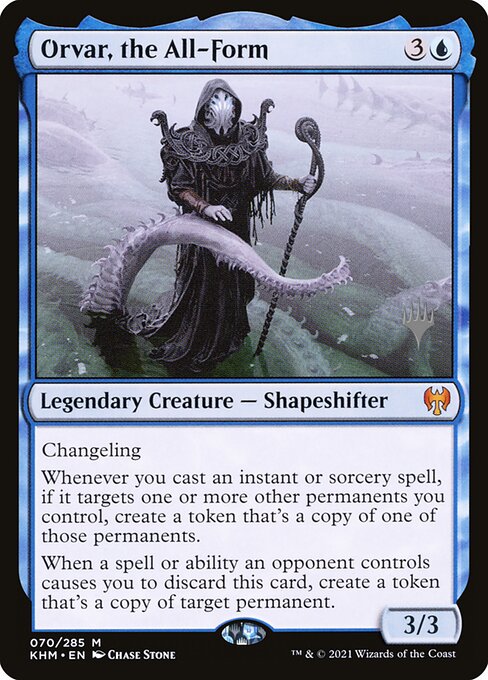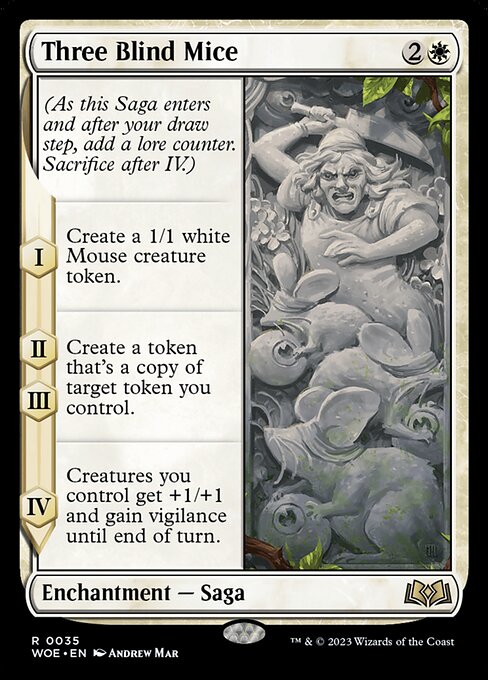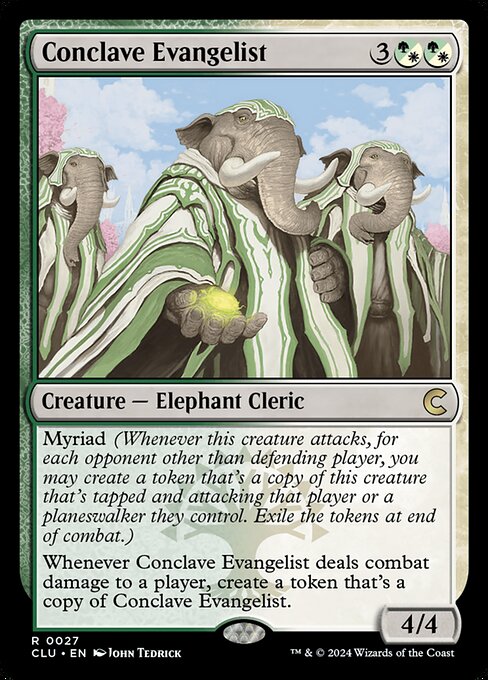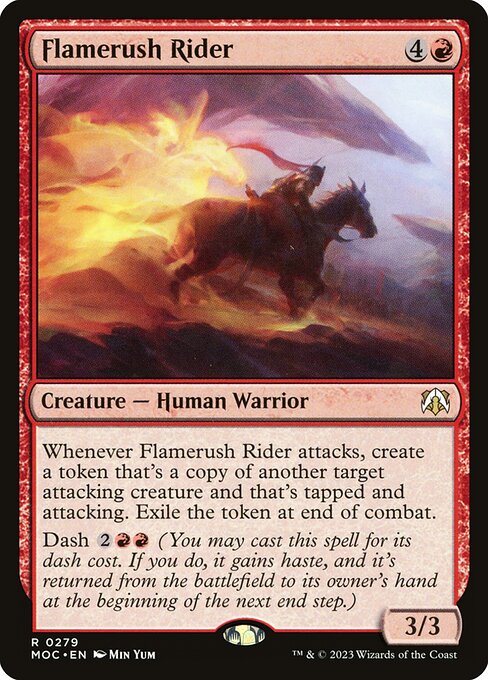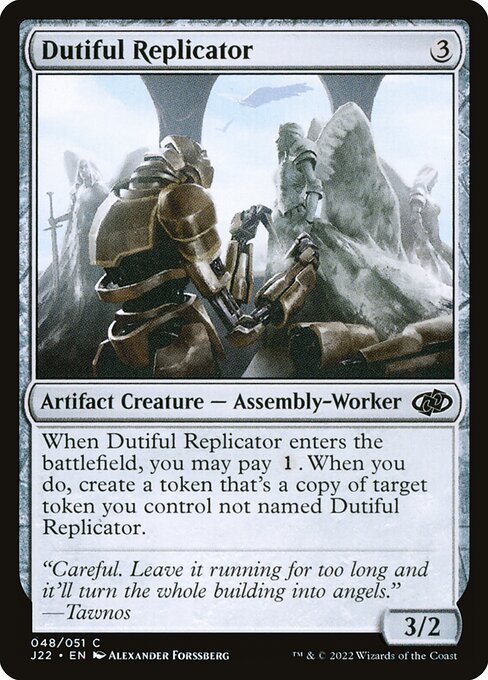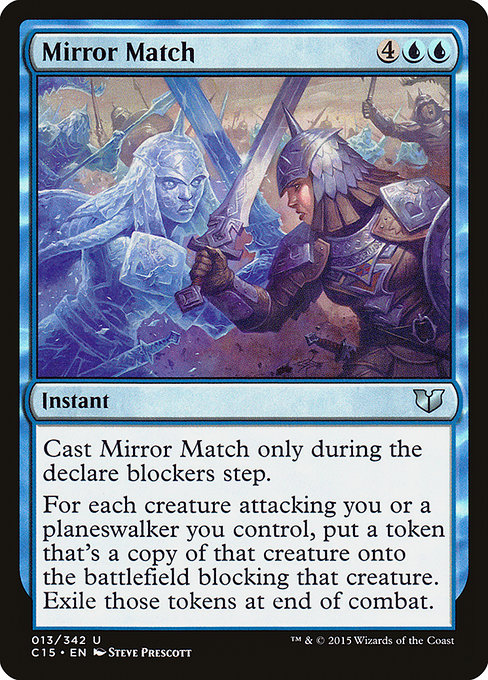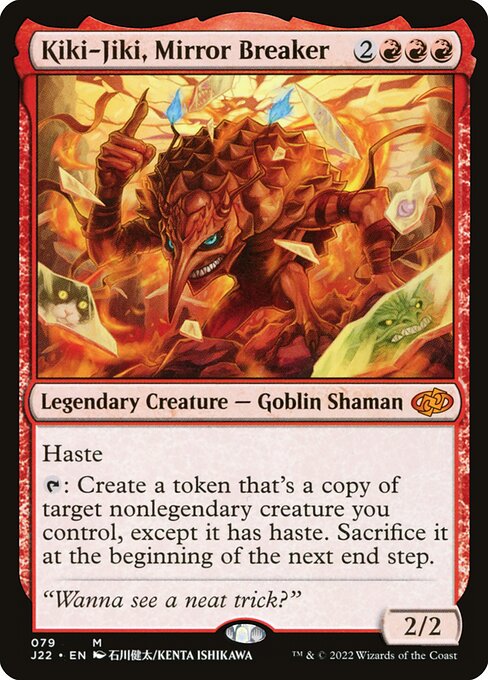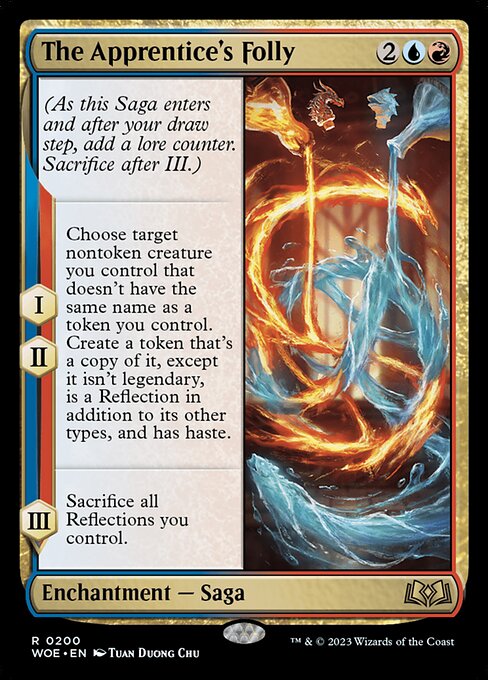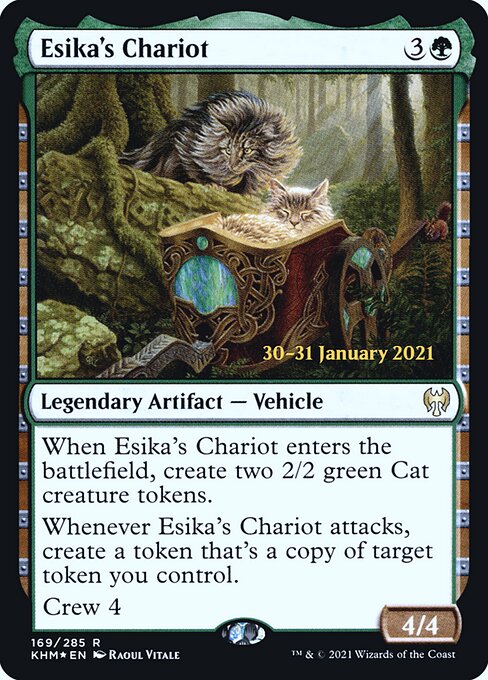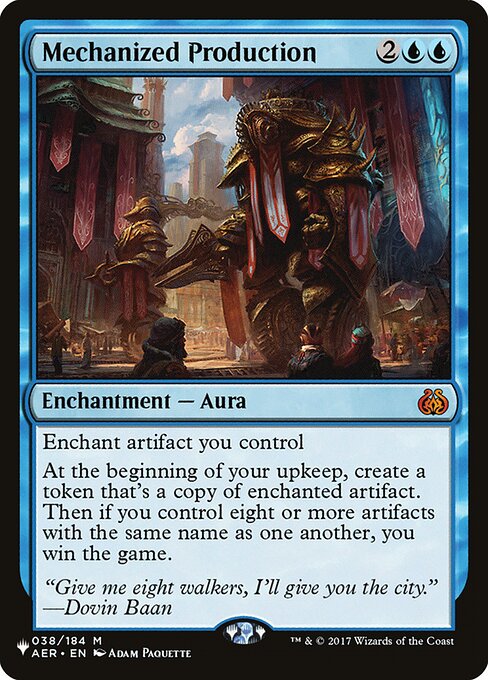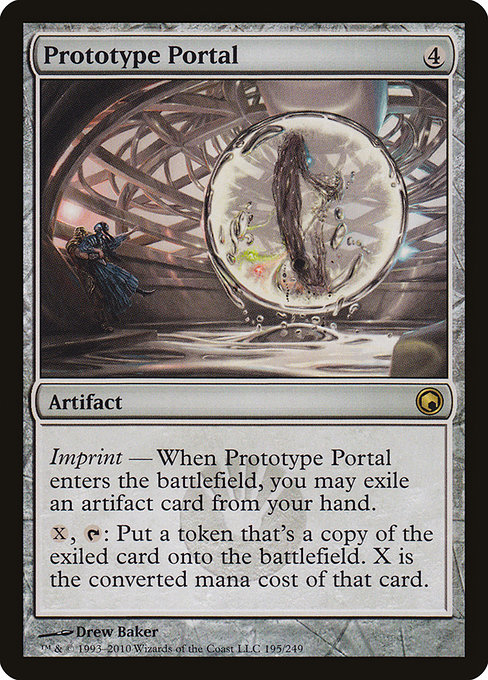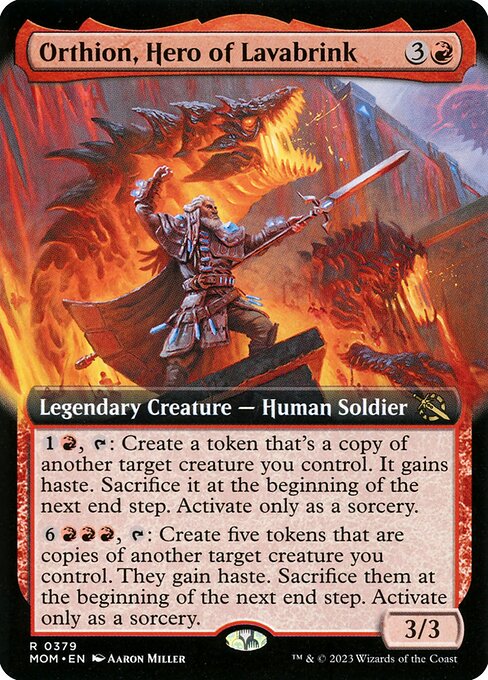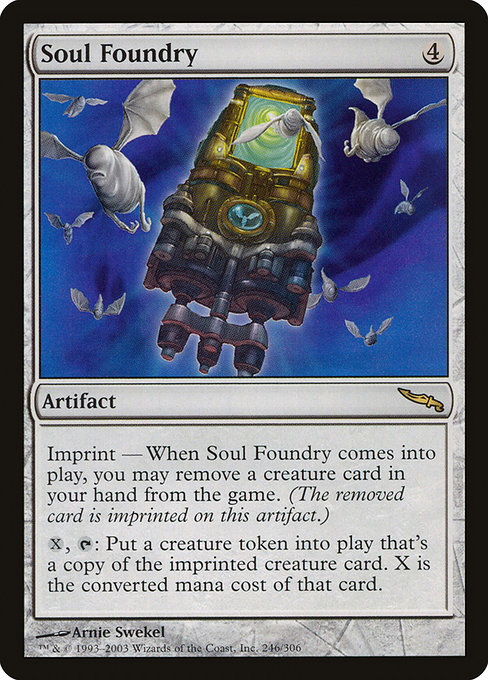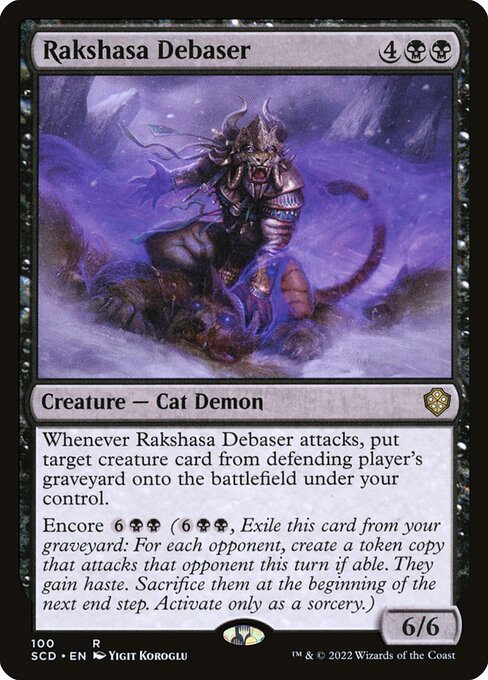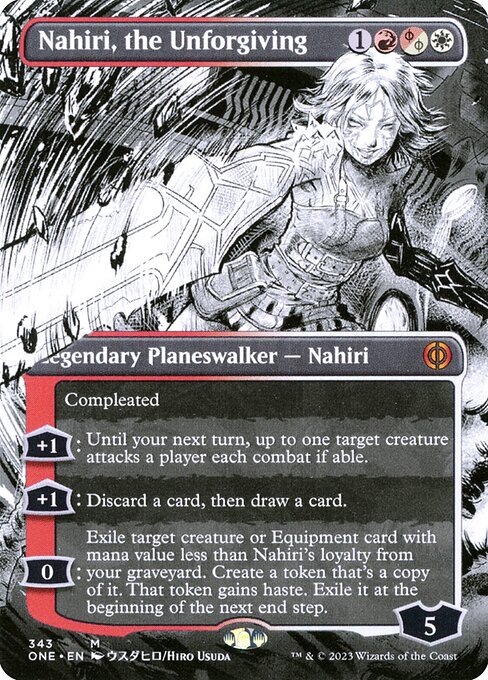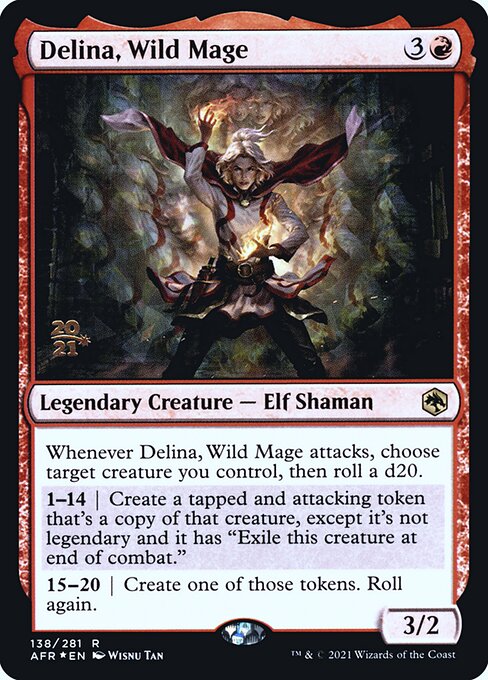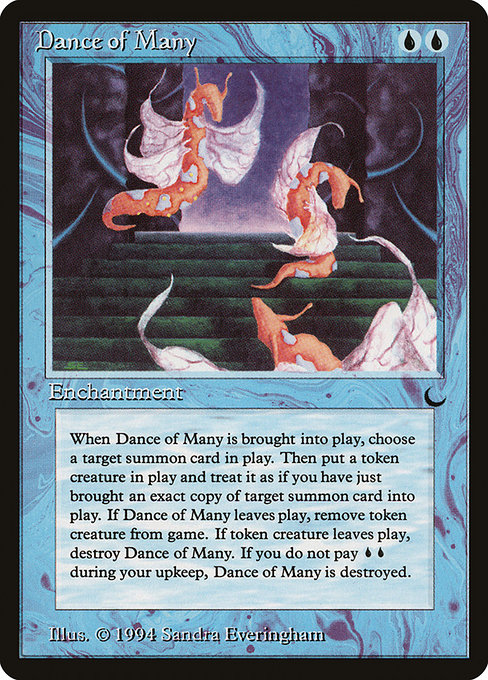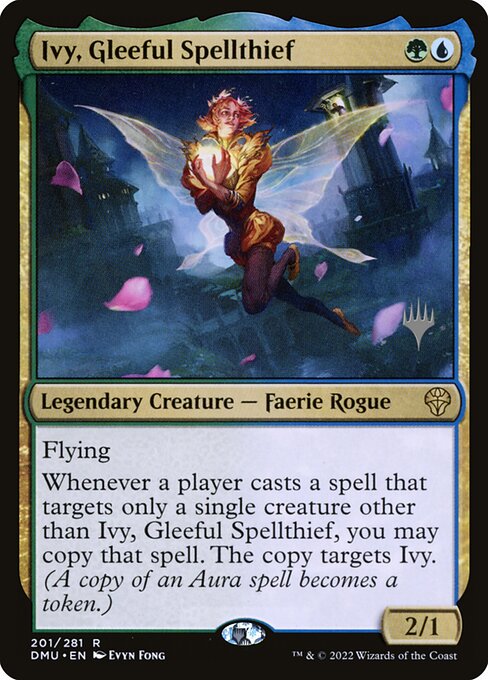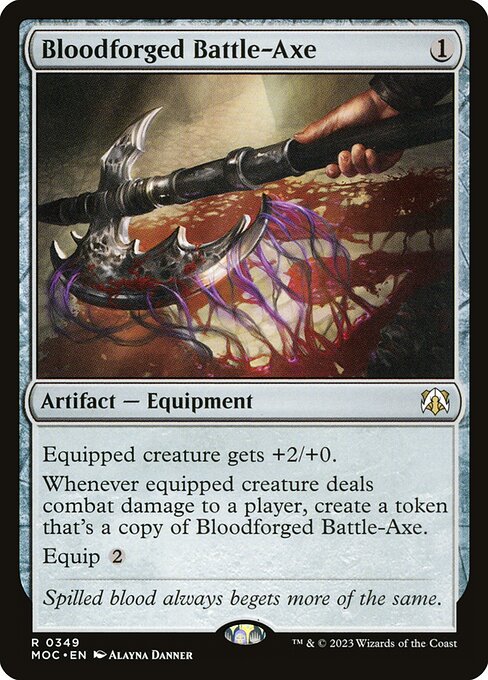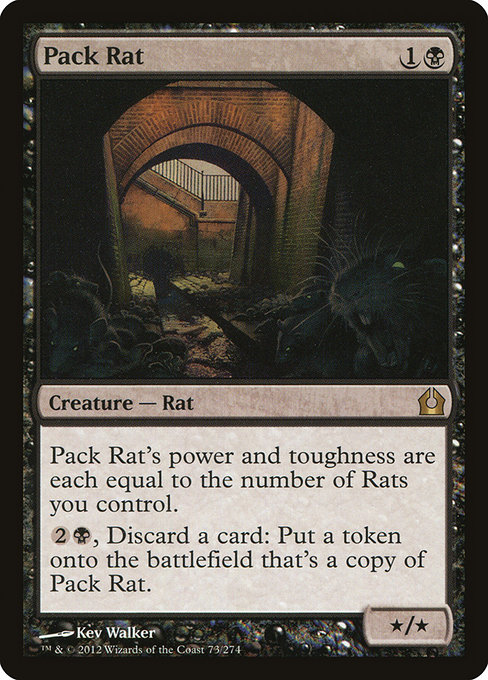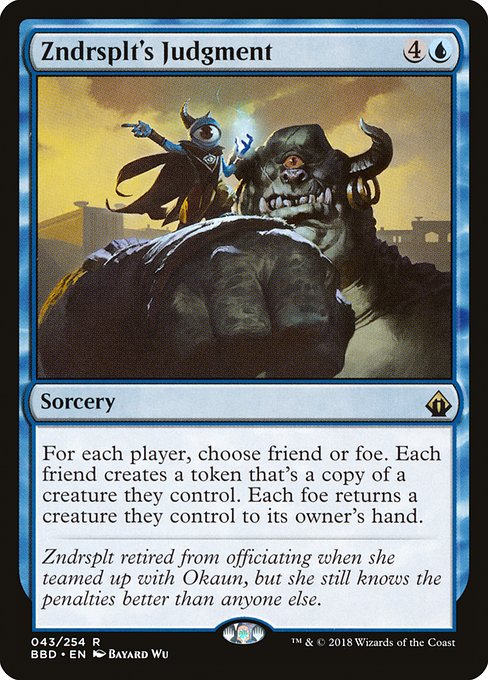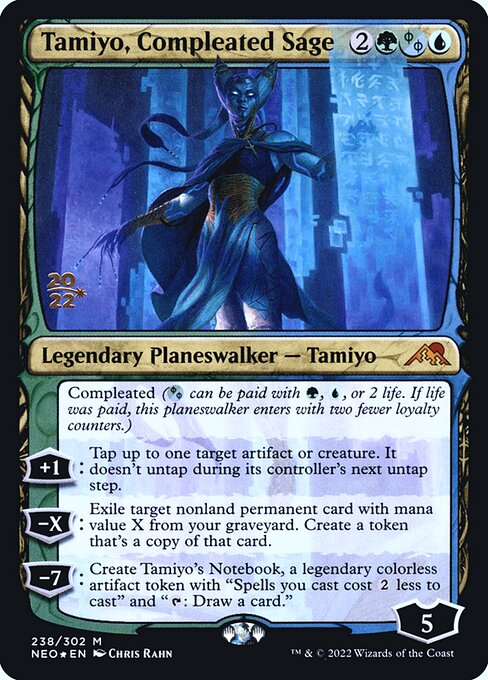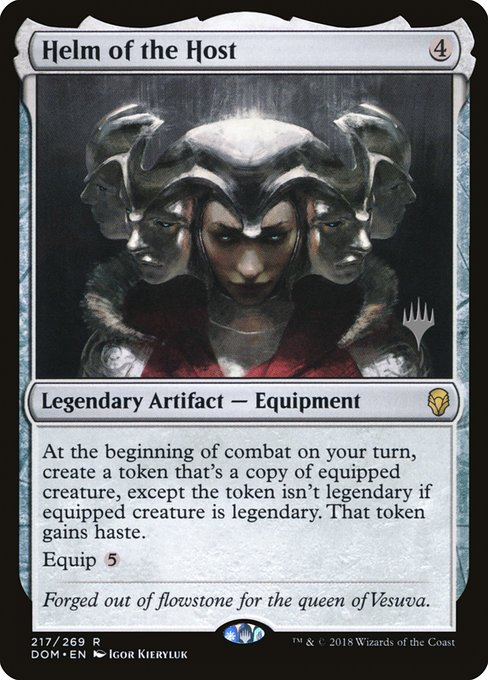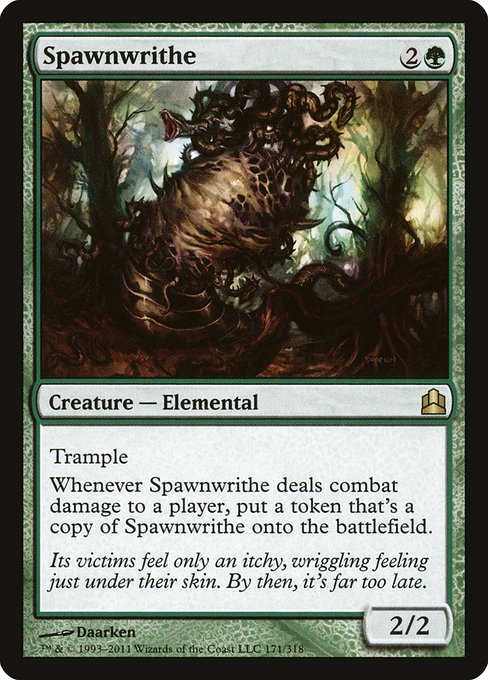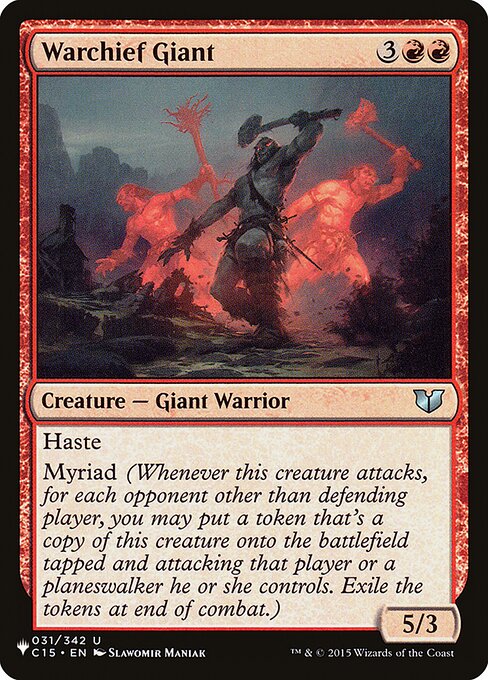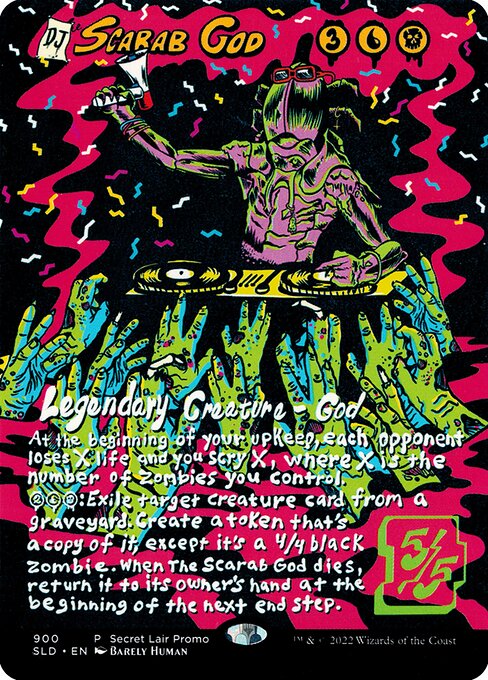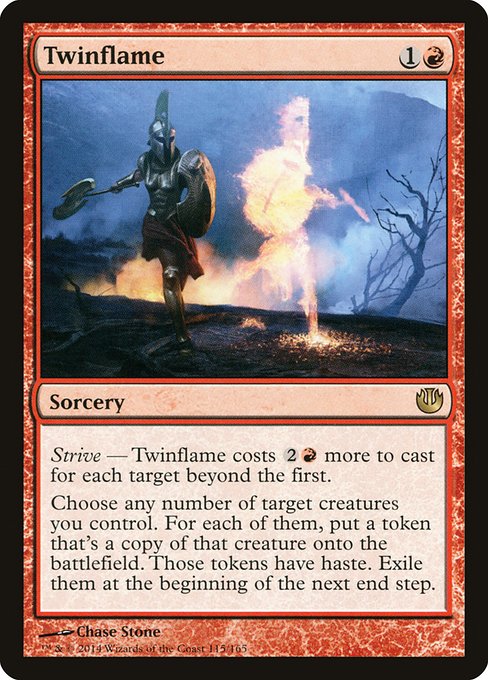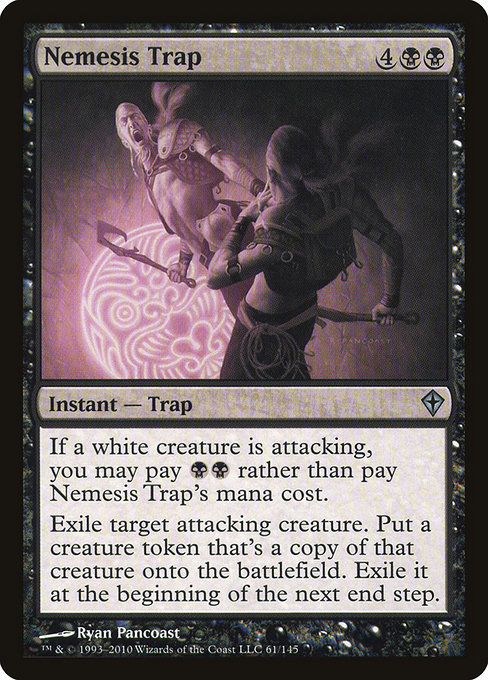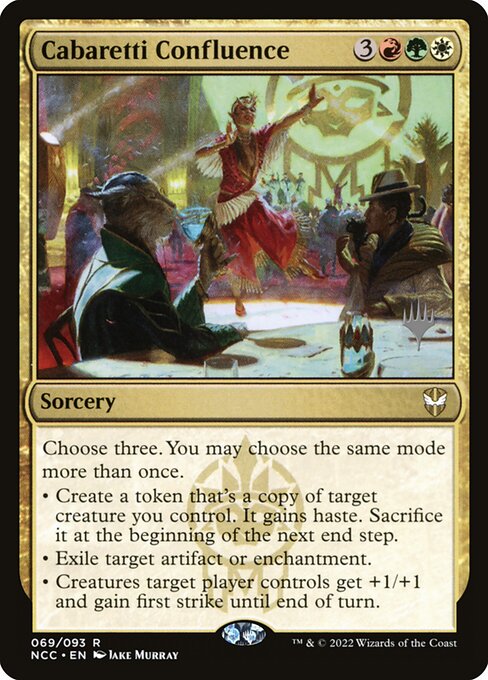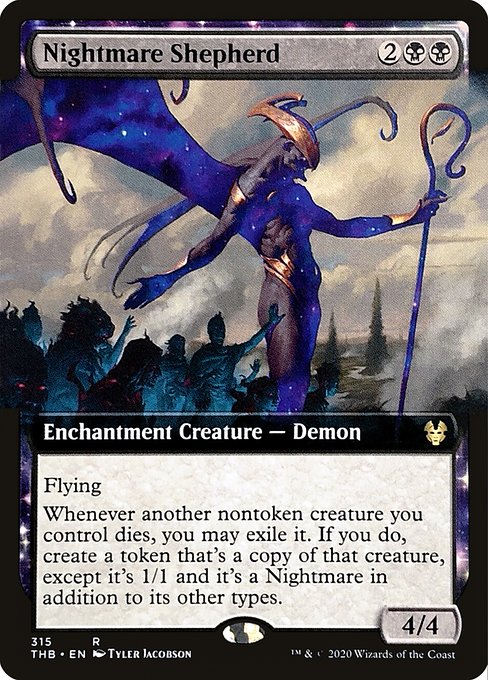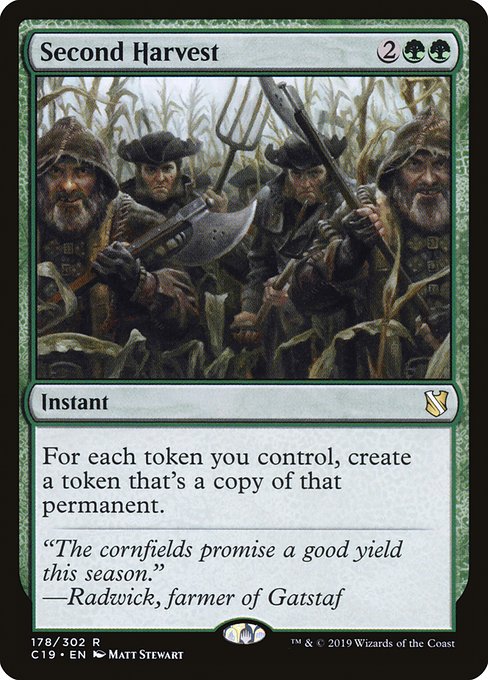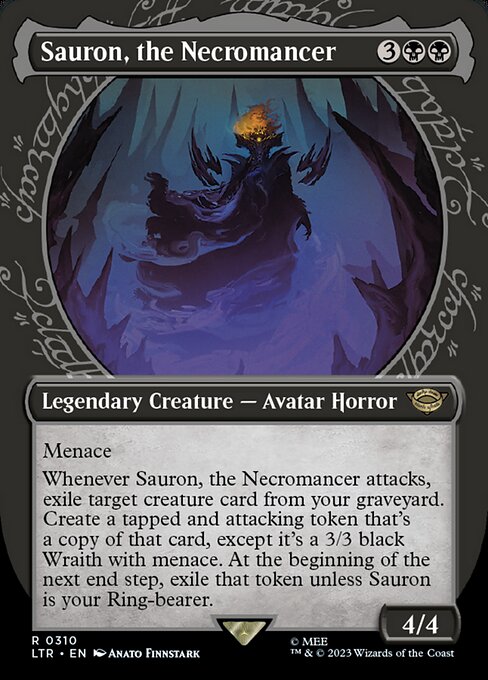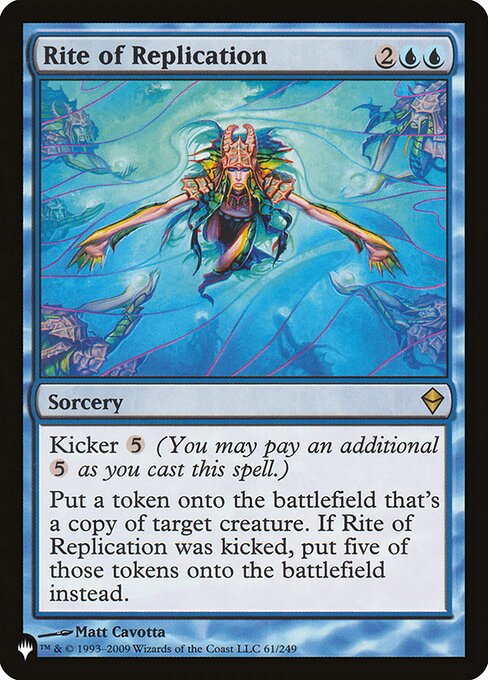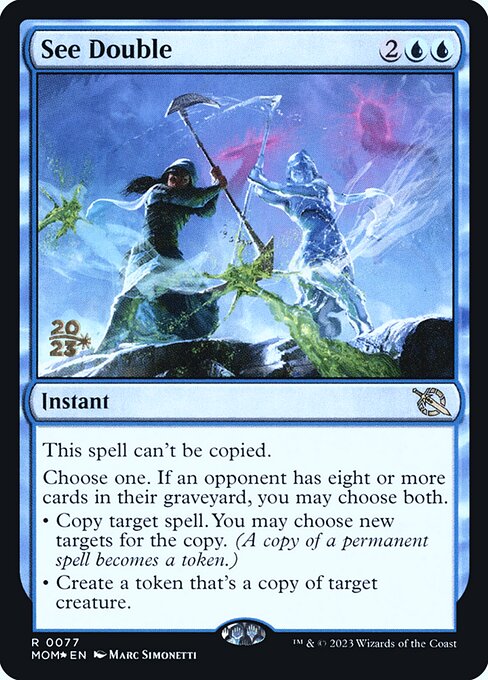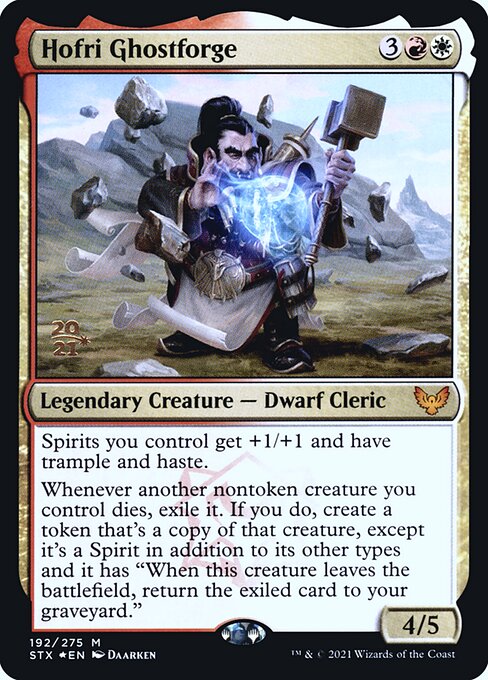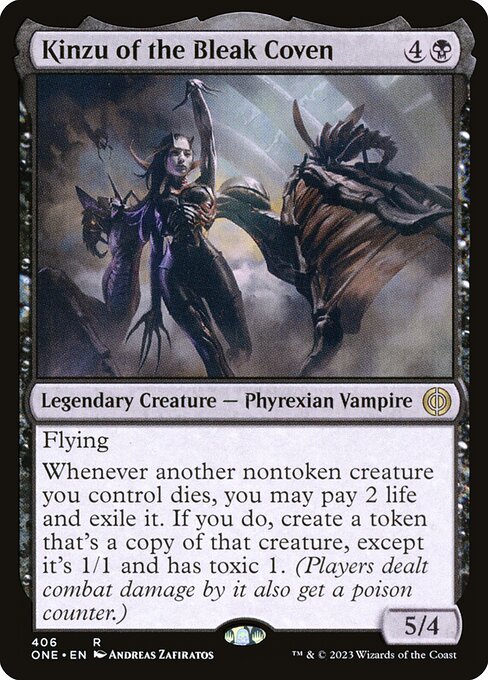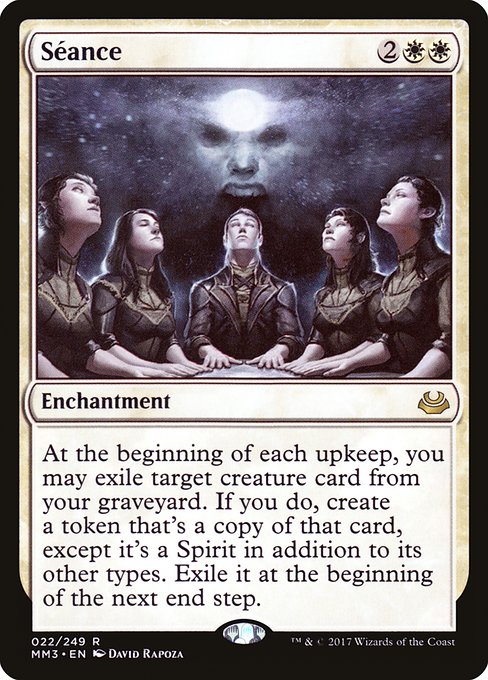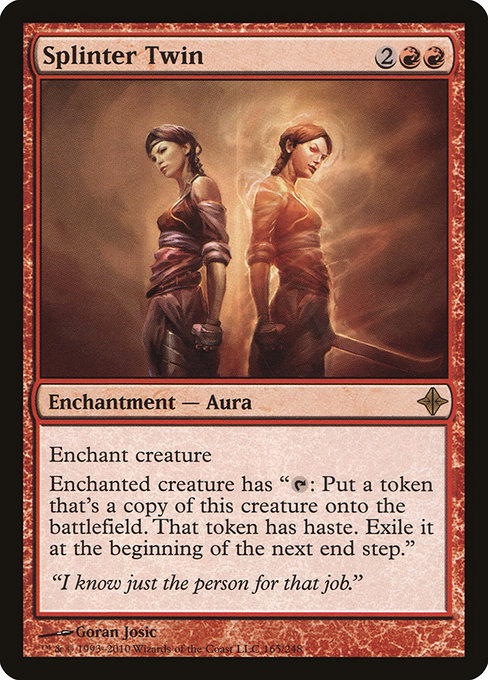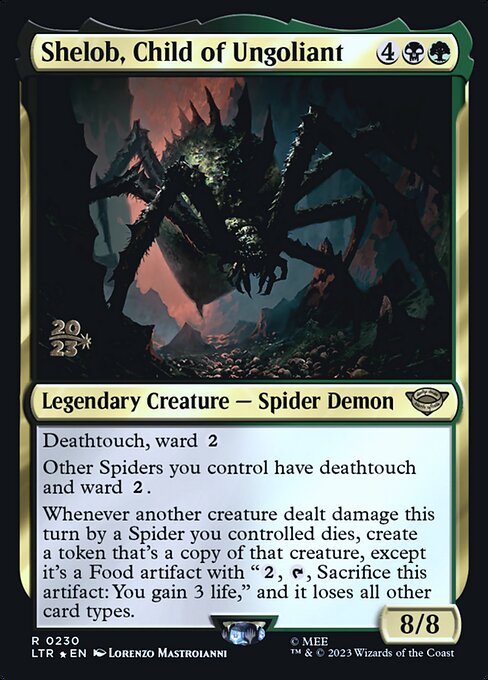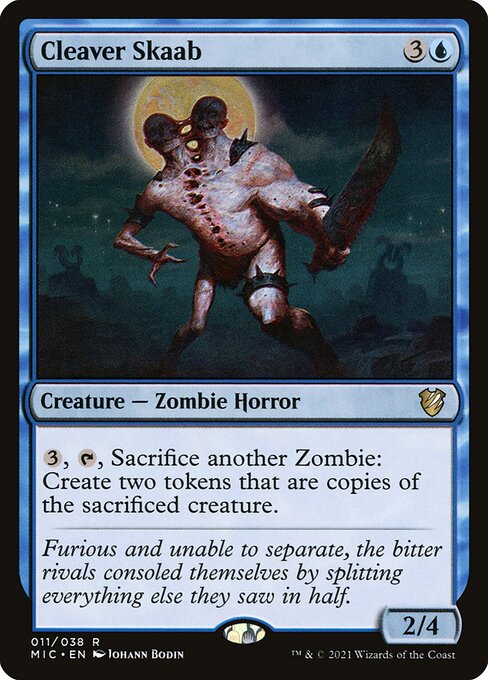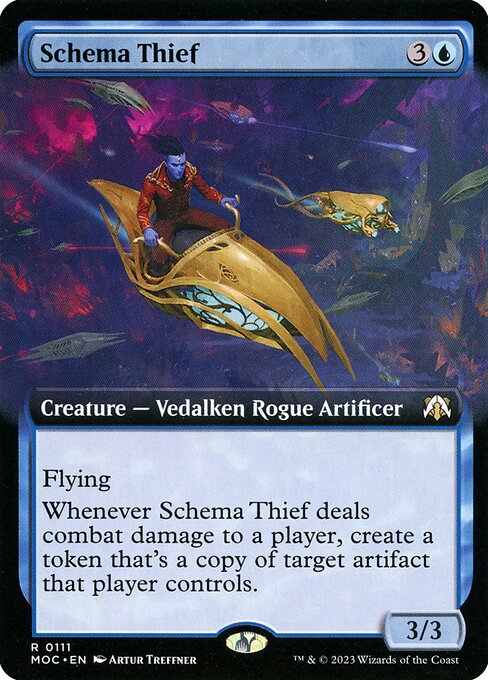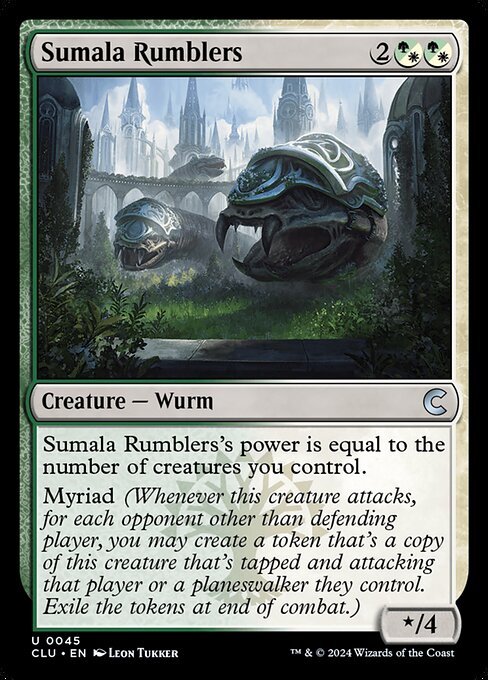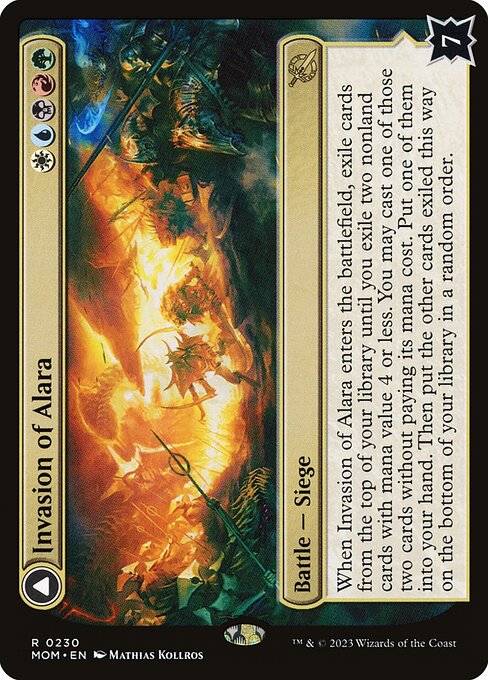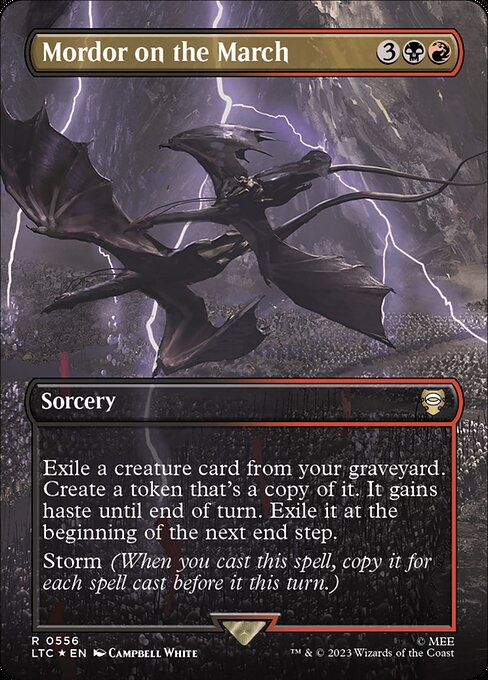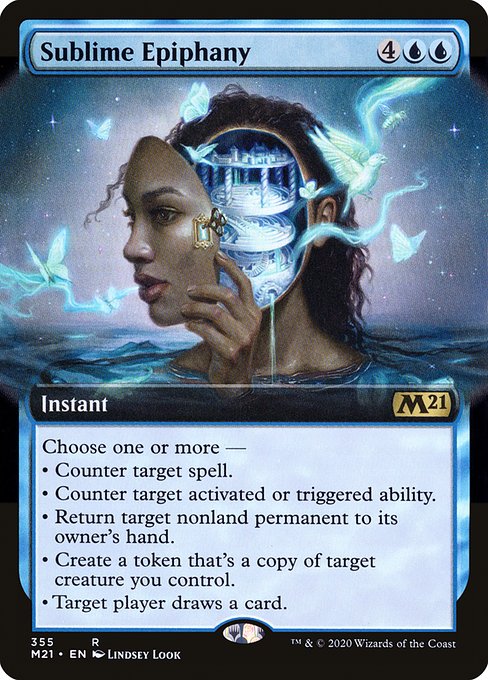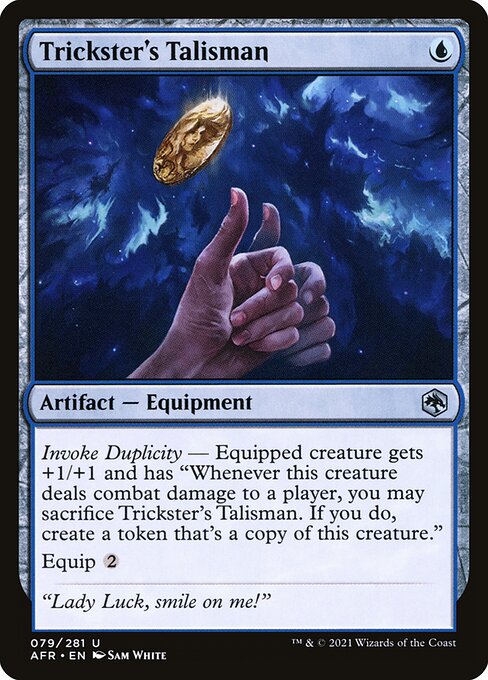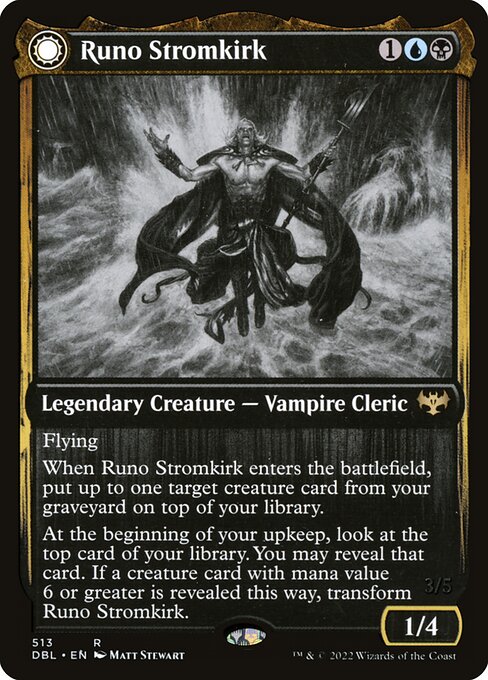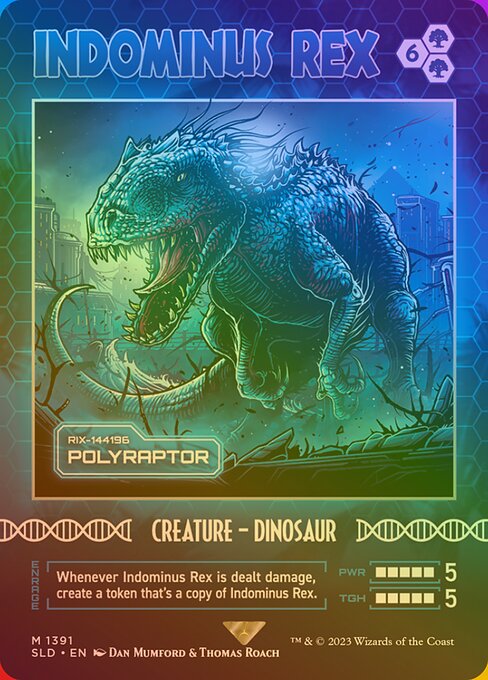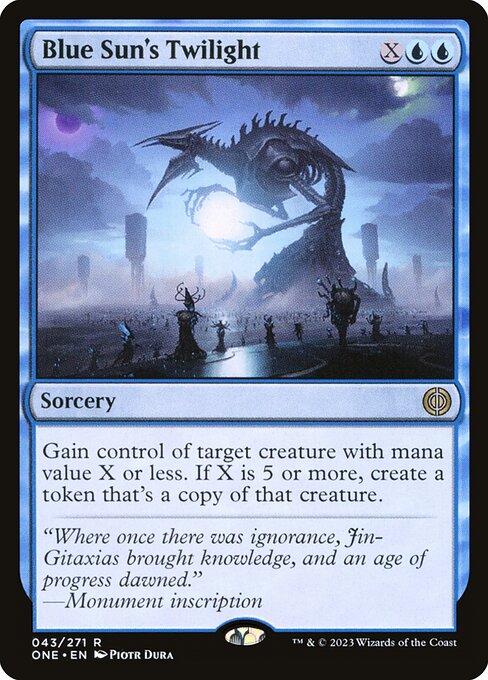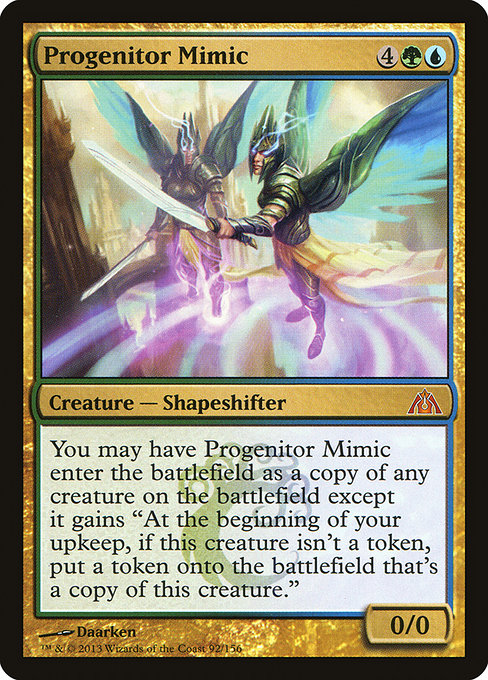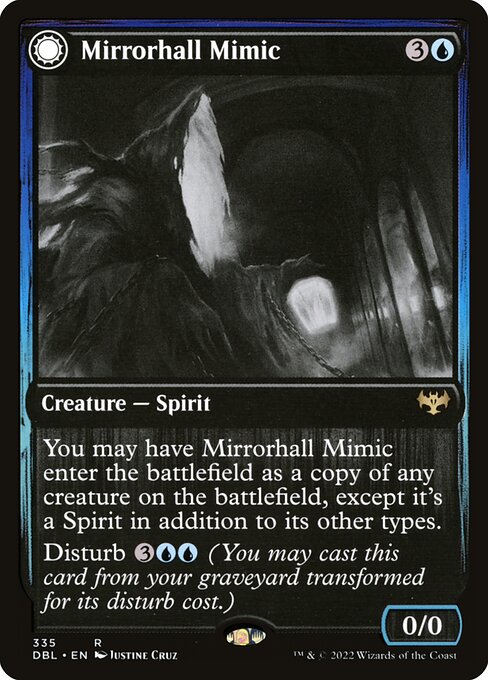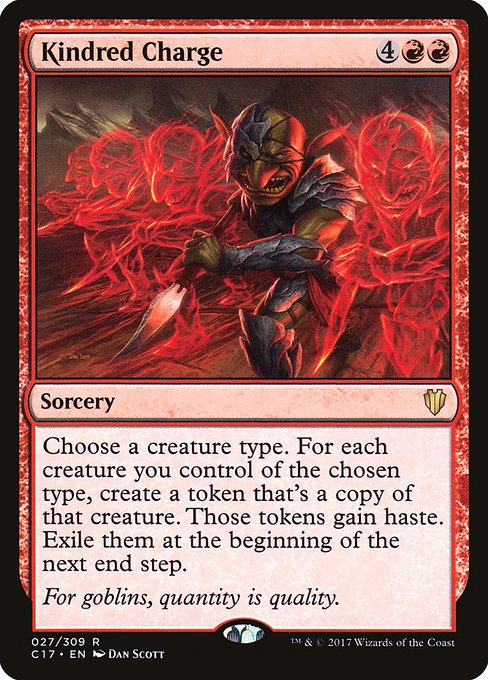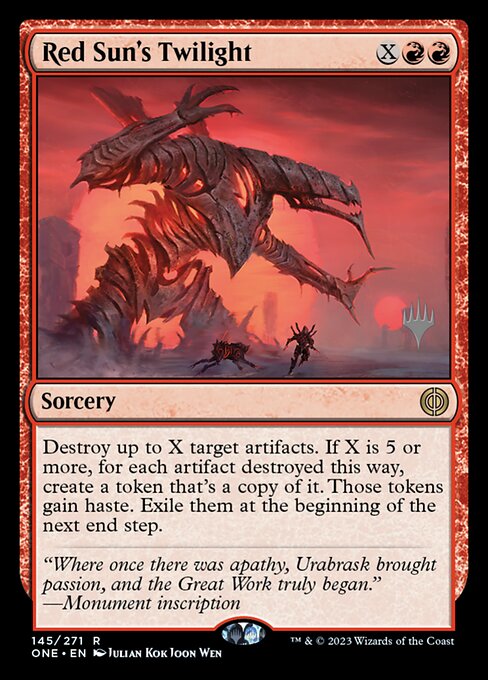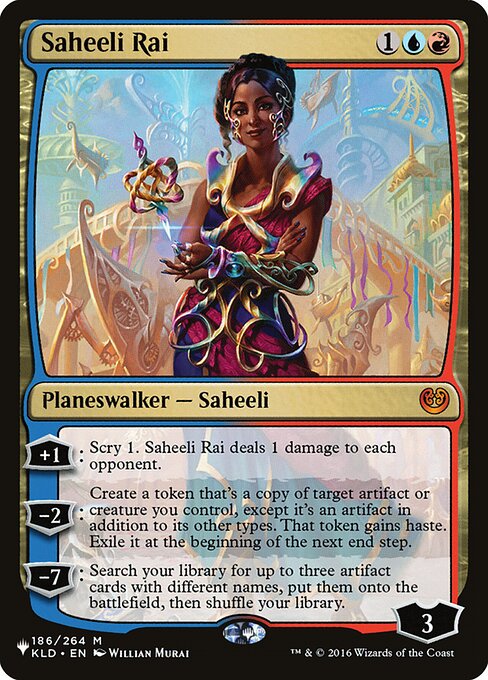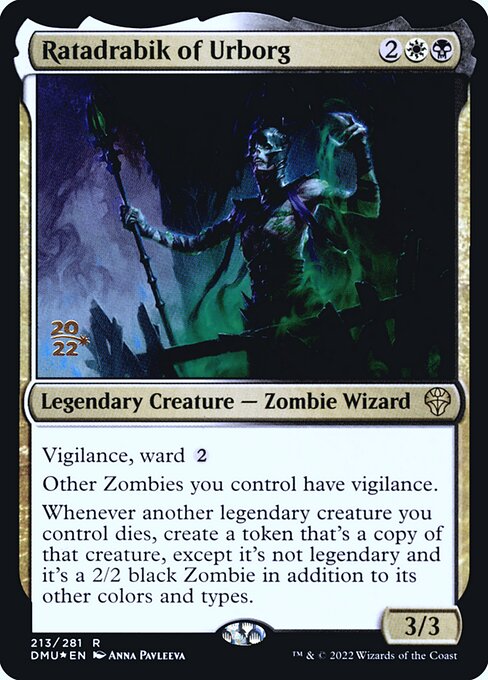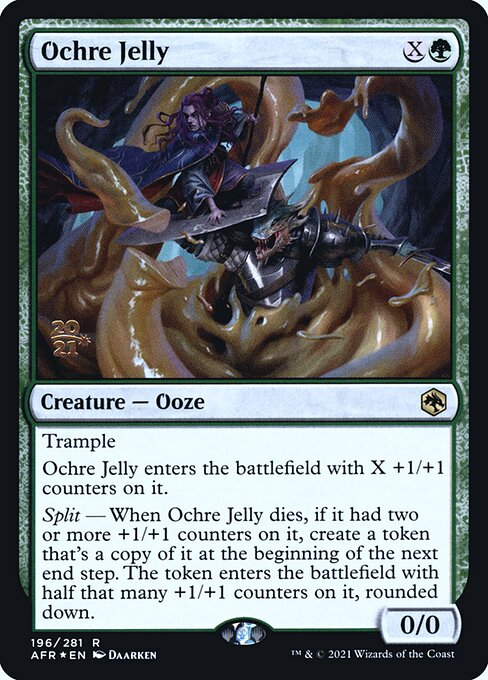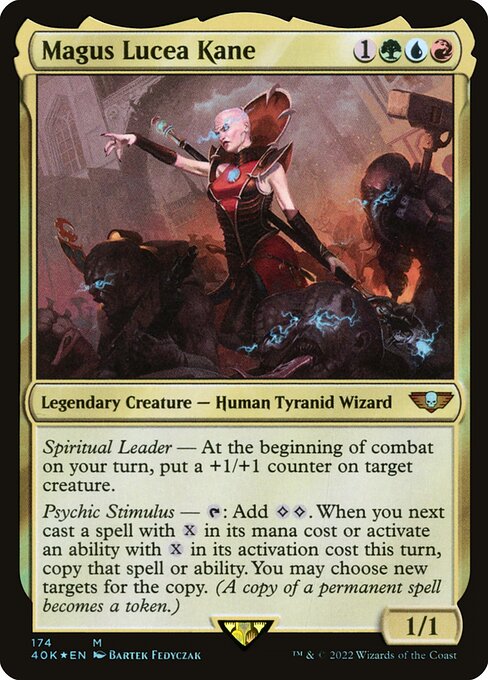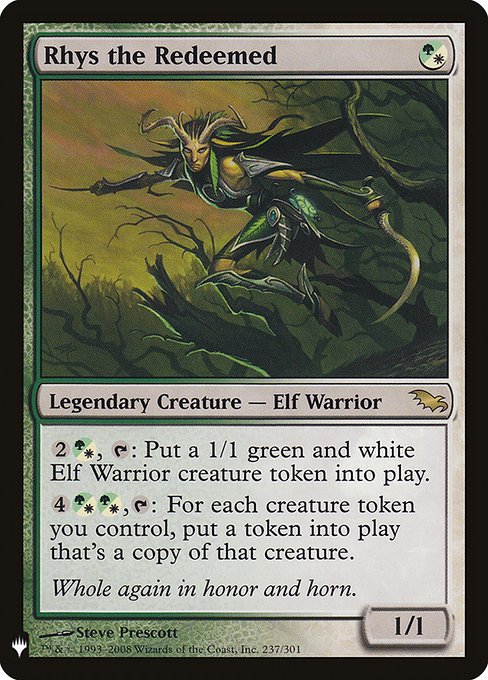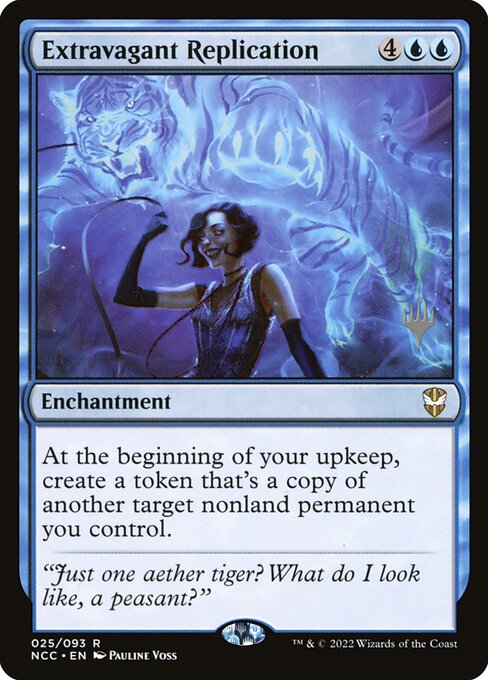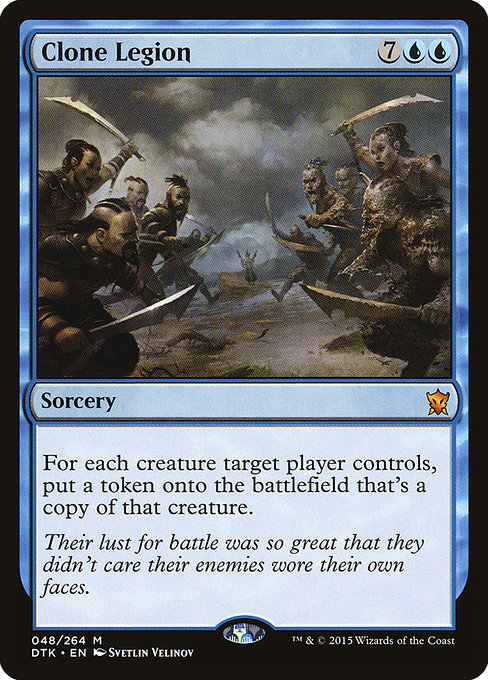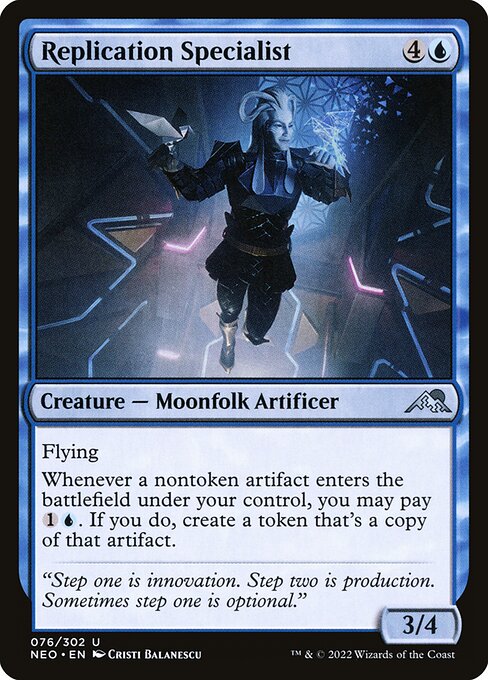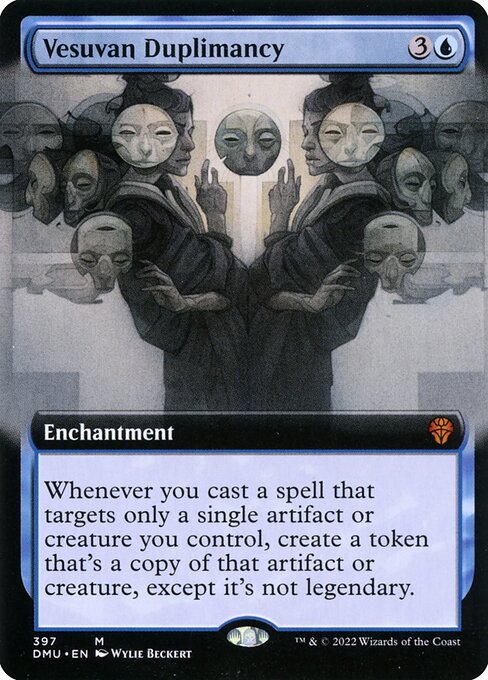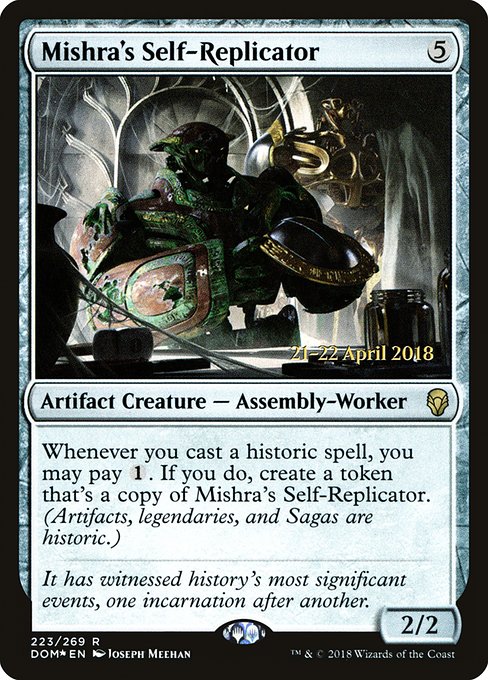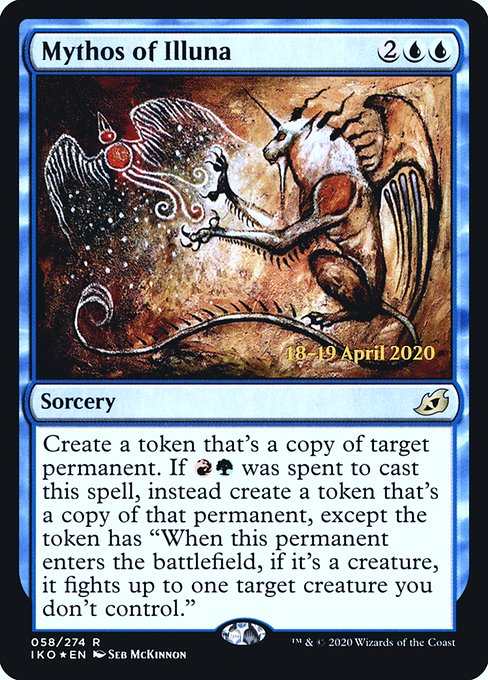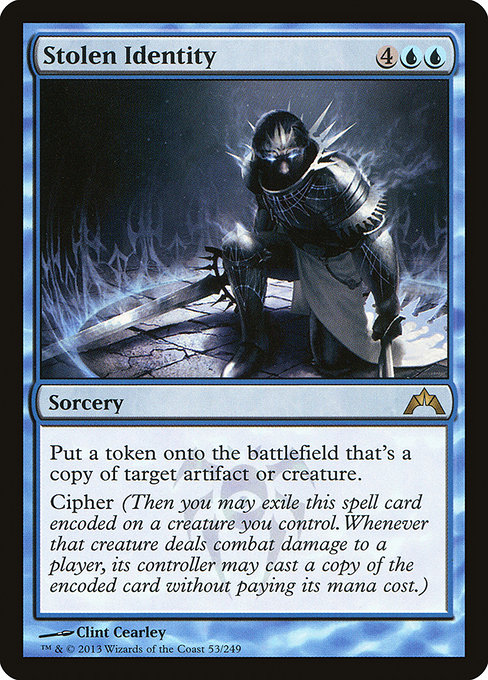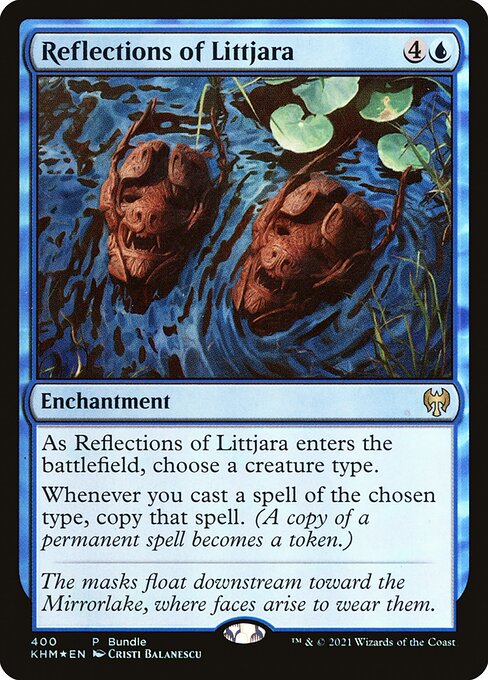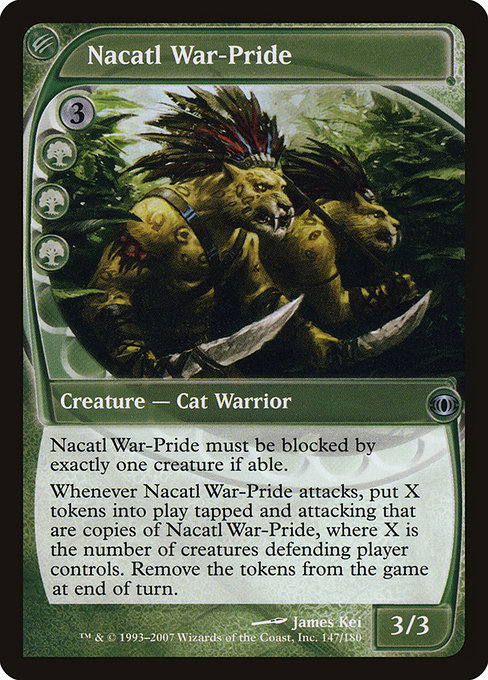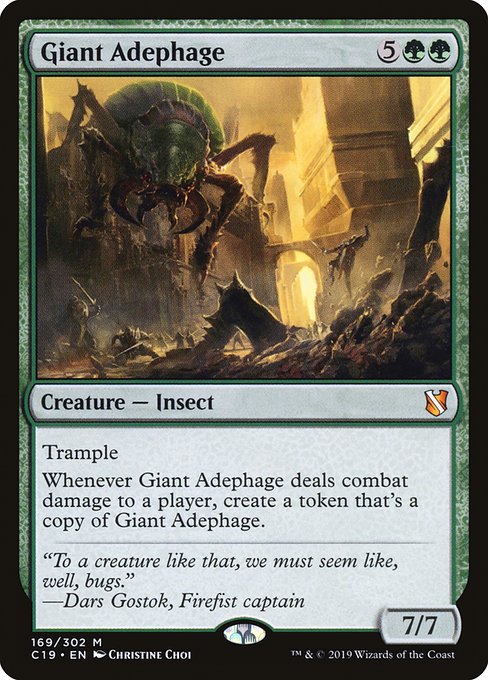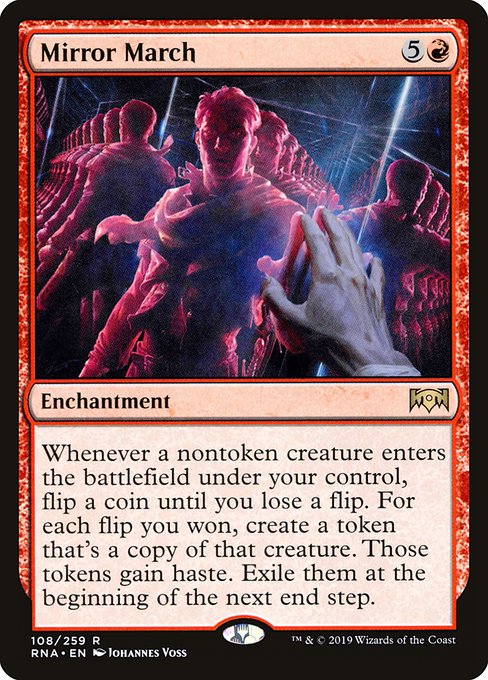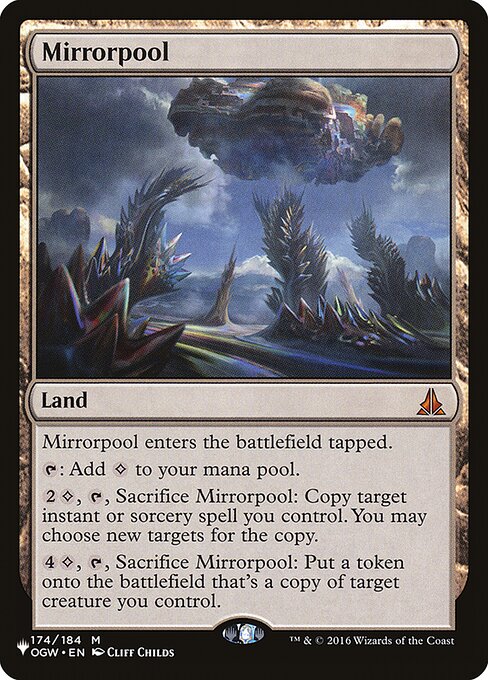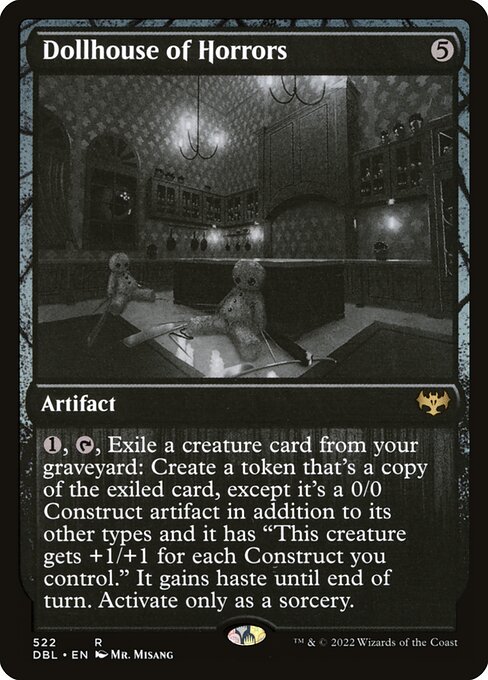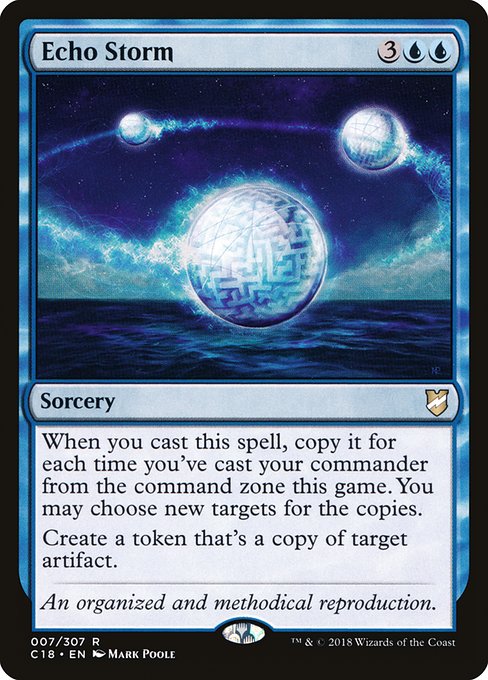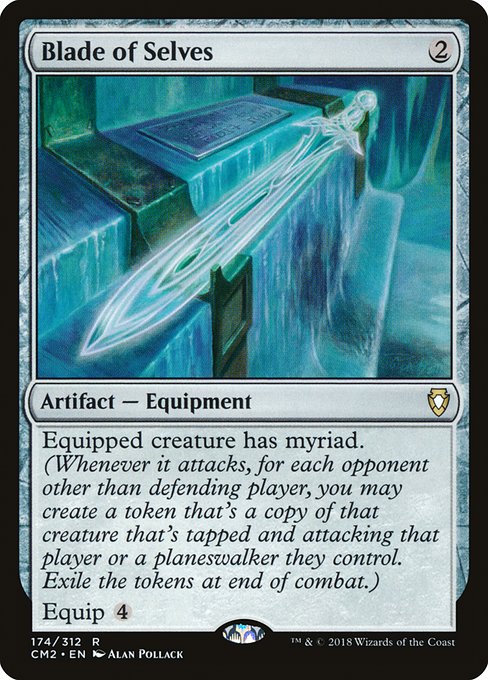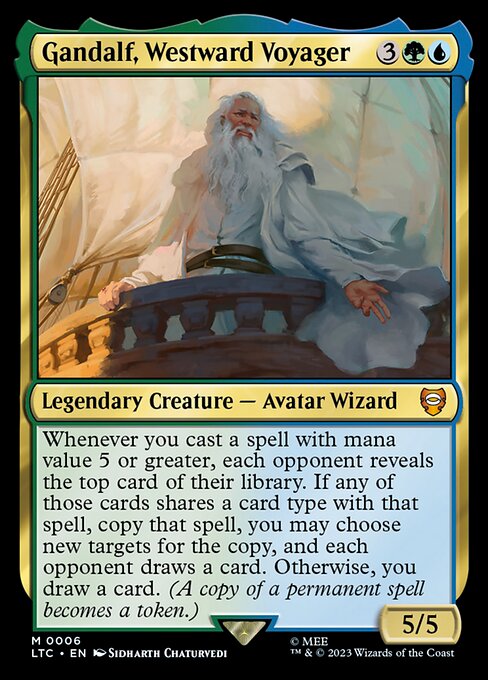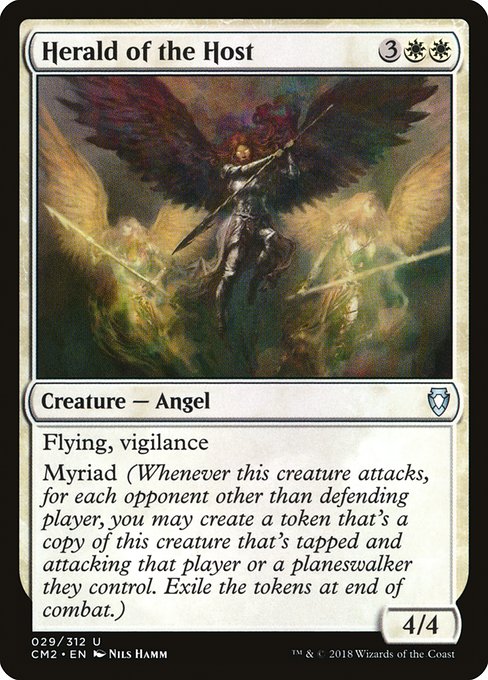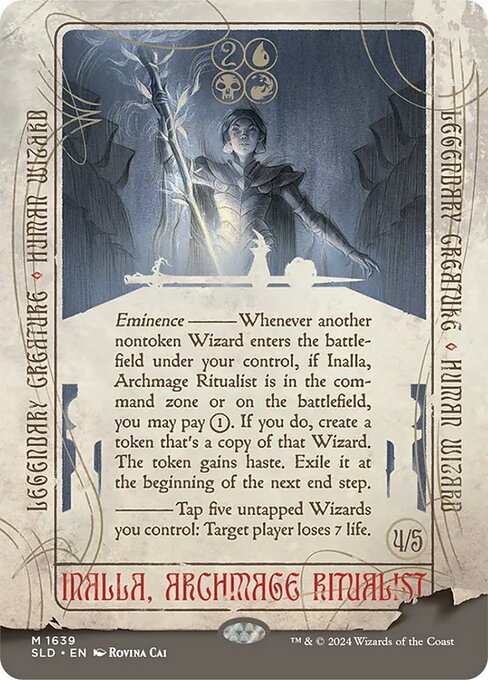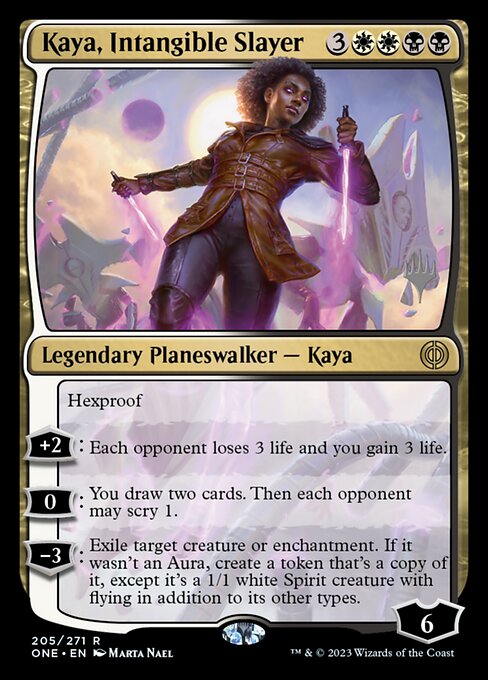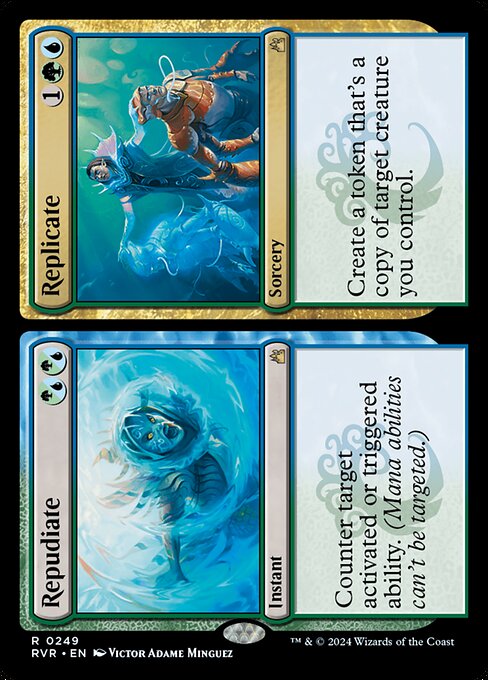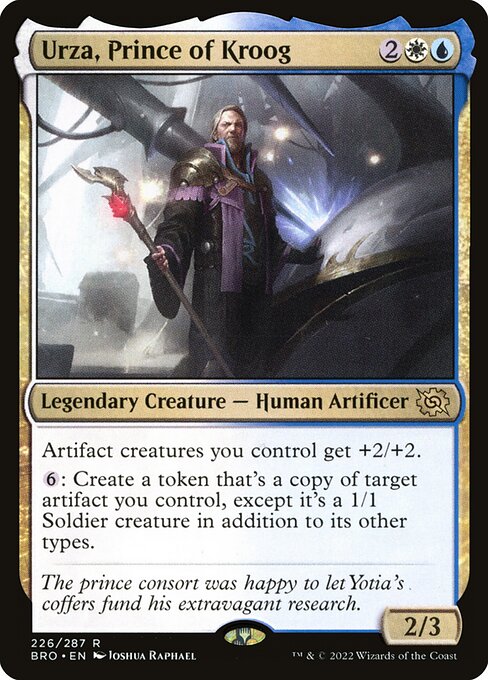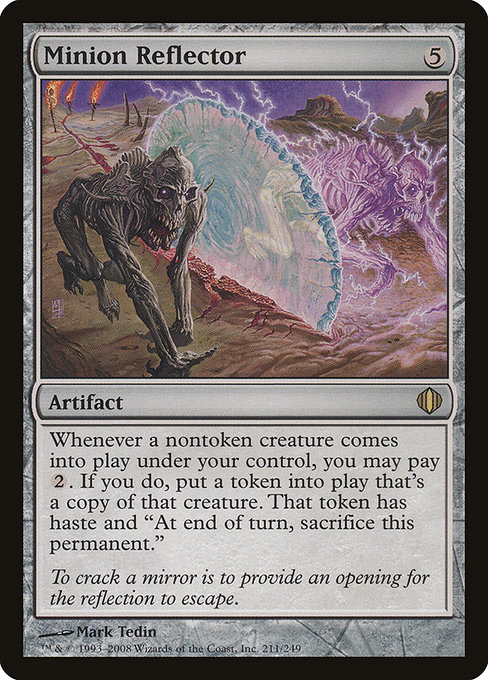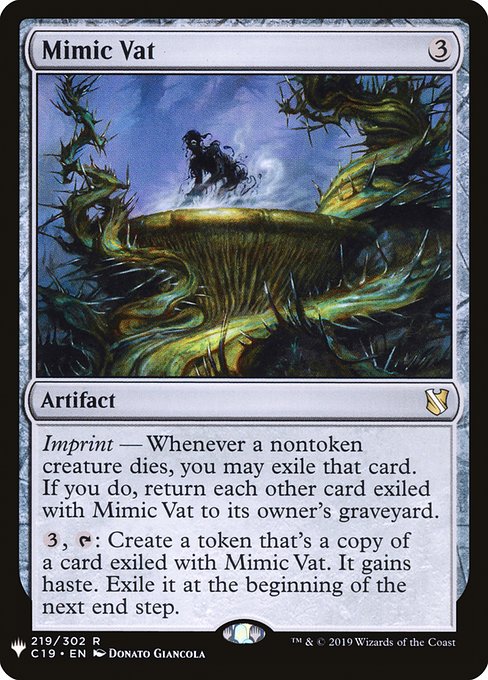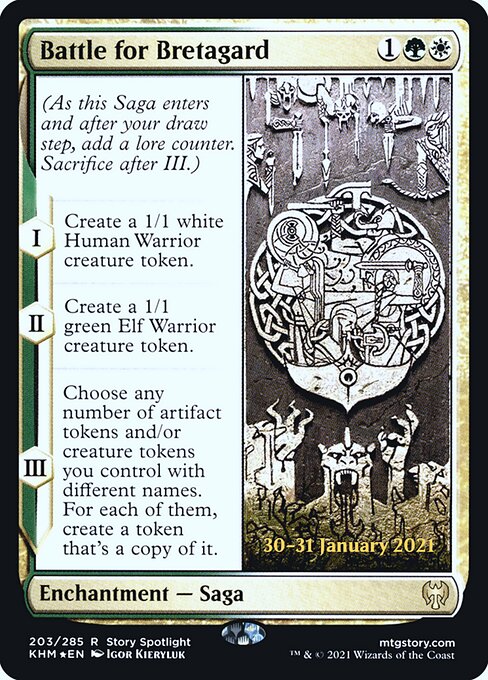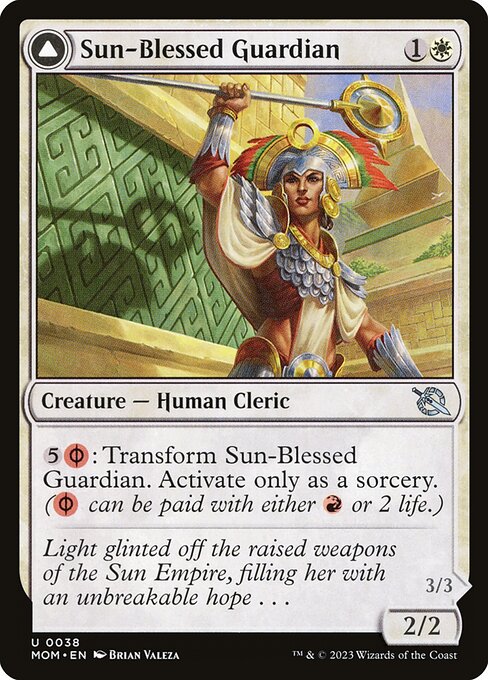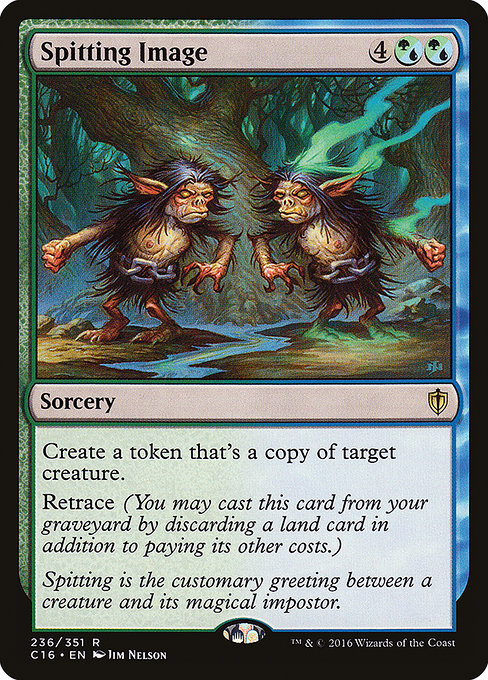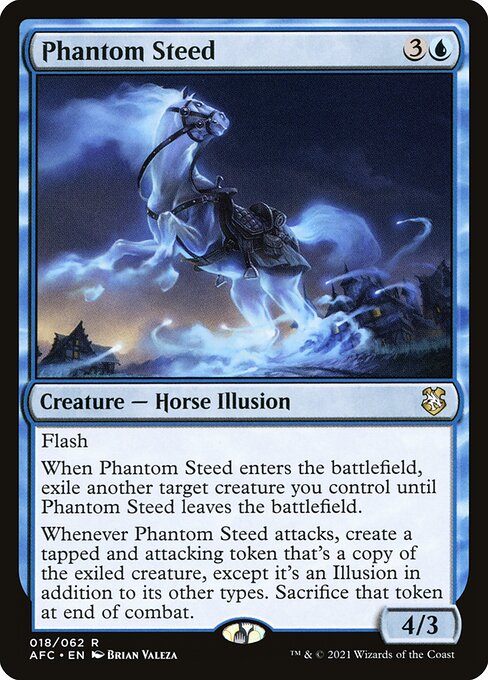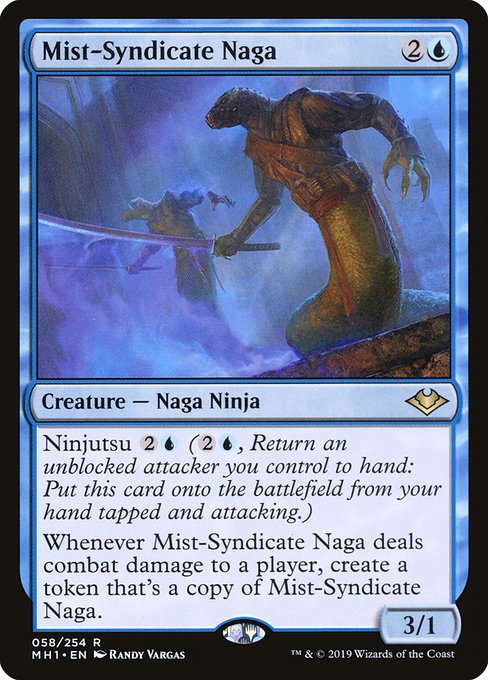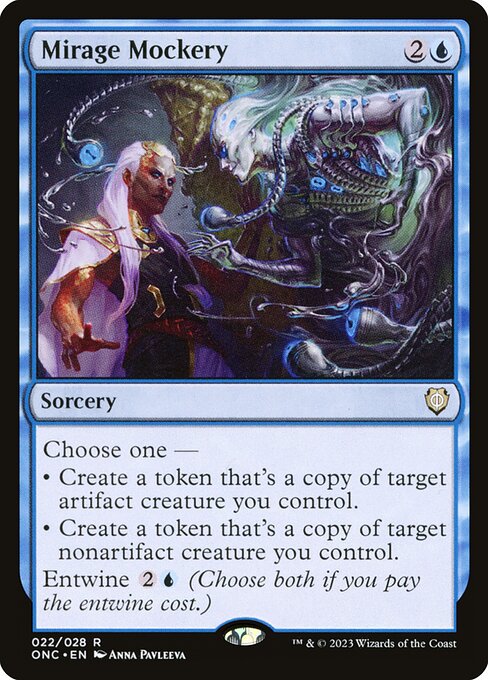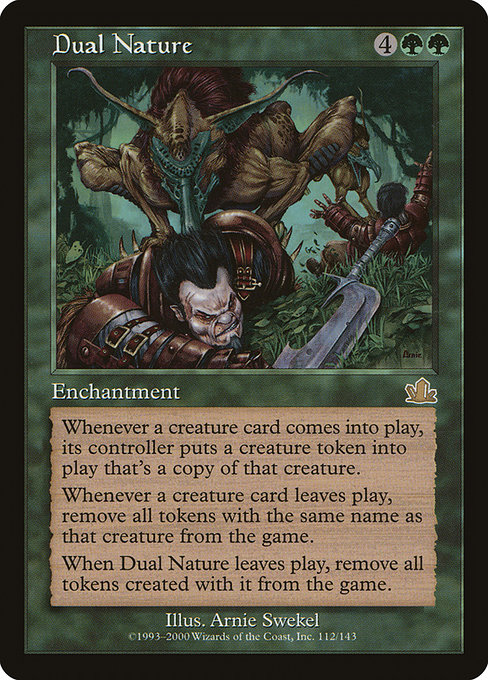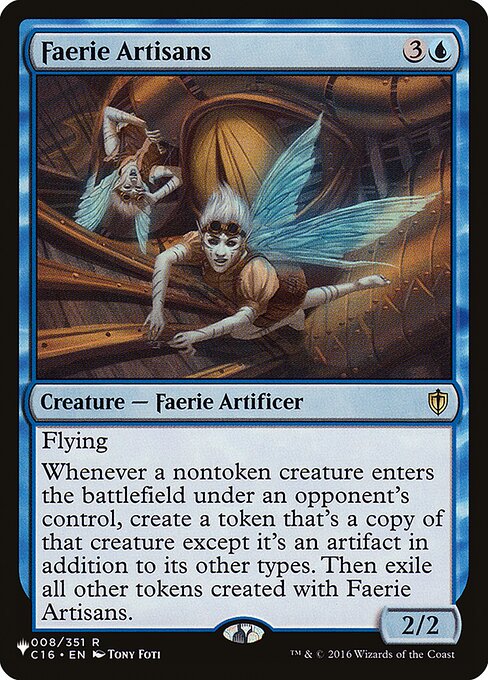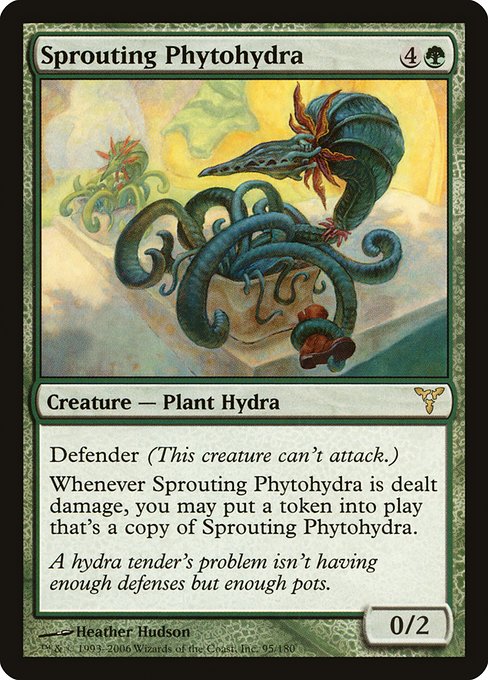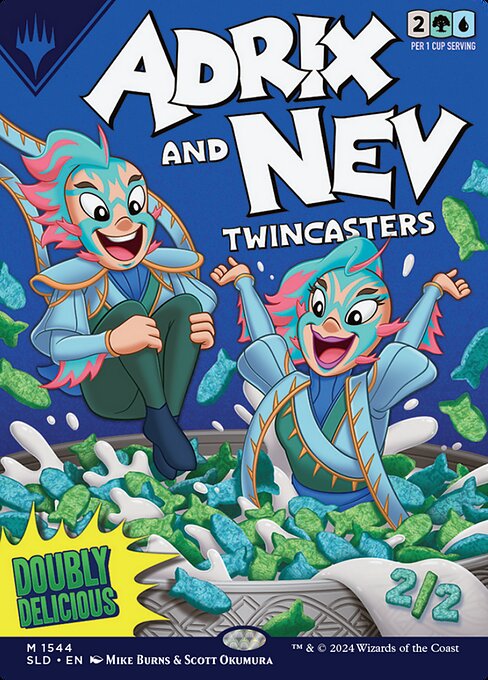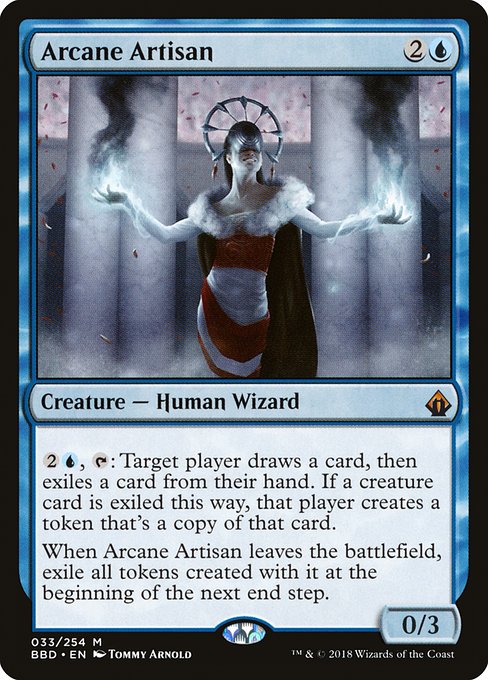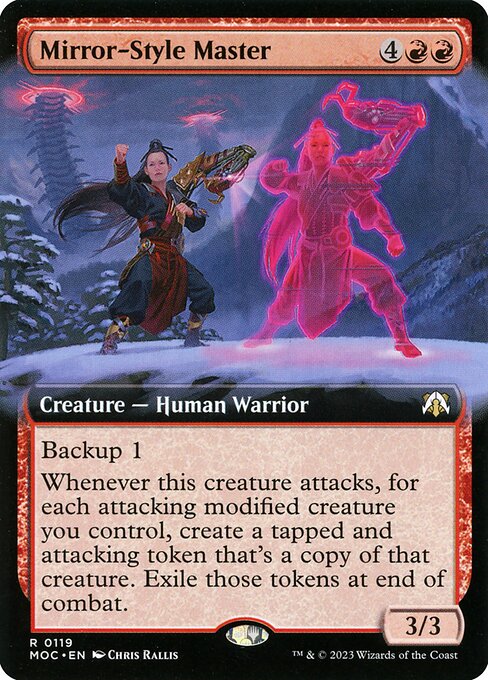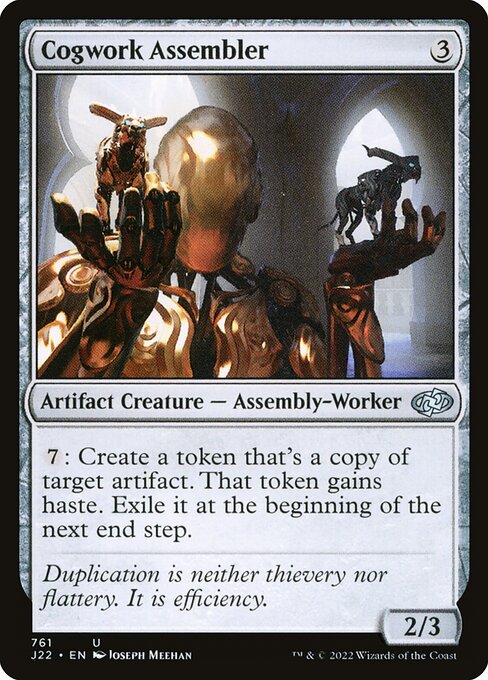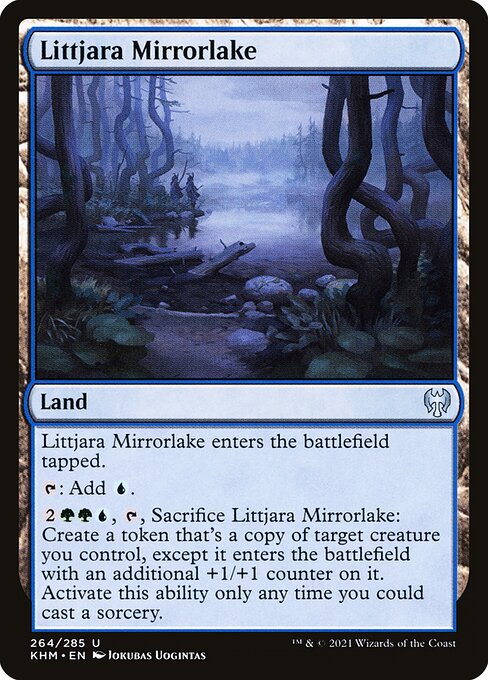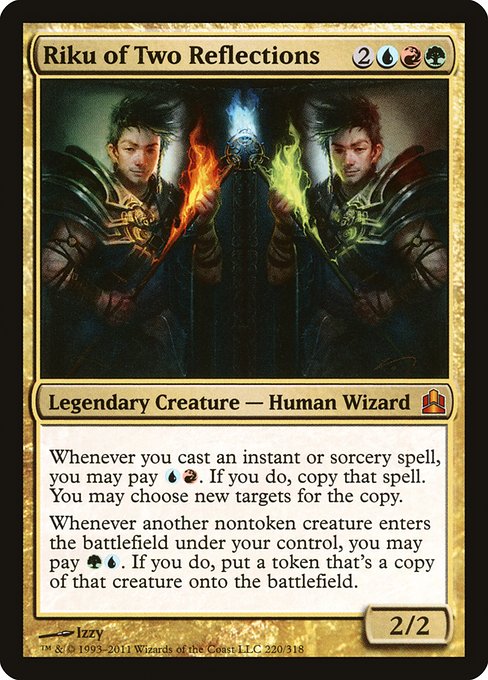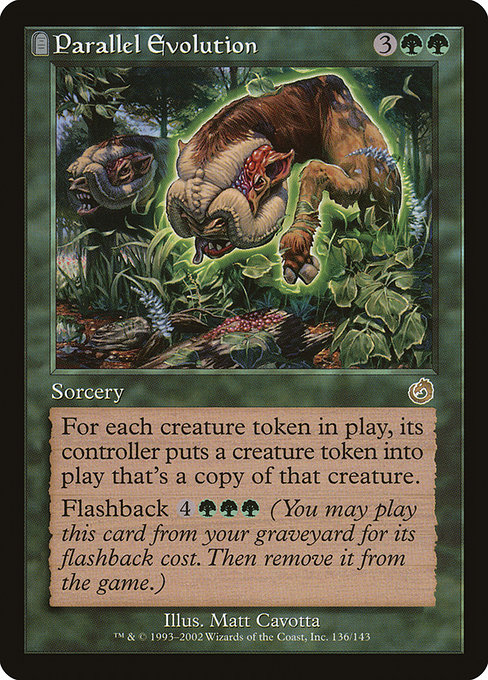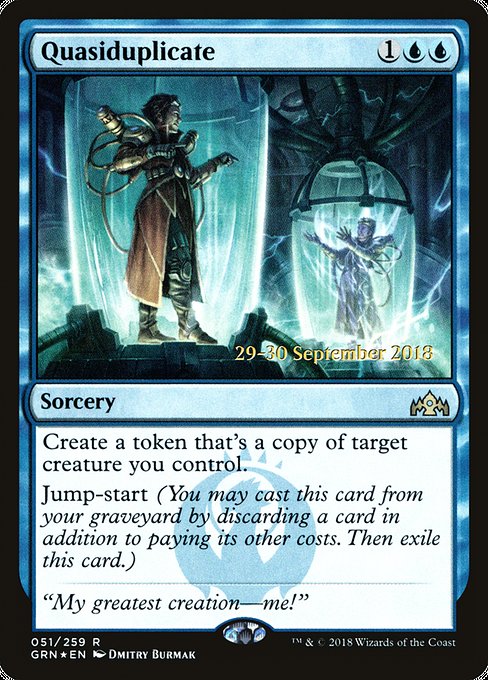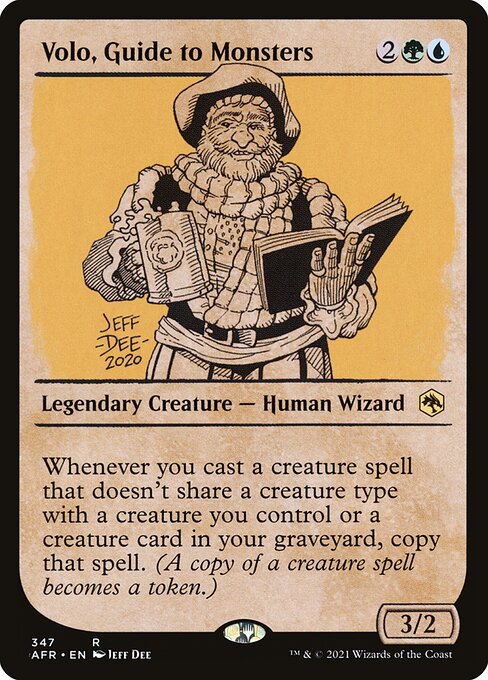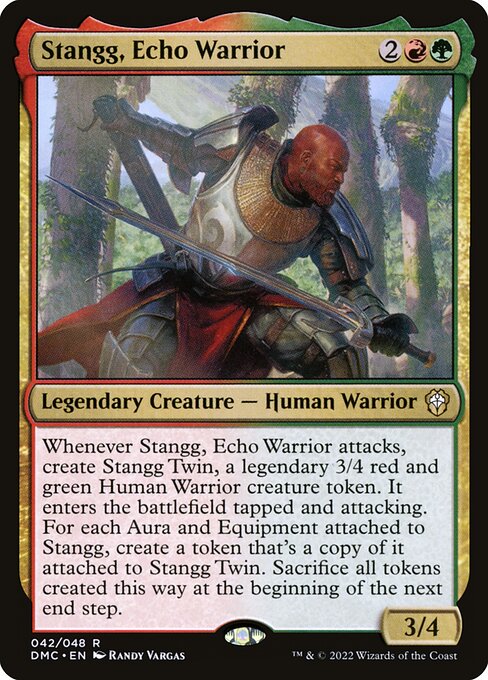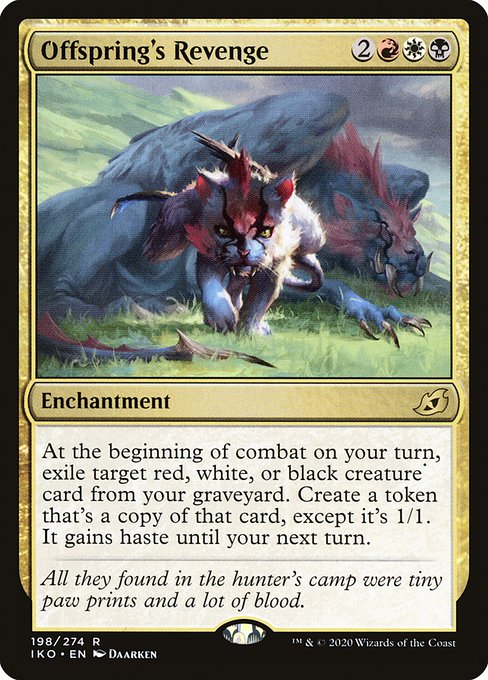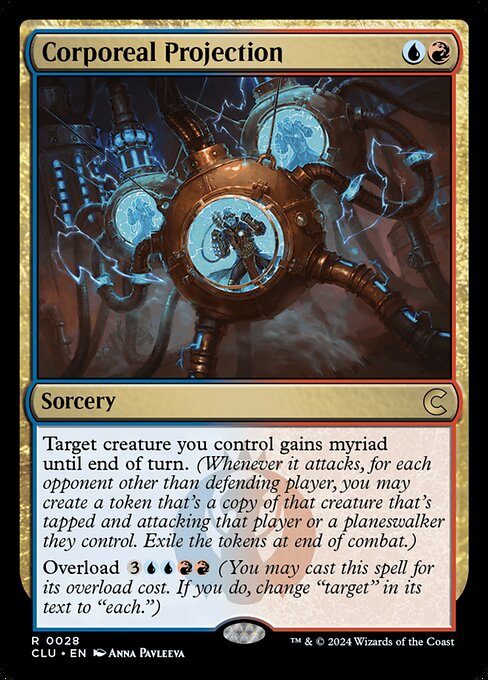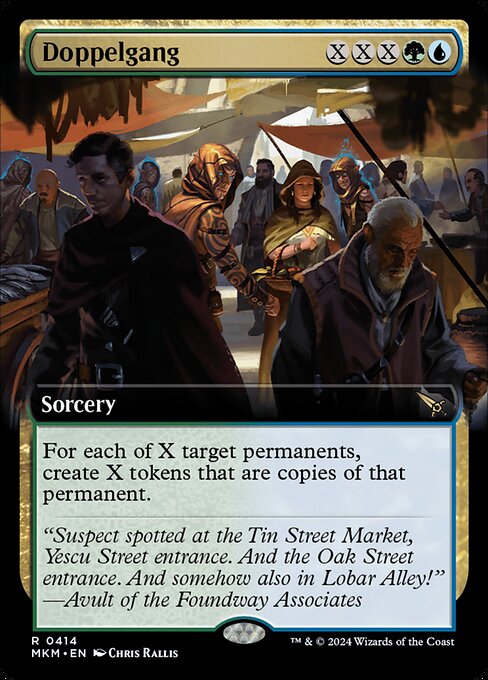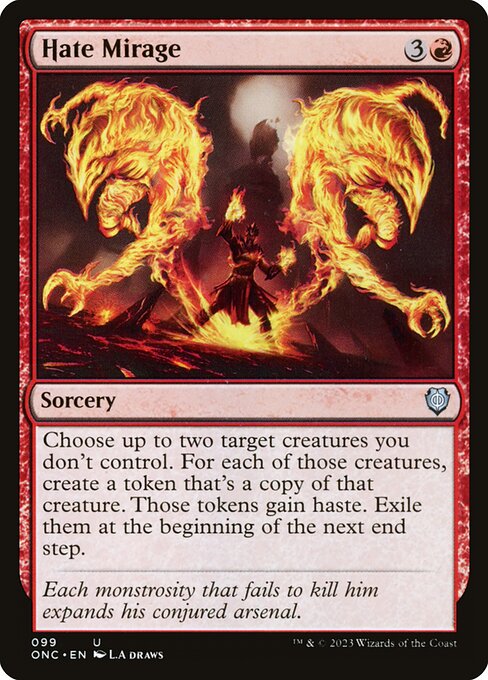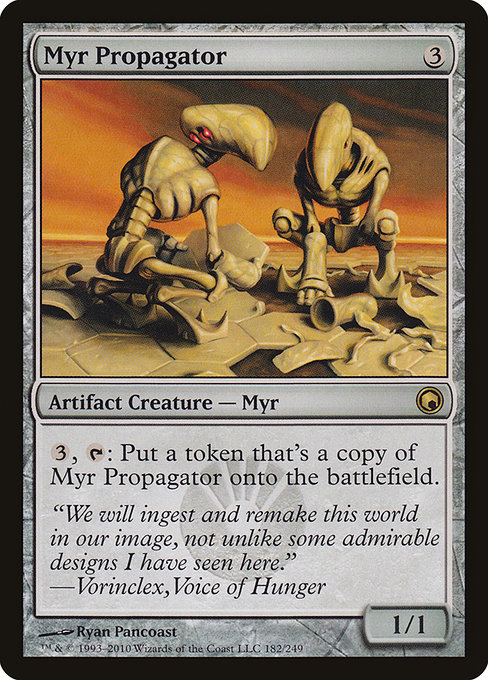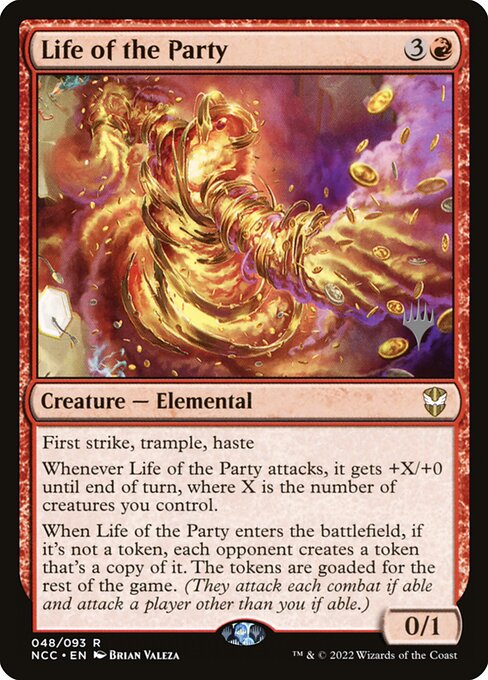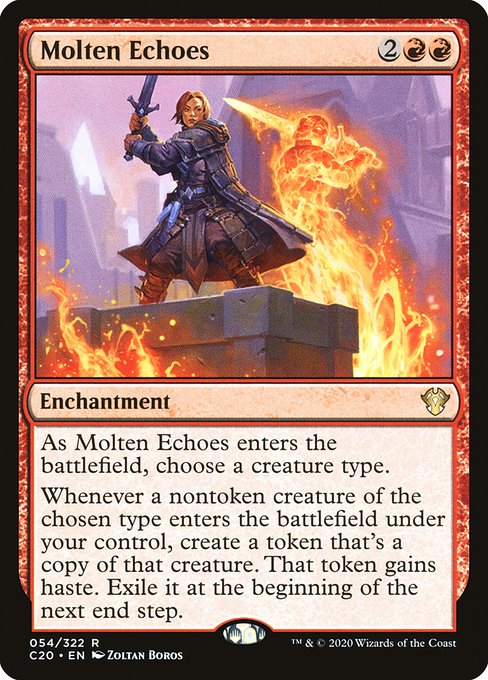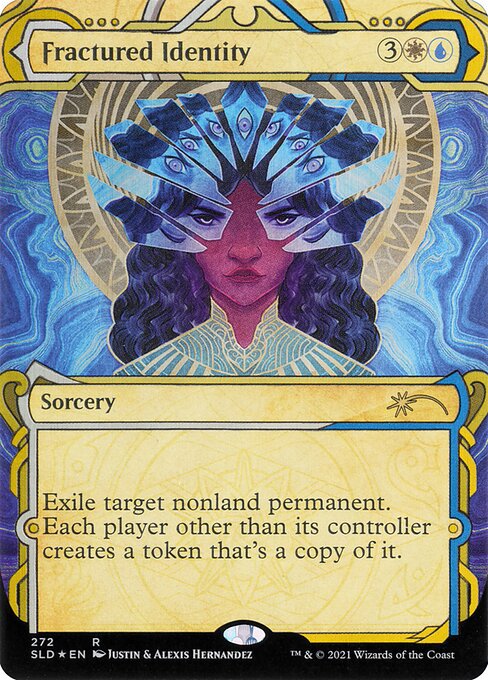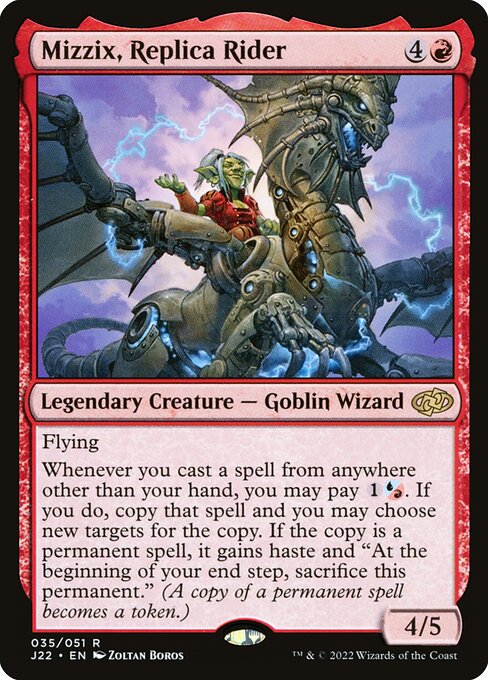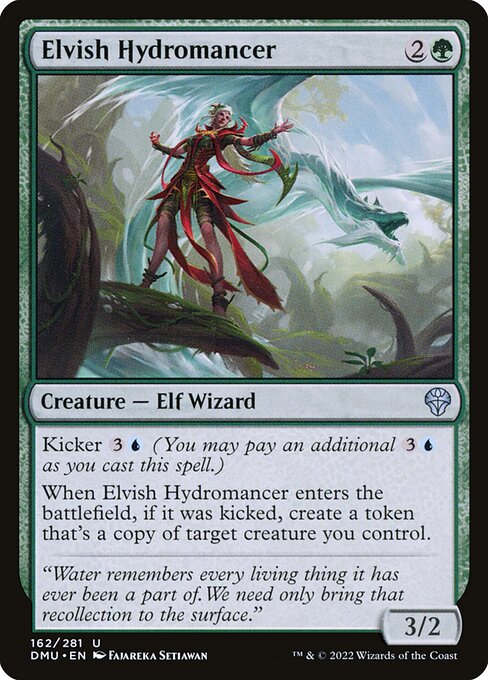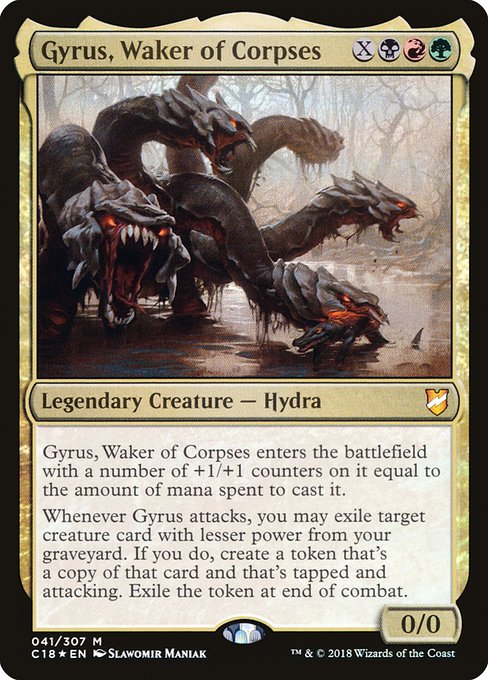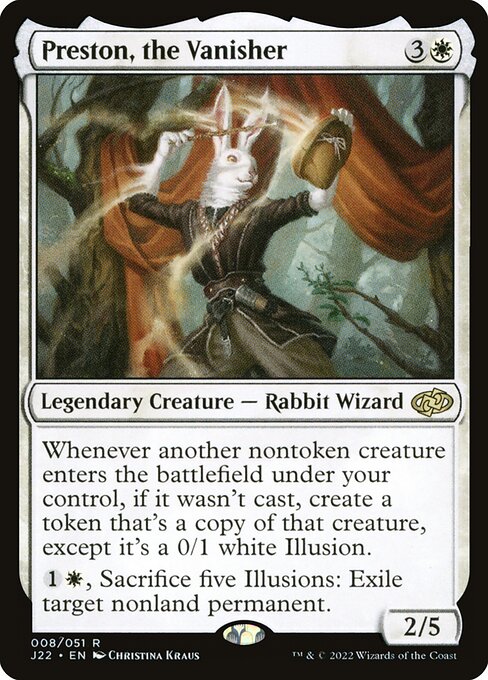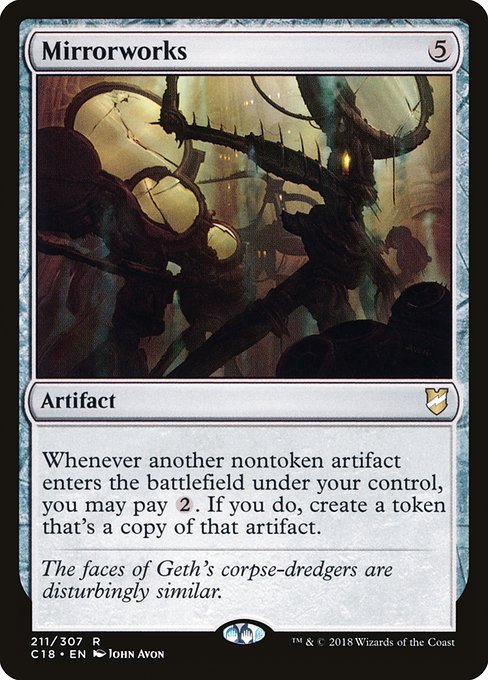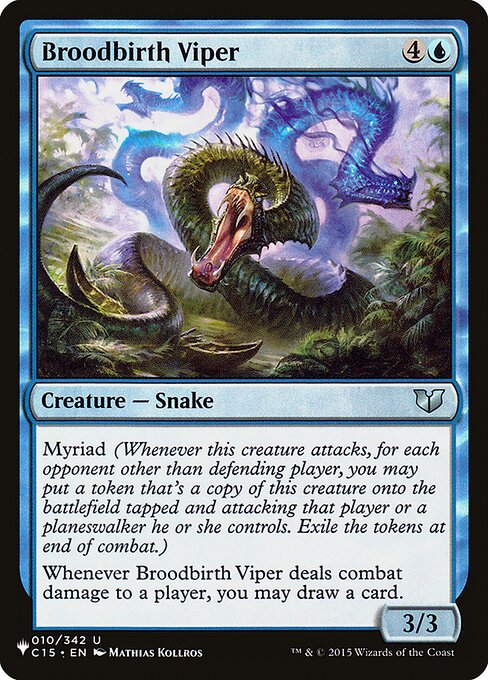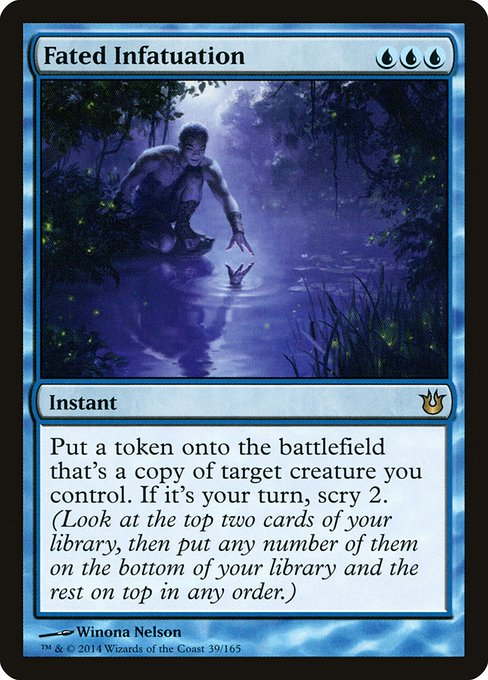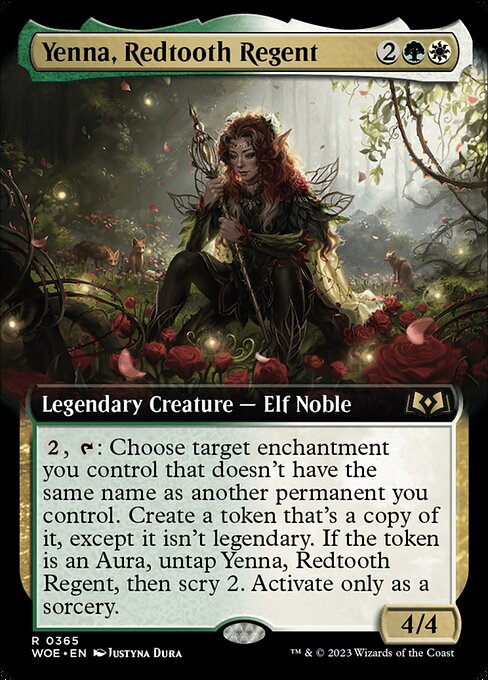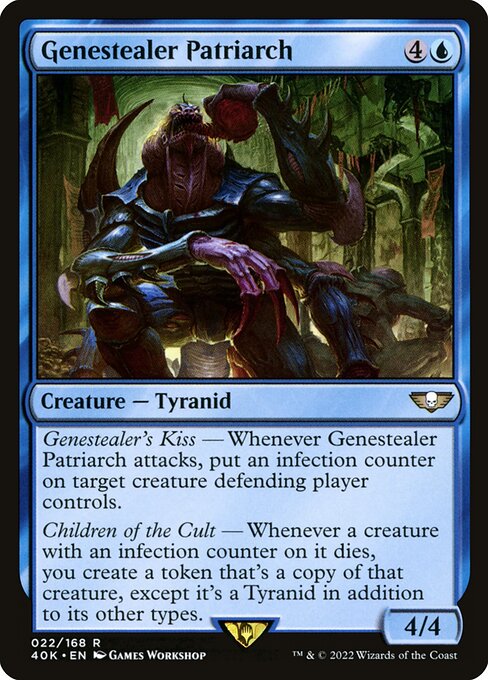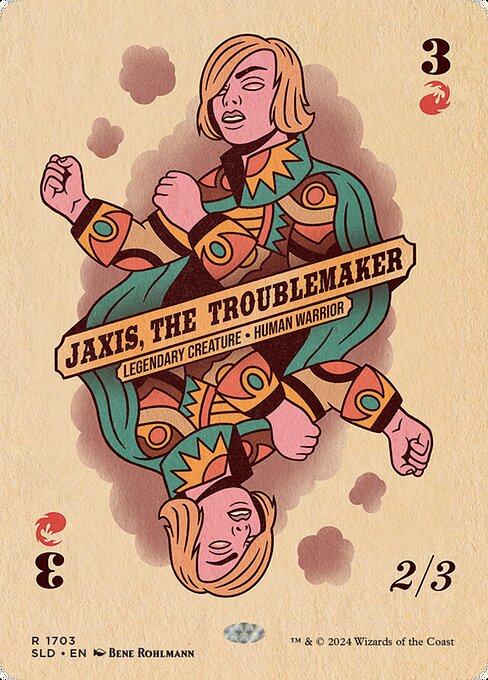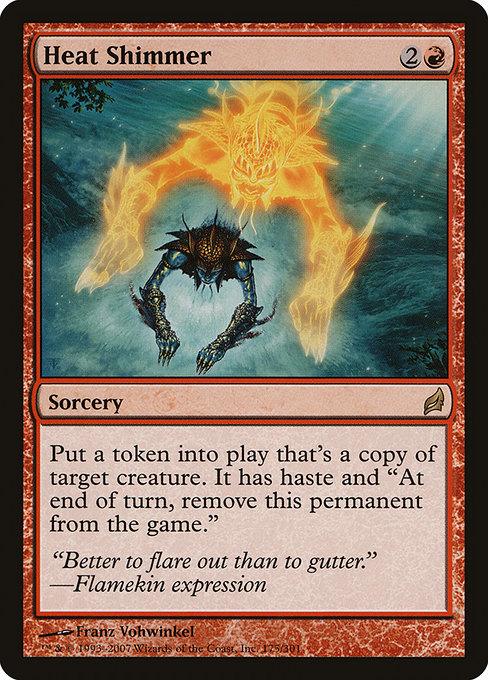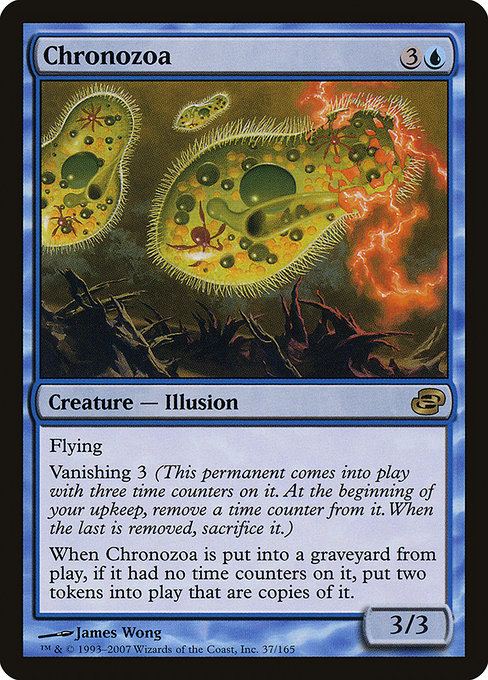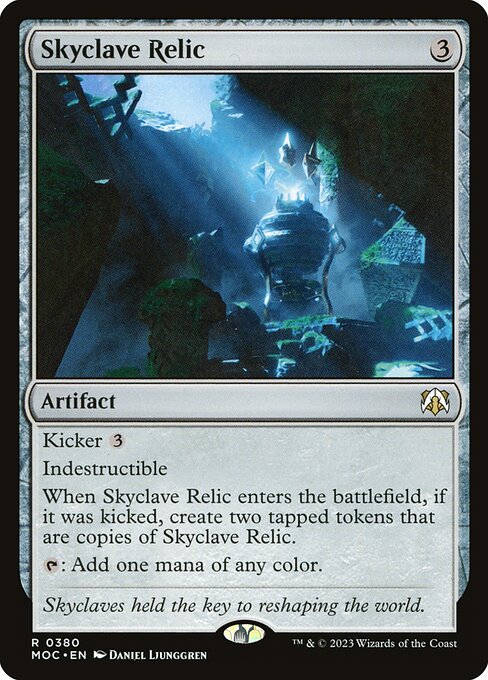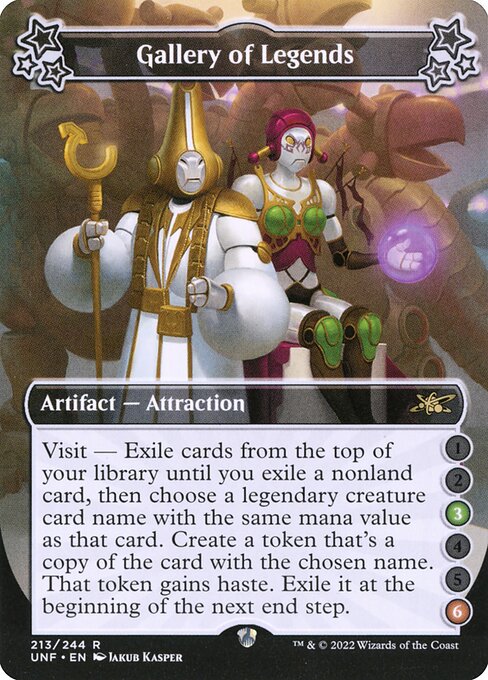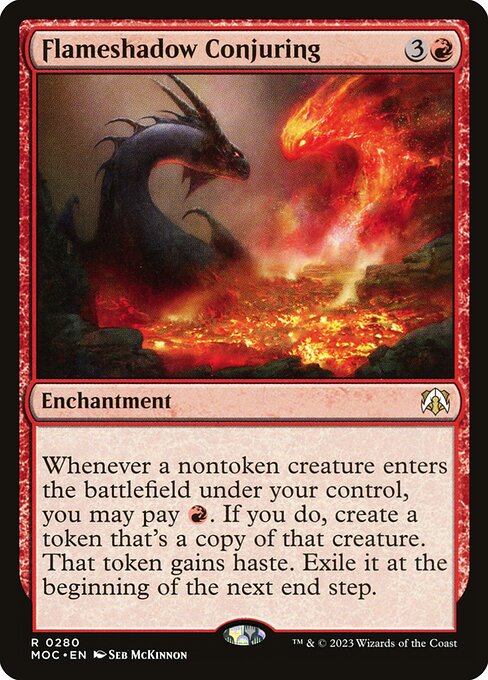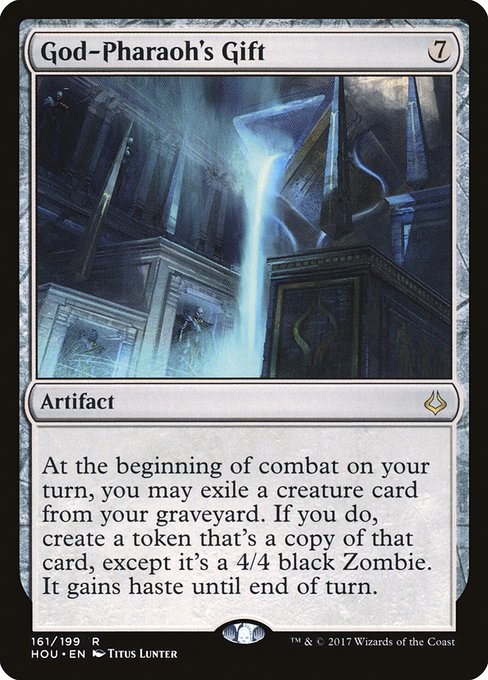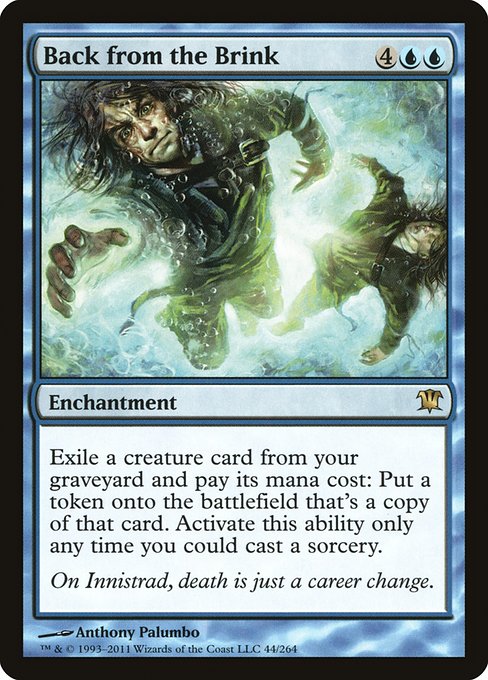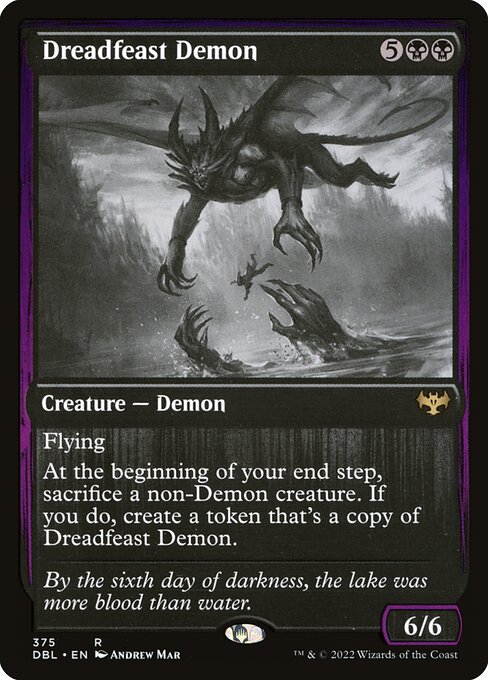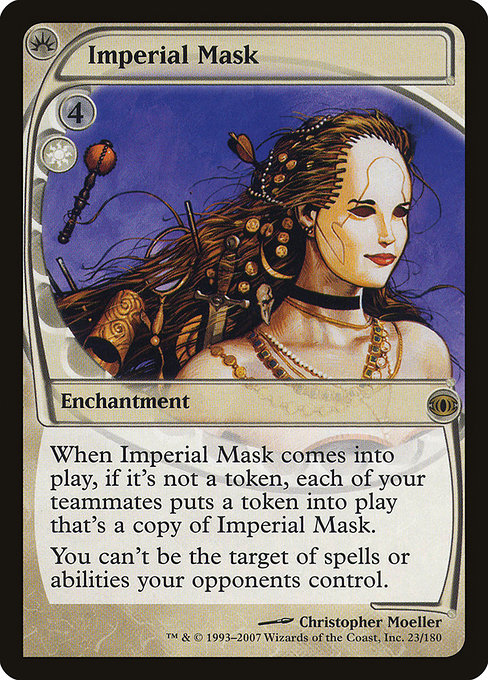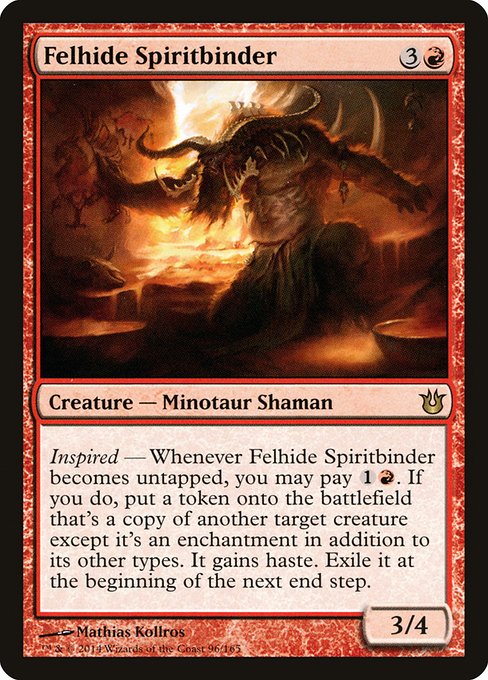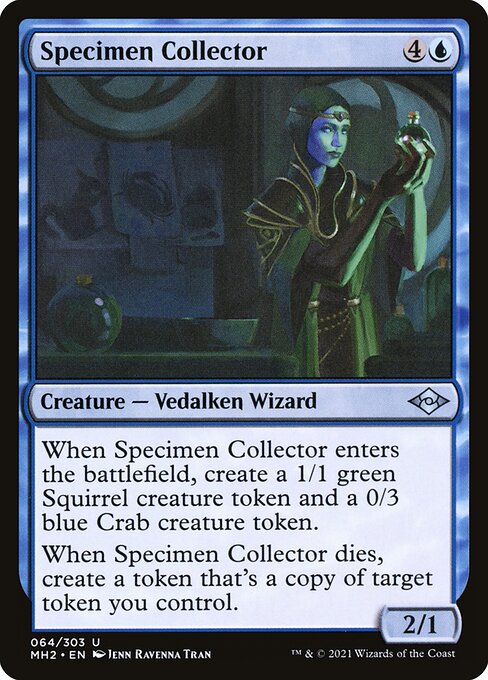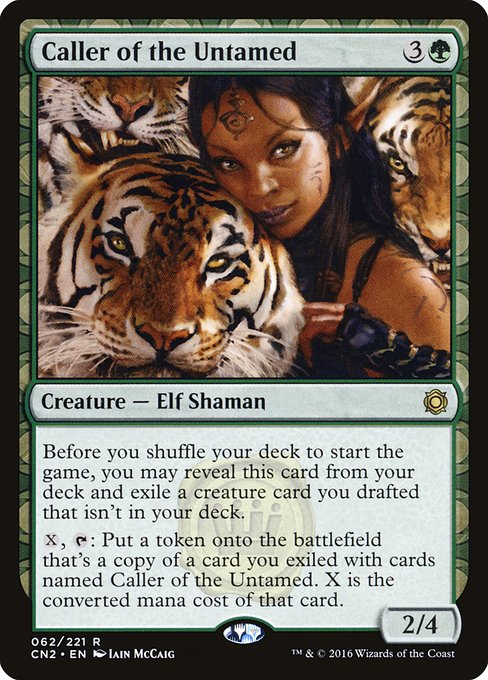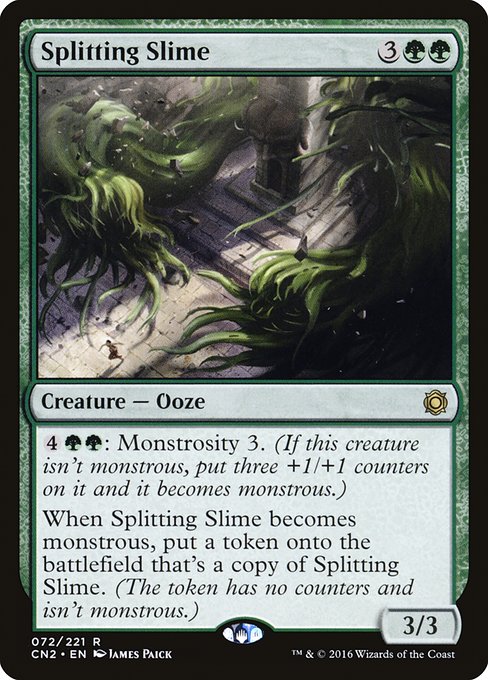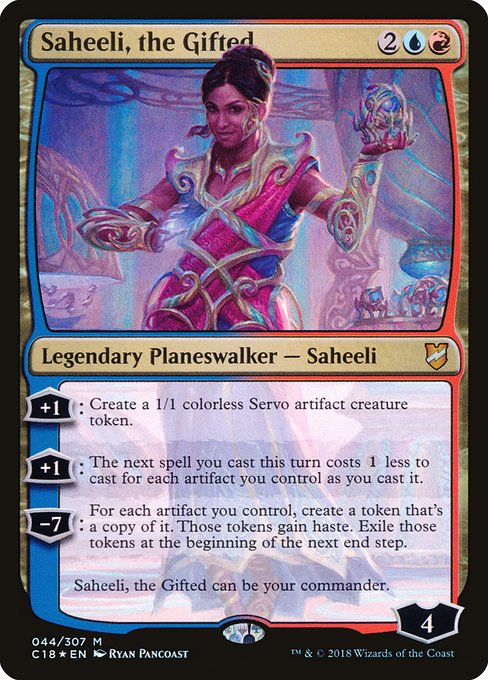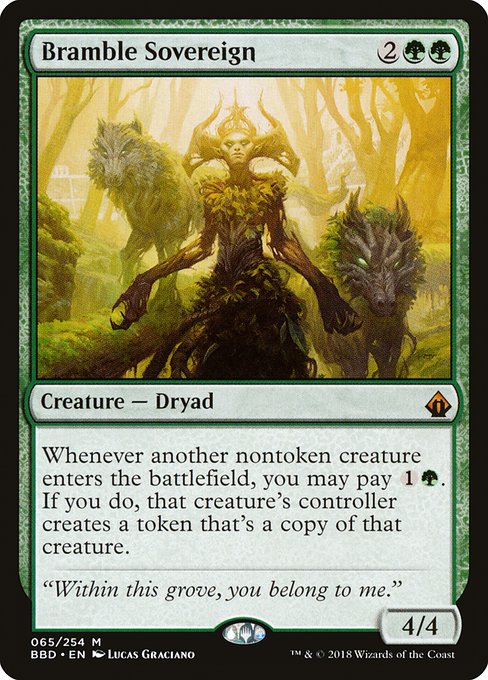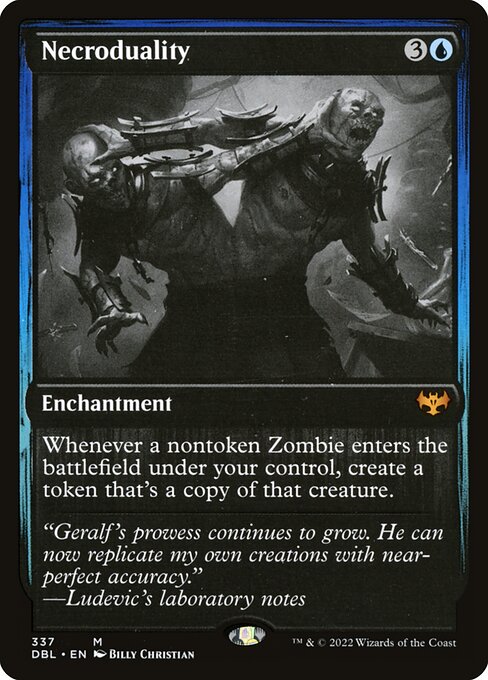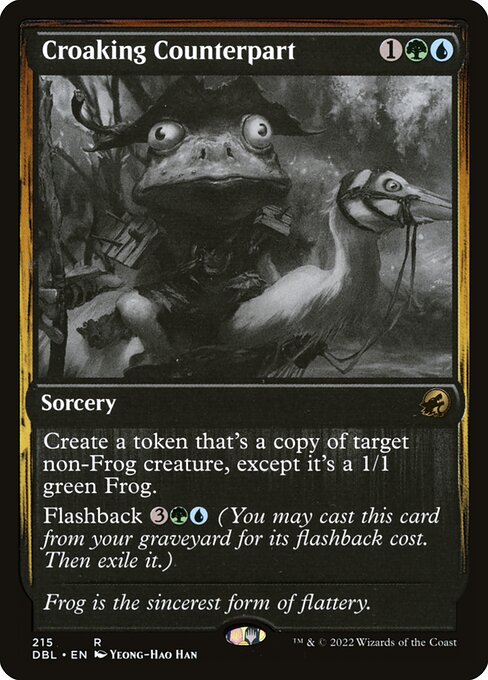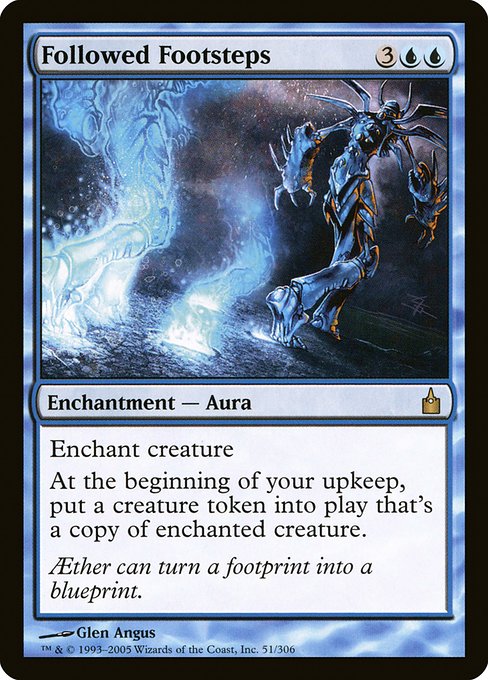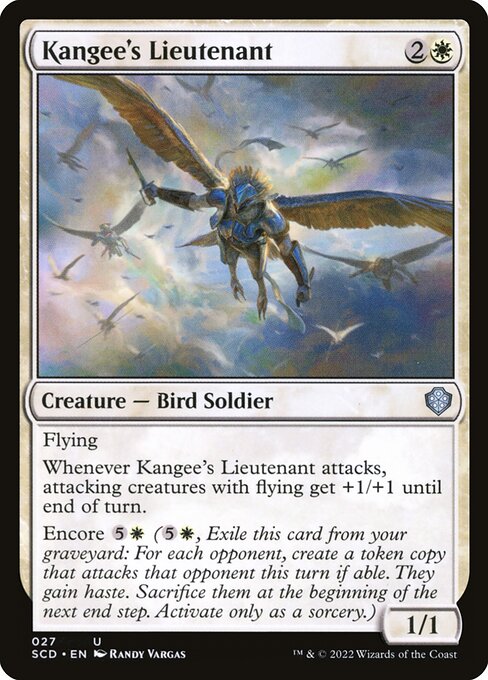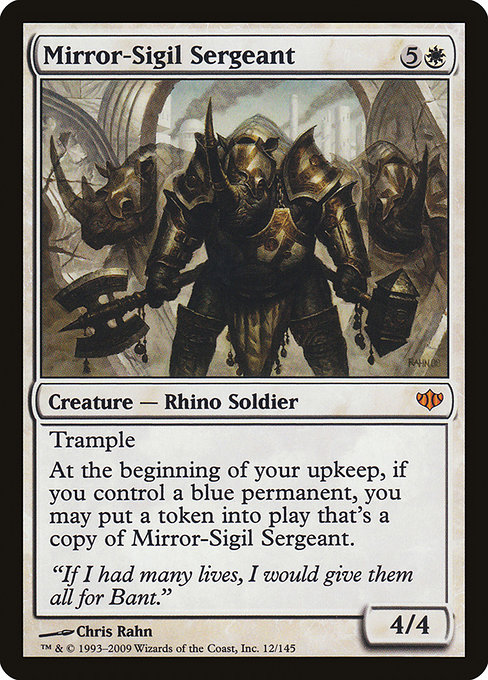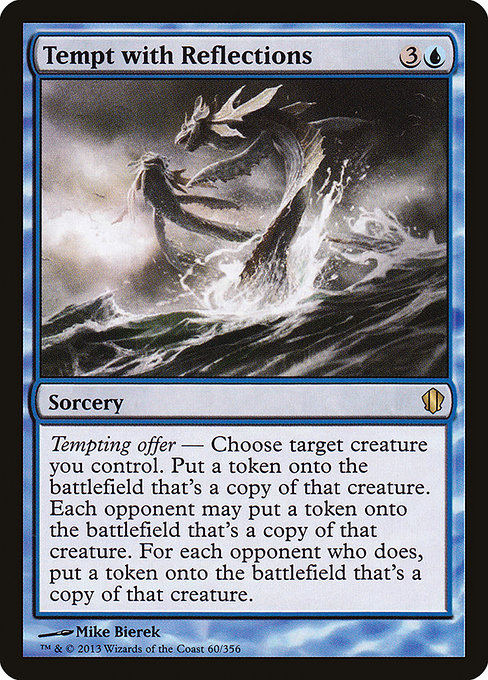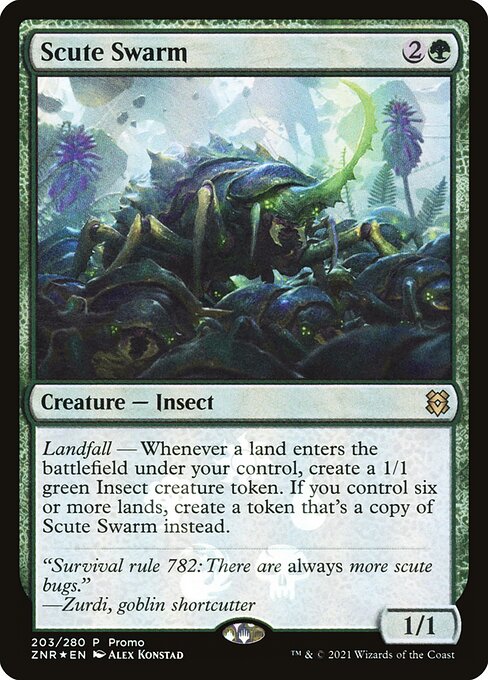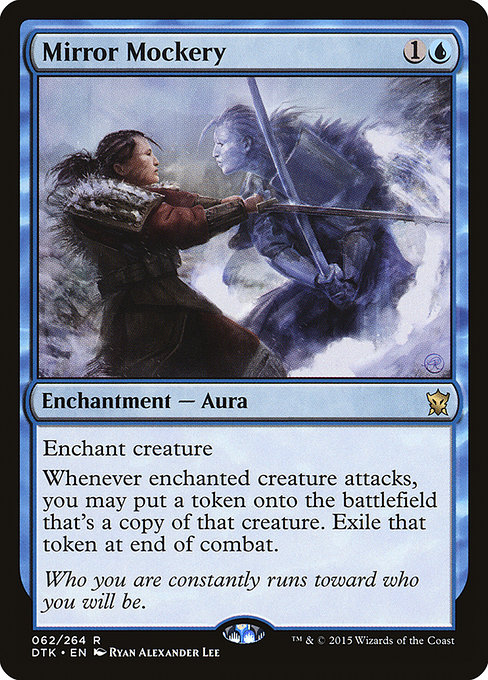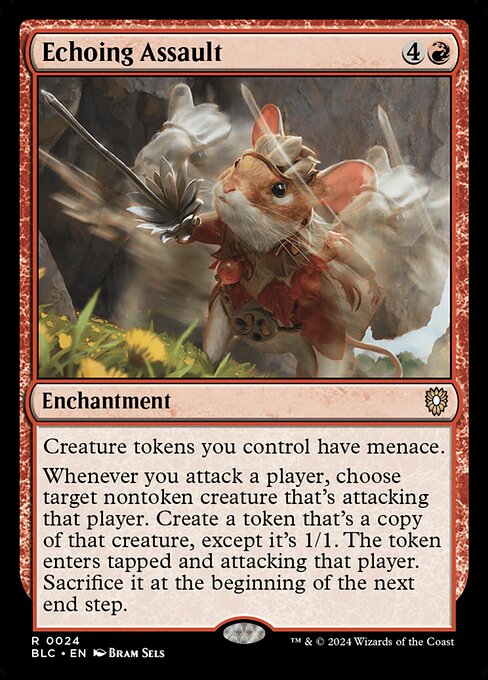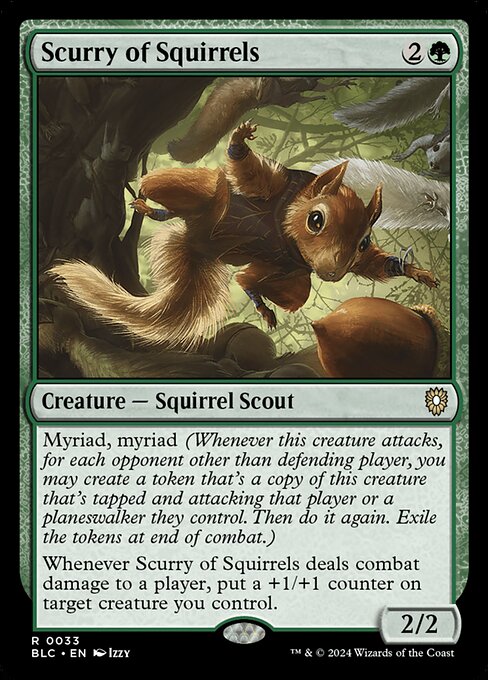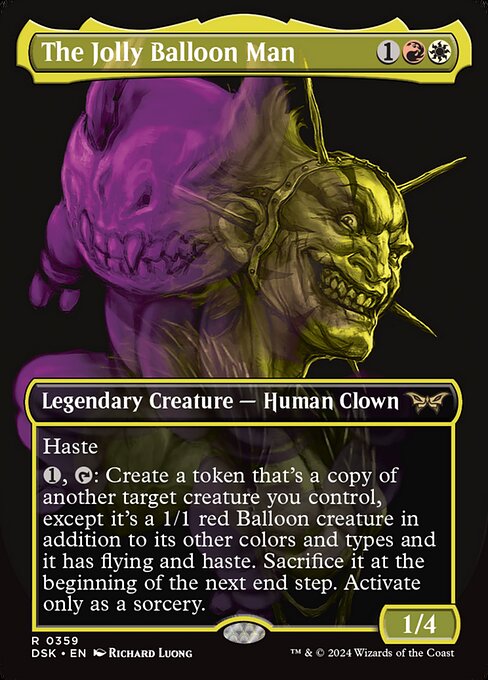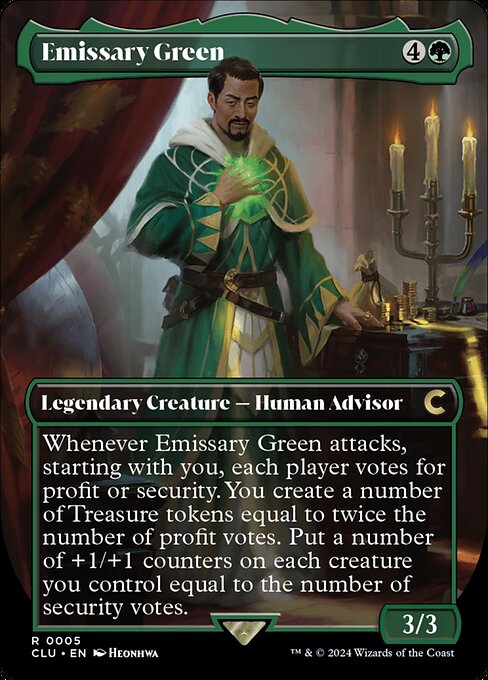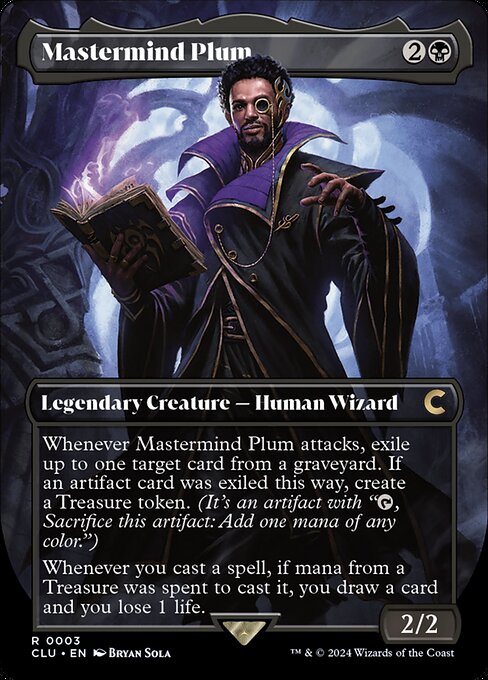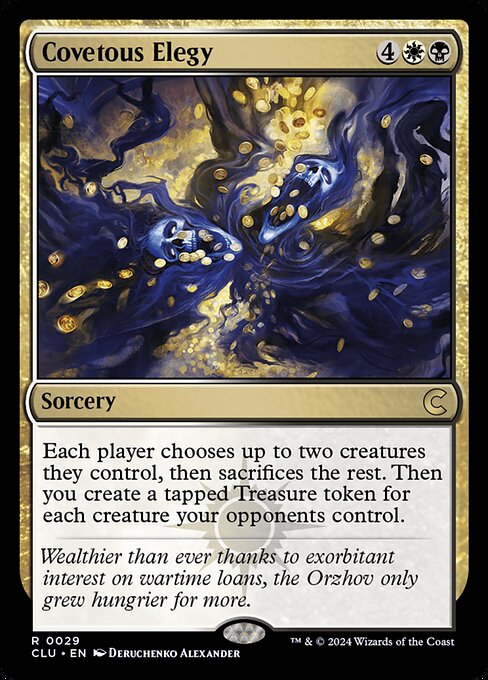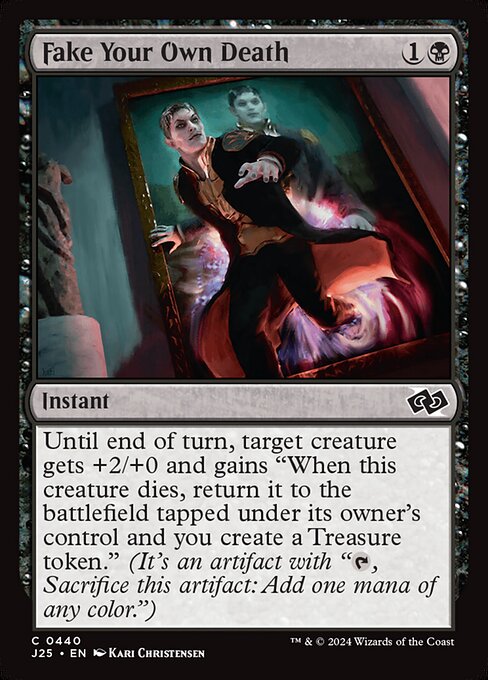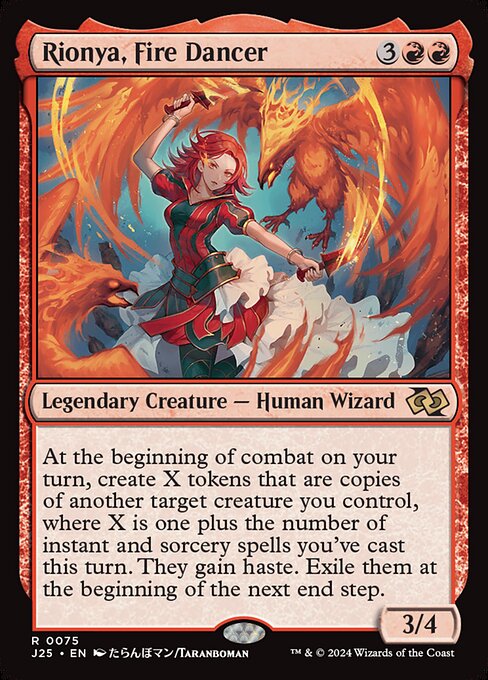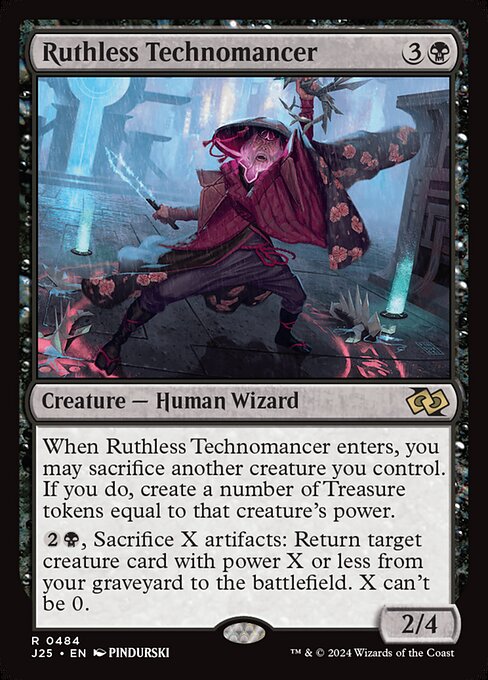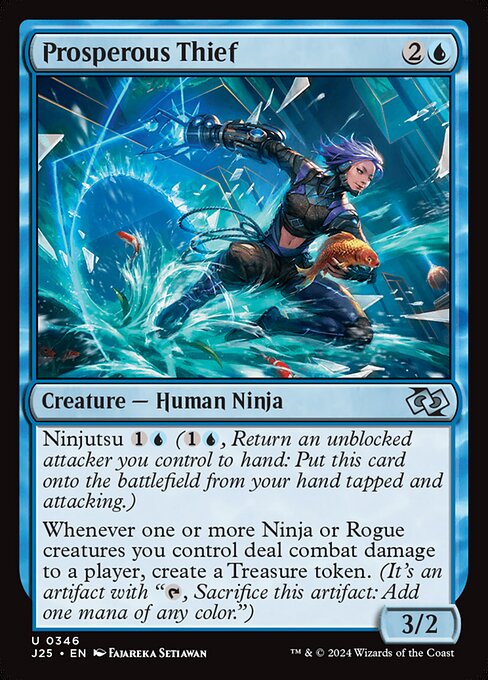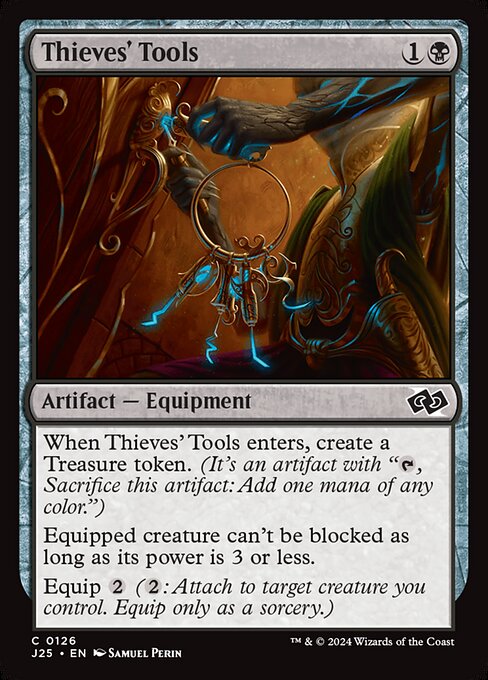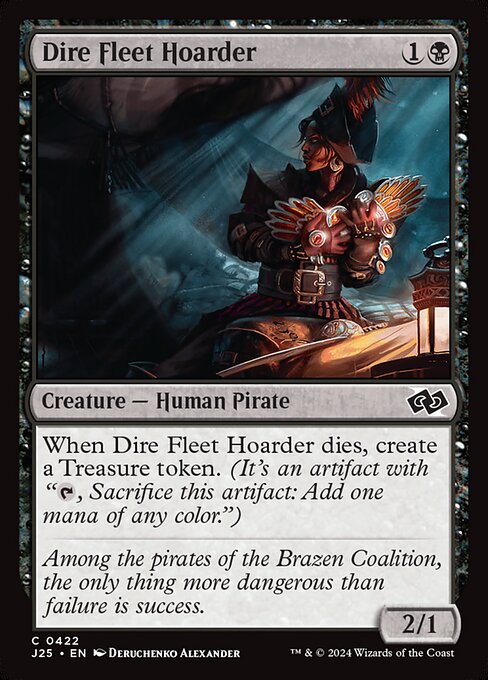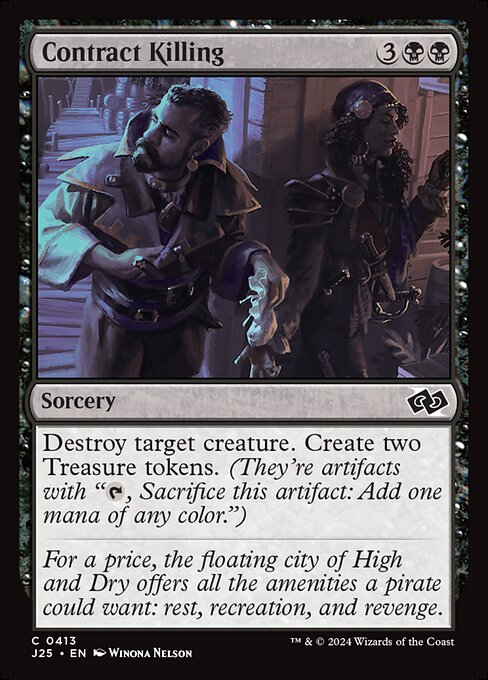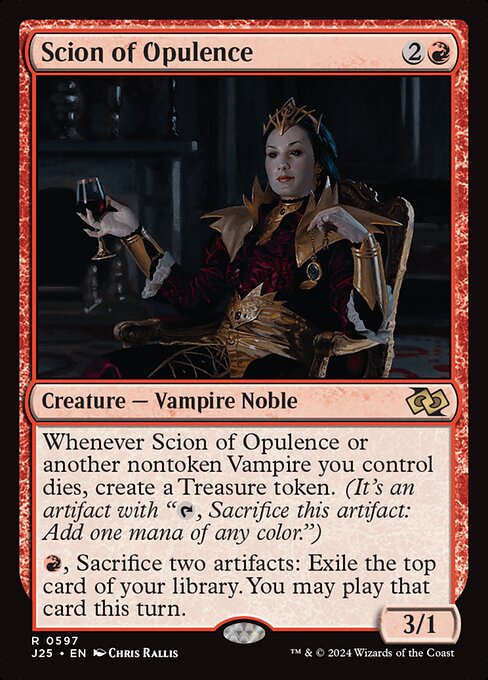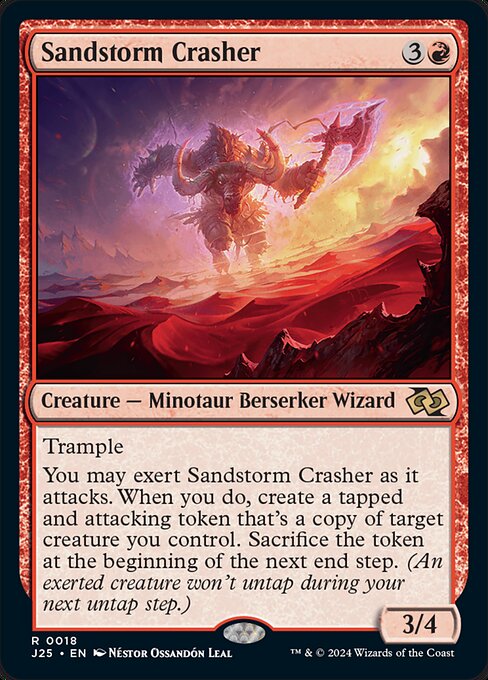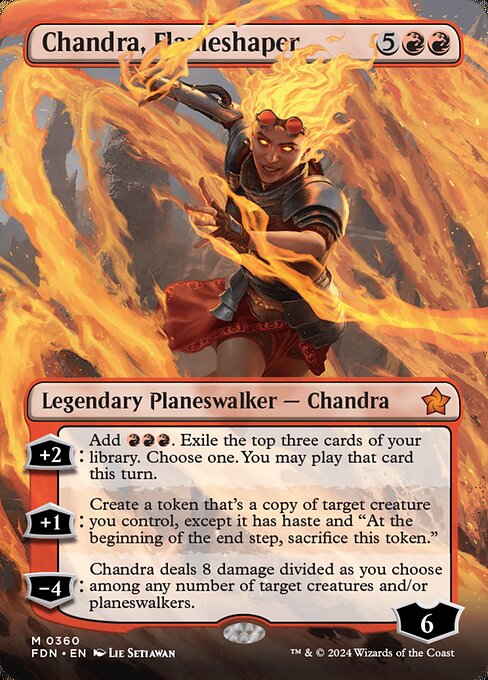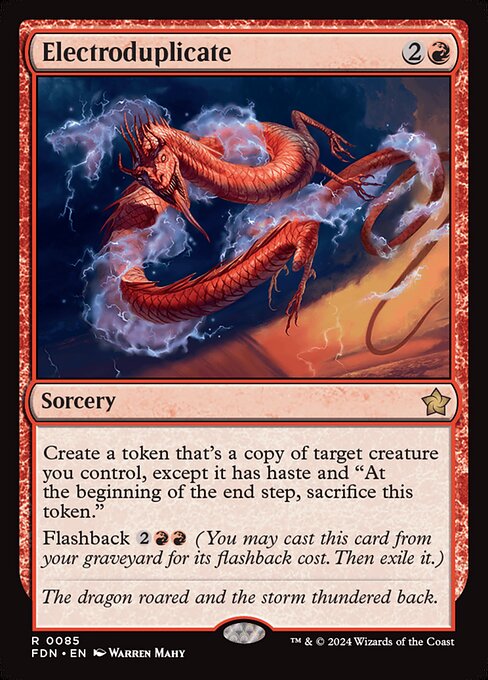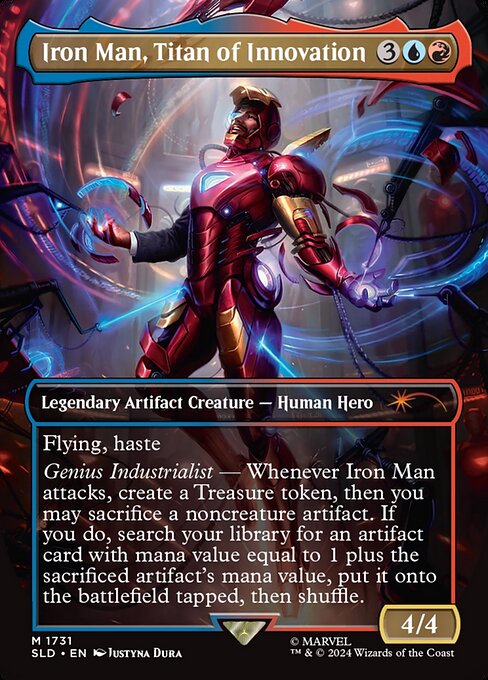standard
future
historic
gladiator
pioneer
explorer
modern
legacy
pauper
vintage
penny
commander
brawl
alchemy
paupercommander
duel
oldschool
premodern
Rulings
Each token copies exactly what was printed on the original creature and nothing else. It doesn’t copy whether that creature is tapped or untapped, whether it has any counters on it or Auras and Equipment attached to it, or any non-copy effects that have changed its power, toughness, types, color, and so on.
You choose whether each token is attacking the player or a planeswalker they control as the token is created. If it’s attacking a planeswalker, you choose which one.
Although the tokens enter the battlefield attacking, they were never declared as attackers. Abilities that trigger whenever a creature attacks won’t trigger, including the myriad ability of the tokens. If there are any costs to have a creature attack, those costs won’t apply to the tokens.
If the defending player is your only opponent, no tokens are put onto the battlefield.
If a token created with the myriad ability phases out before the next end step, the delayed triggered ability will still trigger at the beginning of the next end step after it phases in again. However, if it phases out with that triggered ability on the stack, it won't be exiled, and the delayed triggered ability won't trigger again during future end steps.
Any enters-the-battlefield abilities of the copied creature will trigger when the tokens enter the battlefield. Any “as [this permanent] enters the battlefield” or “[this permanent] enters the battlefield with” abilities of the copied creature will also work.
The tokens all enter the battlefield at the same time.
If myriad creates more than one token for any given player (due to an effect such as the one Doubling Season creates), you may choose separately for each token whether it’s attacking the player or a planeswalker they control.
Each condition is checked, even if you don't get the benefit of one or more of them. You can create a Treasure token even if you didn't draw a card, for example.
The term “defending player” in the myriad rules (or any other ability of an attacking creature) refers to the player the creature with myriad was attacking or the controller of the planeswalker it was attacking at the time the ability resolves. If that creature is no longer attacking, it refers to the player it was last attacking or the controller of the planeswalker it was last attacking.
Each condition is checked as the triggered ability resolves, not when it is placed on the stack.
You choose whether each token is attacking the player or a planeswalker they control as the token is created. If it’s attacking a planeswalker, you choose which one.
Although the tokens enter the battlefield attacking, they were never declared as attackers. Abilities that trigger whenever a creature attacks won’t trigger, including the myriad ability of the tokens. If there are any costs to have a creature attack, those costs won’t apply to the tokens.
If the defending player is your only opponent, no tokens are put onto the battlefield.
If a token created with the myriad ability phases out before the next end step, the delayed triggered ability will still trigger at the beginning of the next end step after it phases in again. However, if it phases out with that triggered ability on the stack, it won't be exiled, and the delayed triggered ability won't trigger again during future end steps.
Any enters-the-battlefield abilities of the copied creature will trigger when the tokens enter the battlefield. Any “as [this permanent] enters the battlefield” or “[this permanent] enters the battlefield with” abilities of the copied creature will also work.
The tokens all enter the battlefield at the same time.
If myriad creates more than one token for any given player (due to an effect such as the one Doubling Season creates), you may choose separately for each token whether it’s attacking the player or a planeswalker they control.
Each condition is checked, even if you don't get the benefit of one or more of them. You can create a Treasure token even if you didn't draw a card, for example.
The term “defending player” in the myriad rules (or any other ability of an attacking creature) refers to the player the creature with myriad was attacking or the controller of the planeswalker it was attacking at the time the ability resolves. If that creature is no longer attacking, it refers to the player it was last attacking or the controller of the planeswalker it was last attacking.
Each condition is checked as the triggered ability resolves, not when it is placed on the stack.
Rulings
Each token copies exactly what was printed on the original creature and nothing else. It doesn’t copy whether that creature is tapped or untapped, whether it has any counters on it or Auras and Equipment attached to it, or any non-copy effects that have changed its power, toughness, types, color, and so on.
You choose whether each token is attacking the player or a planeswalker they control as the token is created. If it’s attacking a planeswalker, you choose which one.
Although the tokens enter the battlefield attacking, they were never declared as attackers. Abilities that trigger whenever a creature attacks won’t trigger, including the myriad ability of the tokens. If there are any costs to have a creature attack, those costs won’t apply to the tokens.
If the defending player is your only opponent, no tokens are put onto the battlefield.
If a token created with the myriad ability phases out before the next end step, the delayed triggered ability will still trigger at the beginning of the next end step after it phases in again. However, if it phases out with that triggered ability on the stack, it won't be exiled, and the delayed triggered ability won't trigger again during future end steps.
Any enters-the-battlefield abilities of the copied creature will trigger when the tokens enter the battlefield. Any “as [this permanent] enters the battlefield” or “[this permanent] enters the battlefield with” abilities of the copied creature will also work.
The tokens all enter the battlefield at the same time.
If myriad creates more than one token for any given player (due to an effect such as the one Doubling Season creates), you may choose separately for each token whether it’s attacking the player or a planeswalker they control.
Each condition is checked, even if you don't get the benefit of one or more of them. You can create a Treasure token even if you didn't draw a card, for example.
The term “defending player” in the myriad rules (or any other ability of an attacking creature) refers to the player the creature with myriad was attacking or the controller of the planeswalker it was attacking at the time the ability resolves. If that creature is no longer attacking, it refers to the player it was last attacking or the controller of the planeswalker it was last attacking.
Each condition is checked as the triggered ability resolves, not when it is placed on the stack.
You choose whether each token is attacking the player or a planeswalker they control as the token is created. If it’s attacking a planeswalker, you choose which one.
Although the tokens enter the battlefield attacking, they were never declared as attackers. Abilities that trigger whenever a creature attacks won’t trigger, including the myriad ability of the tokens. If there are any costs to have a creature attack, those costs won’t apply to the tokens.
If the defending player is your only opponent, no tokens are put onto the battlefield.
If a token created with the myriad ability phases out before the next end step, the delayed triggered ability will still trigger at the beginning of the next end step after it phases in again. However, if it phases out with that triggered ability on the stack, it won't be exiled, and the delayed triggered ability won't trigger again during future end steps.
Any enters-the-battlefield abilities of the copied creature will trigger when the tokens enter the battlefield. Any “as [this permanent] enters the battlefield” or “[this permanent] enters the battlefield with” abilities of the copied creature will also work.
The tokens all enter the battlefield at the same time.
If myriad creates more than one token for any given player (due to an effect such as the one Doubling Season creates), you may choose separately for each token whether it’s attacking the player or a planeswalker they control.
Each condition is checked, even if you don't get the benefit of one or more of them. You can create a Treasure token even if you didn't draw a card, for example.
The term “defending player” in the myriad rules (or any other ability of an attacking creature) refers to the player the creature with myriad was attacking or the controller of the planeswalker it was attacking at the time the ability resolves. If that creature is no longer attacking, it refers to the player it was last attacking or the controller of the planeswalker it was last attacking.
Each condition is checked as the triggered ability resolves, not when it is placed on the stack.
Votre collection ? vos decks ?
Envie de gérer votre collection et/ou créer des decks ?


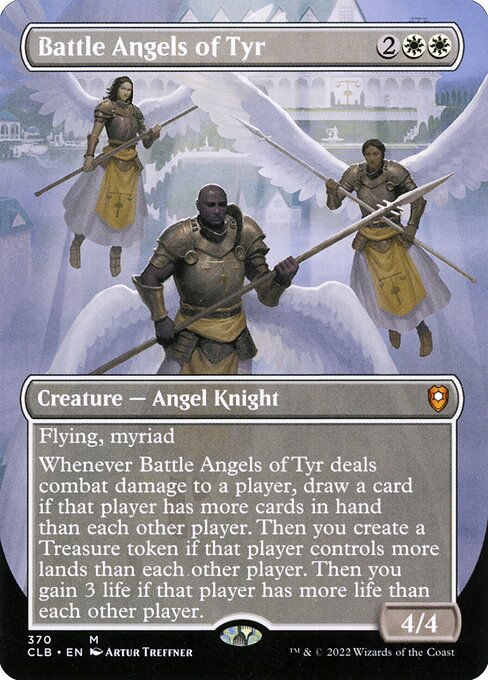
 0
0
 15.42€
15.42€
